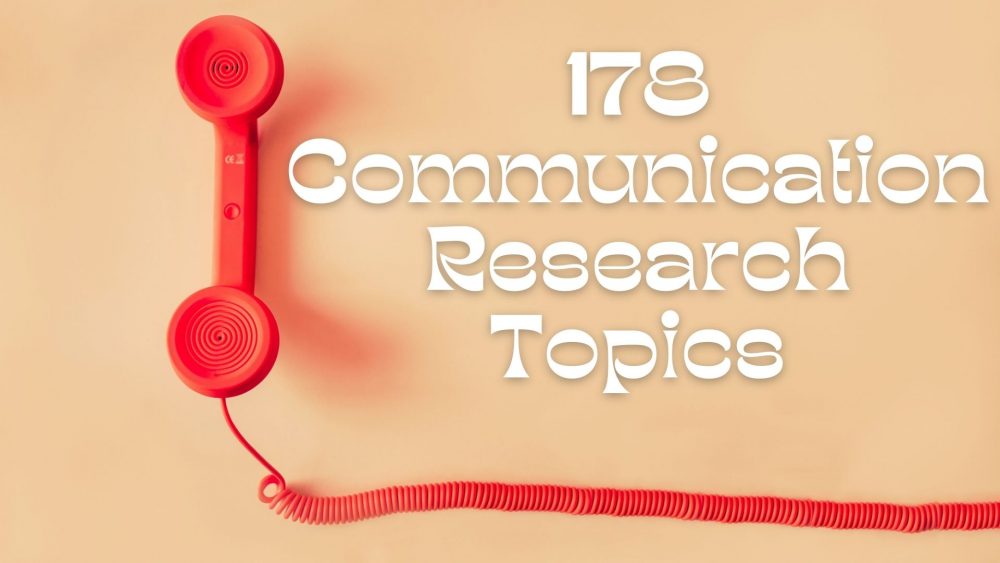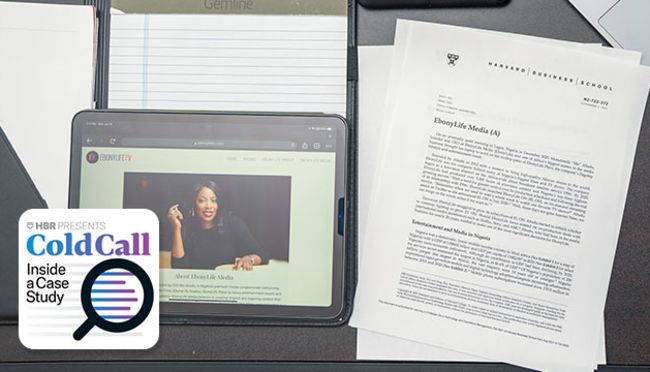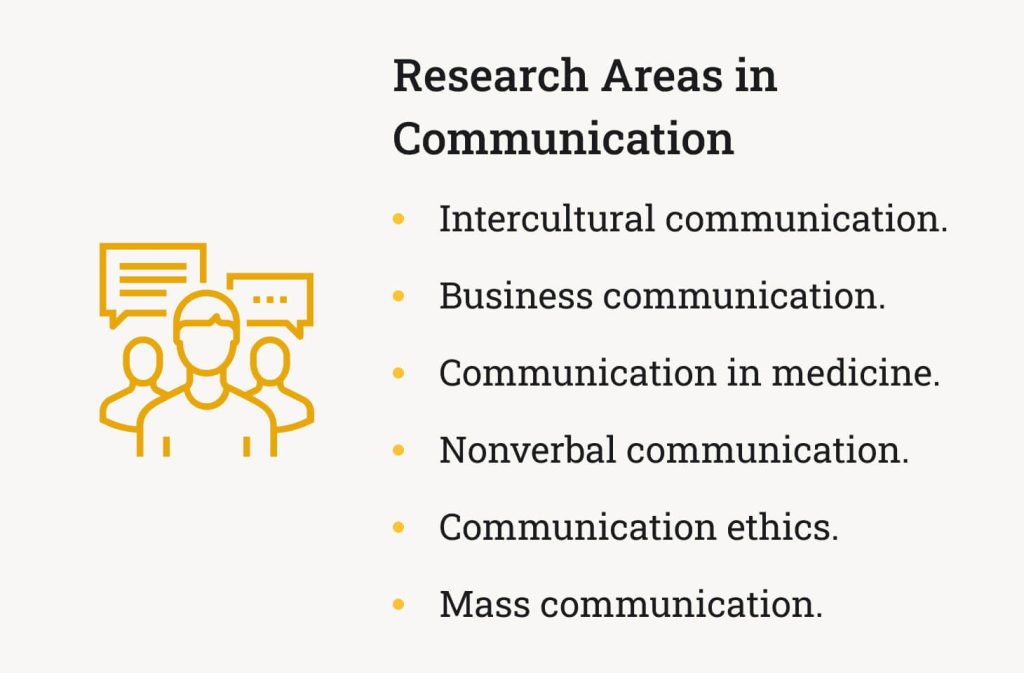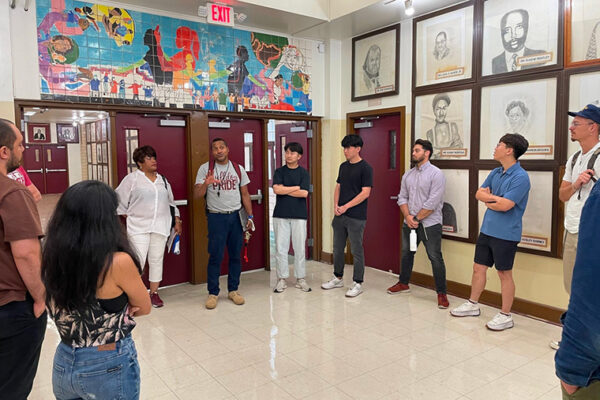
Research Topics & Ideas: Communication
50 Topic Ideas To Kickstart Your Research

If you’re just starting out exploring communication-related topics for your dissertation, thesis or research project, you’ve come to the right place. In this post, we’ll help kickstart your research by providing a hearty list of research topics and ideas related to communication and comms strategy, including examples from recent studies.
PS – This is just the start…
We know it’s exciting to run through a list of research topics, but please keep in mind that this list is just a starting point . These topic ideas provided here are intentionally broad and generic , so keep in mind that you will need to develop them further. Nevertheless, they should inspire some ideas for your project.
To develop a suitable research topic, you’ll need to identify a clear and convincing research gap , and a viable plan to fill that gap. If this sounds foreign to you, check out our free research topic webinar that explores how to find and refine a high-quality research topic, from scratch. Alternatively, consider our 1-on-1 coaching service .

Communication-Related Research Topics
- Analyzing the effectiveness of crisis communication strategies in the airline industry post-accidents.
- The role of social media in shaping corporate brand identity in the fashion industry.
- Investigating the impact of internal communication on employee engagement in remote work environments.
- The effectiveness of influencer marketing in health and wellness brands.
- Analyzing the impact of virtual reality in enhancing audience engagement in museums and galleries.
- The role of communication in change management within large healthcare organizations.
- Investigating the use of digital storytelling in non-profit fundraising campaigns.
- The impact of corporate social responsibility communication on consumer perceptions in the fast-food industry.
- Analyzing the effectiveness of environmental communication strategies in promoting sustainable practices among businesses.
- The role of intercultural communication in the success of international mergers and acquisitions.
- Investigating the impact of communication style on leadership effectiveness in tech startups.
- The effectiveness of targeted advertising in political campaigns.
- Analyzing the role of public relations in managing celebrity image crises.
- The impact of mobile communication technologies on marketing strategies in retail.
- Investigating the use of employee advocacy on social media as a branding tool.
- The role of communication in enhancing customer service experiences in the hospitality industry.
- Analyzing the impact of user-generated content on brand loyalty in the automotive industry.
- The effectiveness of communication strategies in addressing gender diversity in the workplace.
- Investigating the role of strategic communication in corporate restructuring processes.
- The impact of language barriers on global marketing and advertising strategies.
- Analyzing the effectiveness of communication platforms in remote team collaboration.
- The role of multimedia content in enhancing online engagement for educational institutions.
- Investigating the impact of communication strategies on patient adherence in healthcare.
- The effectiveness of internal crisis communication in financial institutions during economic downturns.
- Analyzing the role of corporate storytelling in enhancing brand identity.

Communication Research Ideas (Continued)
- The impact of social media algorithms on news dissemination and public opinion.
- Investigating the role of communication in customer retention strategies in the telecom industry.
- The effectiveness of green marketing communication in promoting eco-friendly products.
- Analyzing the impact of augmented reality in interactive marketing campaigns.
- The role of communication in managing stakeholder relationships in construction projects.
- Investigating the impact of cultural differences on international public relations practices.
- The effectiveness of video marketing in consumer engagement on social media platforms.
- Analyzing the role of communication in employee wellness programs.
- The impact of digital communication tools on enhancing B2B sales strategies.
- Investigating the effectiveness of podcasting as a marketing tool for small businesses.
- The role of communication in facilitating organizational change in public sector organizations.
- Analyzing the impact of artificial intelligence on personalized customer communication.
- The effectiveness of integrated marketing communications in luxury brand management.
- Investigating the use of virtual events for community building in online gaming.
- The role of strategic communication in environmental advocacy.
- Analyzing the impact of communication technologies on remote learning and education.
- The effectiveness of grassroots communication campaigns in social movements.
- Investigating the role of communication in project management success in the IT industry.
- The impact of communication style on negotiation outcomes in international trade.
- Analyzing the effectiveness of brand messaging in sustainable fashion.
- The role of visual communication in enhancing brand presence on social media.
- Investigating the impact of public speaking skills on leadership effectiveness.
- The effectiveness of communication strategies in health promotion and disease prevention.
- Analyzing the role of communication in the adoption of new technologies in traditional industries.
- The impact of cross-cultural communication on global marketing and branding strategies.
Recent Communication-Related Studies
While the ideas we’ve presented above are a decent starting point for finding a research topic, they are fairly generic and non-specific. So, it helps to look at actual studies in the communication space to see how this all comes together in practice.
Below, we’ve included a selection of recent studies to help refine your thinking. These are actual studies, so they can provide some useful insight as to what a research topic looks like in practice.
- Studying Linguistic Means of Expression of PR Campaigns Aimed at Combating the Pandemic in the Digital Age: A Multimodal Approach (Minyar-Belorucheva & Sergienko, 2022)
- Educating communication sciences and disorders students to use evidence-based practice literature: A collaboration between a library liaison and a CSD professor (Day & Flynn, 2022)
- The Teaching and Learning of Communication Skills in Social Work Education (Reith-Hall & Montgomery, 2022)
- Communication skills training for improving the communicative abilities of student social workers (Reith-Hall & Montgomery, 2023)
- The Case for Addressing Emotional Resilience in Graduate Student Training (Malandraki, 2022)
- Role of Communication Skills: A Review (Saxena et al., 2022)
- Future Challenges of Post-third Wave Communication Studies Covid-19 Pandemic: Media Practitioner Perspective (Santoso, 2022)
- Effective communication management in a public health crisis: lessons learned about COVID-19 pandemic through the lens of health communication executives (Voges et al., 2023)
- Transdisciplinary engaged learning (Griffith, 2023) The mediating effect of mindfulness and self-compassion on leaders’ communication competence and job satisfaction (Salazar, 2022)
- Communication Skills across Engineering Curriculum: A Case Study (Kakepoto et al., 2022)
- Communication Skills among University Students (Ansari et al., 2022).
- The Management of Communication Skills Development in Literature High Secondary Education from the Student’s Point of View (Hung et al., 2022).
- A study about recognition of middle school and high school students on teacher’s communication skills (Chang et al., 2022)
- Communication pedagogy in public affairs programs: Insights from a study of MPA and MPP curricula (Manoharan & Rangarajan, 2022)
- Health communication needs for COVID-19 prevention and control among college students (Zhang et al., 2023)
- The strategic value of “chaos” in the South African context for the training of communication students (De Wet, 2022)
- Underrepresentation of Students From Diverse Backgrounds Entering Communication Sciences and Disorders Programs: An Investigation Into the University Student Perspective (Richburg, 2022)
- Communicating Science, Technology, and Environmental Issues: A Case Study of an Intercultural Learning Experience (van Kempen et al., 2022)
As you can see, these research topics are a lot more focused than the generic topic ideas we presented earlier. So, for you to develop a high-quality research topic, you’ll need to get specific and laser-focused on a specific context with specific variables of interest. In the video below, we explore some other important things you’ll need to consider when crafting your research topic.
Get 1-On-1 Help
If you’re still unsure about how to find a quality research topic, check out our Research Topic Kickstarter service, which is the perfect starting point for developing a unique, well-justified research topic.

You Might Also Like:

Submit a Comment Cancel reply
Your email address will not be published. Required fields are marked *
Save my name, email, and website in this browser for the next time I comment.
- Print Friendly
- How It Works
- PhD thesis writing
- Master thesis writing
- Bachelor thesis writing
- Dissertation writing service
- Dissertation abstract writing
- Thesis proposal writing
- Thesis editing service
- Thesis proofreading service
- Thesis formatting service
- Coursework writing service
- Research paper writing service
- Architecture thesis writing
- Computer science thesis writing
- Engineering thesis writing
- History thesis writing
- MBA thesis writing
- Nursing dissertation writing
- Psychology dissertation writing
- Sociology thesis writing
- Statistics dissertation writing
- Buy dissertation online
- Write my dissertation
- Cheap thesis
- Cheap dissertation
- Custom dissertation
- Dissertation help
- Pay for thesis
- Pay for dissertation
- Senior thesis
- Write my thesis
178 Communication Research Topics For Your Paper

Imagine what the world would be without communication! How would we get along? I guess there would be no sense in existing after all. That is just a tiny snippet of how important communication is in everyday life. Exchanging information is a key component of coexistence as it creates order and a sense of satisfaction in the end.
However, communication as a discipline cuts across all other niches in the academic world. Students from an Engineering course would also take up communication as a unit of study. Students delve into the transmission, representation, reception, and decoding of information communicated to a greater extent.
Situations When You May Need To Write A Communication Paper
Various scenarios call for a communication paper either as an assignment or a research project in college. The communication papers needed for every situation vary in format and outline. Here are some of the cases when communication papers are necessary:
When writing a resume or cover letter In presentations and reports Internal or external communication in a company Writing a thesis statement
When writing communication papers in these different scenarios, students can develop the following aspects:
Understand the various communication phenomena Ability to direct communication messages towards accomplishing individual and organizational goals Understand various types of communication such as rhetoric, interpersonal or organizational
Such an assignment is peculiar because it deals with students’ communication processes. Therefore, the student can easily relate a communication assignment to the real-world environment.
You will have to conduct extensive digging before writing your paper like any other research project. In writing a communication research paper, you will benefit from the importance of communication in general, such as building better relationships and finding the right solutions to various problems.
It takes a lot of time to create a high-quality writing, so you have all the right to ask dissertation writers for hire to help.
Guidelines On Structure And Step By Step Tips On Writing
To have an award-winning communication paper, you need to understand that structure is always at the heart of it all. A great communication paper follows the structure below:
Solid intro : Begin by presenting a captivating introduction by highlighting the facts, questions, or problems that you will explore in the body. The reader should find more than a million reasons to proceed with your essay by reading the first two lines. A strong thesis statement is also necessary for the introduction. An insightful literature review : It shows the theoretical basis of your research project, thus giving it validity. An in-depth literature review will give room for exploration and further research. Main body : This is where we expect to find all your findings, methodological steps, concepts, analyses, and the outcome. Discussion and conclusion : Depending on your professor’s instructions, you can divide this into two parts or put it as one. In either case, this section will consist of the strengths and weaknesses of your research and any future development or improvements. You could also compare the results found in your research with what other authors have discovered.
Provided you have all your facts at hand, a communication research paper will be the easiest you will ever handle in college. Nonetheless, you can order a custom paper from various online writing experts.
If you want to make an impression with your communication research paper, here are some tips to consider:
Select a thought-provoking and captivating research topic Have a working outline with all the arguments and examples/evidence in place Ensure that you exhaust reading all the possible research materials on your topic Such papers are always in the first person except in unique cases
You can review some of the samples on our essay writer to familiarize yourself with the structure and outline of a communication research paper.
Let’s now explore 178 of the hottest communication research topics to ace your project:
Top Interpersonal Communication Research Topics
- Evaluate the different relational patterns of interaction theory
- How to achieve coordinated management of meaning
- Discuss the fundamentals of pedagogical communication
- How does technology relate to interpersonal communication?
- Key constructs of openness and closeness
- Establishing identities in the identity management theory
- Evaluate the contribution of interpersonal communication scholars
- How mental representations influence how people interpret information
- Conceptualizing the process of social interaction
- Discuss the various behavioral interaction patterns among siblings
- Why do individuals modify their communicative behavior?
- Describe why new environments present a challenge for most people to communicate effectively
- The role of eye contact and gestures in interpersonal communication
- Varying effects of nonverbal and verbal acts of interpersonal communication
- Effects of different cultures on interpersonal communication strategies
World-Class Communication Research Topics For College Students
- Understanding the historical research methods in communication
- Discuss the relationship between technology, media, and culture
- Evaluate the various revolutions in human communication
- Discuss the developments made in the invention of human speech and language
- The role of image-making, cinema, and media entertainment in communication
- How to overcome communication barriers among students
- Steps in encouraging participation in meetings
- How employees contribute to the information flow in organizations
- How to evaluate a report based on its findings
- Sources of error during nonverbal communication
- How the media can match the channels of communication to their audience
- Ensuring audience attention during a presentation
- The impact of graphics in communication strategies
- How to interpret non-verbal signals
- Developing communication methods that match a given purpose
Possible Topics For Communication Research
- How to develop realistic communication strategies
- Discuss the economics of finance in communication processes
- How exposure to radio and TV impacts communication
- How to manage controversial issues in communication
- Why speaking with confidence is still difficult for many people
- The effectiveness of communicating with words and body language
- Why defining your purpose is key in any communication process
- Why explanatory communication is more difficult than informative communication
- The place of communication in long-distance relationships
- Communication strategies that influence people
- How to use communication effectively for conflict resolution
- Developing your self-esteem for effective communication
- Effects of redundancy in communication processes
- The place of responsibility in developing communication messages
- How to acquire effective communication skills in college
Latest Communication Topic For Research
- The role of persuasive dialogue in negotiations
- Why everyone must learn proper expression strategies
- Effects of emoji and other characters in enhancing textual conversations
- The role of propaganda in shaping communication tones
- Evaluate the unique political language used in America versus Africa
- The continuing impact of the internet on interpersonal communication
- How images are enhancing communication
- Discuss the effects of gender victimization on communication
- Evaluate the development of modern digital communication
- How to effectively communicate during a war or crisis
- How hacking is transforming communication of encrypted messages
- Effects of stereotyping in developing communication messages
- Is virtual reality ruining effective communication?
- Evaluate language as a barrier in communicating messages
- The role of empathy in communicating to victims of a disaster
Top-Notch Communication Research Paper Topics
- The role of diplomacy in fostering better relations among countries
- Why aided communication may not achieve the intended purpose
- Effects of using a translator in the communication of critical messages
- Evaluate the development of audio-visual devices for communication
- The dangers of failing to notice barriers to communication
- How stigma and prejudice impact effective communication
- Discuss the impact of having a common language in a country
- How social classes affect communication messages
- Factors that hinder communication between fighting political sides
- How to develop strong communication skills in a marketplace
- Why opinions may prevent one from seeing the true picture
- Discuss the role of fantasy and exaggeration in communication
- Differences between oral and verbal messages in conveying information
- The role of attitude and mood in enhancing effective message delivery
- How the media sets the communication pattern of a given society
Highly Rated Mass Communication Research Topics
- Discuss the essence of social media among PR practitioners
- The role of mass media in rebranding a nation
- Challenges to media freedom and their impact on proper communication
- Discuss the effects of news commercialization and their credibility
- How TV advertisements impact children and their development
- Compare and contrast between animation and real-people adverts in mass media
- How the internet affects professionalization in news media
- How mass media messages contribute to the development of religion in Africa
- Evaluate the radio listenership patterns between men and women
- How does mass media contribute to an emerging democracy
- Discuss how the media enlightens the public on issues of concern
- The role of mass media in communicating development messages
- Why mass media is critical before, during, and after elections
- Assess the influence of community radio in remote areas
- How mass media contributes to national integration
Good Communication Research Topics
- What determines consumer preference patterns in the 21 st century?
- Effective communication strategies for creating awareness against drug abuse
- Prospects and challenges of local dialects in communication
- Evaluate the influence of television on public opinion
- Discuss the growing cyberactivism in the digital age
- How social media is contributing to misleading information
- Challenges facing teachers when communicating to pre-school students
- Discuss the impact of information overload on the credibility of information
- Evaluate communication patterns among the youth in the US
- Assess the effects of the Russia-Ukraine conflict on communication patterns
- How public perception influences communication strategies
- Explain how mothers learn to communicate with and understand their babies at such a tender age
- The role of music in shaping communication models
- How to overcome the challenge of top-down communication in companies
- Management of information on online media for effective use
Business Communication Research Paper Topics
- Discuss the increasing role of influencers on brand marketing
- Why company blogs are essential in attracting new clients
- Evaluate the differences between face to face and virtual business meetings
- The growing popularity of social media in business marketing
- Why every company should have a partner relations department
- Dealing with complaints in a relaxed and useful manner
- Why online project management is the future of business
- Discuss why it is necessary to have company retreats
- Explore the role of digital document sharing in speeding up business communication
- Effects of relying on online communication at the expense of physical meetings
- The role of effective business management in the performance of an organization
- How staff motivation improve the overall working environment
- Discuss the place of corporate social responsibility in a company
- Effective ways of handling crisis in a large company
- Explain why trust is important in any business partnerships
Intercultural Communication Research Topics
- Discuss how Muslims interact with Christians at a social level
- Evaluate the reception of instructions from a man to a woman
- How Americans interact with Africans at the basic level
- Discuss how an American Democrat would associate with a Chinese politician
- Discuss the impact of marginalization in developing communication messages
- How migration and immigration affect communication patterns
- Effects of social stereotyping in communication
- How do Western communication models differ from those of Africa?
- Impact of discriminatory communication messages
- How to organize an effective intergroup come-together
- How the media represents various groups in its communication
- Effects of the growing intercultural norms
- The role of language attitudes in inhibiting effective communication
- Evaluate how ethnographic perspectives affect communication messages
- Why it is difficult to solve intercultural conflicts
Additional Interpersonal Communication Topics For Research Paper
- The role of interpersonal communication in team member satisfaction
- How collaboration and teamwork enhances business success
- Discuss how interpersonal communication enhances problem-solving skills
- The role of trust in interpersonal communication
- Effects of confusion, negativity, and conflicts on interpersonal communication
- How to deal with workplace miscommunication effectively
- The role of personalizing information
- How to improve internal communication channels in a company
- Discuss the role of interests in communication patterns
- Challenges when implementing modern communication solutions
- Evaluate how jargon and inattention make internal communication difficult
- The role of feedback in interpreting messages correctly
- Discuss the influence of environmental factors in communication
- Why miscommunication may result in a disconnect among a group of people
- Discuss the role of skills and knowledge in effective communication among leaders
Interesting Communication Research Topics
- How can effective interpersonal communication be a catalyst for action
- Why a focused and intentional approach is necessary for effective communication
- Discuss why online dating is not successful in most cases
- Evaluate the role of non-verbal communication and customer satisfaction
- Why is it important to have a list of communication networks?
- Effects of lack of personal contact when it comes to communication
- Discuss the various forms of human interactions and their influence on communication
- The role of clear communication during an organizational change process
- Why online communication is not as effective as physical meetings
- Evaluate the roles and issues involved in a nurse-patient communication
- The role of TV shows in determining how people relate to each other in the society
- Effects of the digital divide in communication paradigms
- The relationship between quality leadership and effective communication
- Why is email still not yet an effective communication medium?
- Effects of integrating marketing communication
General Communication Studies Research Topics
- Discuss the differences in body language between male and female
- The role of communication in familiarizing with someone
- How online gaming communication affects one’s interpersonal communication
- Why a leader without proper communication skills may not succeed
- The role of communication in achieving an organization’s vision
- How mobile phone conversations are turning around interpersonal communication
- Discuss the role of different personality types in communication
- Is there a difference between language and communication?
- Discuss how communication in the military is different from that in a normal setting
- Compare and contrast between written and spoken forms of communication
- Why family communication is critical for a peaceful coexistence
- Shortcomings to understanding foreign languages
- Discuss the effectiveness of web-based communication
Professional Help On Research Paper Writing
If you are still unsure which writing idea to use for your project, your expert paper writing help might be what you need. Our service has a team of select paper writers who can crush any task in a snap. You can pay for dissertation today or request a writer to help you with your incomplete task.
Let us help you brainstorm great ideas that will turn your project into a world-class paper!

Leave a Reply Cancel reply
Your email address will not be published. Required fields are marked *
Comment * Error message
Name * Error message
Email * Error message
Save my name, email, and website in this browser for the next time I comment.
As Putin continues killing civilians, bombing kindergartens, and threatening WWIII, Ukraine fights for the world's peaceful future.
Ukraine Live Updates
100 Communication Research Topics
Table of contents
- 1 What Is Communication Research?
- 2.1 Top Research Topic Ideas
- 2.2 Research Topics for College Students
- 2.3 Business-Focused Research Topics
- 2.4 Social Media Research Topics
- 2.5 Mass Communication Research Topics
- 2.6 Interpersonal Communication Research Topics
- 2.7 Intercultural Communication Research Topics
- 2.8 Virtual Communication Research Topics
- 2.9 Health-Related Research Topics
- 2.10 Interesting Communication Research Topics
- 3 Coming up with a Thesis Statement
- 4.1 How to Create Strong Questions for Your Paper?
- 4.2 How to Find the Right Research Topics?
- 4.3 What Makes a Research Paper Topic Strong?
- 4.4 Tips for Structuring and Writing Your Paper
- 5 Conclusion
All fields of study have fresh and intriguing new research paper topics to explore. Within the subject of communication, there are loads of possibilities for research papers . This is thanks to the development of mass media and the growing popularity of various modern communication methods.
This article covers a broad range of effective research paper topics that are both interesting and relevant for this field. Any of them would make a suitable focal point for any research paper to do with how we interact with one another.
What Is Communication Research?
This is the study of how we interact with one another. It includes how the way we interact is affected by technology, culture, and individual differences. Researchers in this field use a variety of methods to study the way we converse and interact with each other, including surveys, interviews, focus groups, and experiments.
Research in this area can be used to improve communication skills in personal relationships, in the workplace, and in other settings.
Lists of Key Communication Research Topics
The range of research paper topics in this field is extensive, to say the least. Below are 100 relevant topics that are arranged in groups of 10.
They cover a broad selection of modern communication issues and debates, from corporate and computer mediated communication to effective interpersonal communication, communication strategies, and more.
Top Research Topic Ideas
The topics in this first group mostly focus on how different factors impact the way we interact with one another. These are some of the key issues in the communication discipline today.
- The role communication plays in organizations.
- How technology influences it.
- The way globalization affects it.
- How it’s influenced by broadcast media.
- Ways in which advertising impacts it.
- The influence propaganda has on it.
- How it’s impacted by public relations.
- The effects of international journalism and journalism ethics on it.
- How the use of social media influences it.
- How it’s affected by language.
Research Topics for College Students
These topics are ideal for college students. They focus on how communication processes can influence someone’s mental health and personality traits. Both of these are important since they can influence a student’s academic progress.
- How does communication shape our identities?
- How do we use it to build relationships?
- What role does it play in influencing our emotions?
- How is our thinking influenced by it?
- In what ways do we use it to manage conflict?
- How is our behavior influenced by it?
- What factors influence the effectiveness of communication?
- In what way is it impacted by technology?
- What influences do cultural differences have on it?
- How does it shape our physical and mental health?

Business-Focused Research Topics
Having effective business communication is necessary for any sort of commercial activity to improve its marketing value. Both business to business communication and interactions with the public have to get the right message across. Below are some potential areas to do with organizational communication and public relations.
- The impact of new communication technologies.
- The use of social media and external communication.
- What effects does globalization have?
- How organizational communication is used in virtual teams.
- The impact that intercultural communication has.
- The way humor is used.
- What are the effects of gender?
- How we use non-verbal communication.
- The effect that technology has on corporate communication etiquette.
- The way we use business communication in crisis situations.
Social Media Research Topics
The focus of these topics is on social media, and it affects the way we communicate with one another. Using social media and being exposed to social media marketing can both have significant effects on practical communication skills. These topics focus on the way modern digital platforms influence our interactions.
- The effect of social media on communication practices and patterns.
- How social media changes relationship development.
- What influence does social media have on how people interact with each other?
- The effect of social media on the way people share information.
- How social media impacts the way people interact with businesses.
- The effect of social media on the way people interact with governments through proper communication channels.
- What consequences does social media have on online interactions?
- The effect that social media has on the way people interact with each other offline.
- Social media’s influence on the way people interact with each other in different cultures.
- What effects does social media have on the way people interact with each other in different age groups?
Mass Communication Research Topics
Mass communication is when you share information with a large number of people at the same time. Topics to do with mass communication are very relevant, thanks to the internet, social media platforms, and other kinds of mass media. The purpose of mass media is simply to inform loads of people about something as quickly and conveniently as possible.
- What effect do social media platforms have on mass communication?
- How does new technology affect it?
- The impact that advertising has on it.
- How news media influences it.
- Ways in which propaganda impacts it.
- The influence that public relations have on it.
- How it’s impacted by digital media and print media.
- Globalization’s impact on it.
- How new forms of media affect it.
- The ways it’s influenced by social networking.
Interpersonal Communication Research Topics
This is a broad term that refers to the exchanging of information between people. It’s when you use effective communication skills to share thoughts, ideas, and facts with at least one other person. The topics in this section look at some of the latest interpersonal communication trends.
- The effect of technology on interpersonal communication.
- The effect of culture on it.
- How gender influences it.
- The effect of age on it.
- How someone’s interaction style may impact it.
- The way context may influence it.
- How relationships can influence it.
- How it can be influenced by social apprehension.
- The effect of social competence on it.
- How it’s impacted by satisfaction.

Intercultural Communication Research Topics
This is when people from different cultures exchange information. Things like different languages, traditions, and even artifacts affect intercultural communication. The topics below look at intercultural communication and how culture shapes the many ways we interact with one another.
- How culture influences the ways we interact with one another.
- The impact of intercultural communication styles on relationships.
- How culture impacts our perceptions of interaction.
- The effect that interaction has on business relationships.
- How culture influences the way we interpret nonverbal communication.
- The impact of culture on our way of interpreting speech.
- How culture influences our information processing.
- The way culture impacts our process of making decision.
- The impact of culture on how we solve problems.
- How culture influences our interactions with others.
Virtual Communication Research Topics
Are virtual communication skills essential? You have to be just as proficient at virtual dialogue as you are at spoken words. Mastering interactive online communication is key for anyone who wants to succeed, and the topics below delve into this further.
- The impact on the development of personal relationships.
- The use of virtual dialogue in the business world.
- How it influences the way we think and learn.
- The benefits of virtual communication for people with social anxiety.
- The way it’s used in education.
- How it impacts our mental health.
- Ways in which it influences family relationships.
- How it’s used in the workplace.
- The effect it has on relationships.
- The advantages and disadvantages of virtual communication.
Health-Related Research Topics
It’s essential to have effective communication strategies in any sort of healthcare setting. Having interpersonal communication competence is vital so that practitioners can speak with patients clearly and effectively. The topics below look at how internal and external communication in the healthcare industry affects and is affected by different factors.
- The effectiveness of health communication campaigns in changing health behaviors.
- The impact of social media on interactions in the health industry.
- How humor is used in it.
- How storytelling is used in it.
- What effects it has on reducing health disparities.
- What effects it has on increasing health literacy.
- How new media technologies are used in it.
- How it influences public health outcomes.
- The role it plays in health education.
- The impact it has on patient satisfaction.
Interesting Communication Research Topics
This last batch of topics looks at how both spoken words and non-verbal communication affect different things. Some of the topics are about how we interact with one another in different areas of life.
- The impact of new communication technology on social interactions.
- The way it is used in the workplace.
- How we use it in education.
- Ways in which it is used in marketing.
- How people use it in healthcare.
- The way it affects personal relationships.
- The effects it has on organizational cultures.
- How it impacts individual productivity.
- Its effects on consumer behavior.
- The influences it has on the environment.
- Free unlimited checks
- All common file formats
- Accurate results
- Intuitive interface
Coming up with a Thesis Statement
Once you have come up with a potential research topic, you should start writing. Your first step is to write an effective thesis statement .
Your thesis statement is the argument or main point you want to make about your topic. It’s a summary of what your paper is going to be about. The purpose of it is to show the reader what you will be discussing and invite them to read your work.
Once you have your thesis statement, start writing your paper. Make sure to include evidence from scholarly sources to support your work.
Topic Selection and Writing Tips
How to create strong questions for your paper.
This question doesn’t have a single answer, as the best way to create strong questions for your paper will vary depending on the specific research project and its goals.
However, some tips on how to create strong questions include:
- Start by thinking about the specific goals of your research project. What are you trying to learn or understand?
- Draft a few potential research questions that can help you answer your goals. Be sure to make them as specific as possible.
- Test your research questions by asking them to others to see if they are clear and understandable. Are they interesting to people outside of your field of study?
- Revise and refine your research questions as needed. Be sure to keep them concise and easy to understand.
How to Find the Right Research Topics?
When writing a communication research paper, first, you should decide what topic you want to learn more about.
- Do the effects of social media and mass media on communication interest you?
- What about the role of communication in a competitive global business environment?
- What is the impact of new technology on the ways we exchange information?
- Whether effective communication is necessary to ensure credible reporting?
- How do improved relations make broadcasting media laws effective?
Once you have a general topic in mind, you can begin to narrow it down by focusing on a specific aspect of this field that interests you.
For example, if you are interested in the communication importance in a business market, you might want to focus on the impact of effective business interactions on employee productivity or customer satisfaction.
Alternatively, you could look at how private media ownership is affecting mass media, bringing journalism ethics into the discussion, and how journalists are ensuring credible reporting.
What Makes a Research Paper Topic Strong?
There is no one answer to this question, as it depends on the individual and the specific research goals. However, some factors that could make a research topic strong include its relevance to current events or real-world issues, its potential to generate new and innovative ideas, and its ability to generate interesting and valuable research findings.
Additionally, a strong topic should be interesting and engaging to read and write about, and it should be something that the researcher can be passionate about.
Tips for Structuring and Writing Your Paper
When writing communication research papers, it is important to structure your argument in a manner that’s clear and concise. Your paper should have a clear research paper introduction , body, and conclusion. Within the body of your paper, there should be a strong thesis statement, evidence that supports your argument, and a conclusion summarizing your argument.
Additionally, throughout the research paper writing process, it is significant to use clear and concise language. Use communication tips to help you put your own points across more effectively.
Deciding what to focus your research paper doesn’t have to be daunting. There are a huge number of research topics available. Finding the right one is easy.
First, think about the ideas that interest you the most. Which part of communication studies are you most passionate about? Is it media ethics, mass media, or something else?
When you’ve settled on one of the research topic ideas , start the research paper writing process. Find key sources such as books and academic articles. Think about what needs addressing in your research paper.
Now, it’s time for you to produce an excellent communication research paper.
Readers also enjoyed

WHY WAIT? PLACE AN ORDER RIGHT NOW!
Just fill out the form, press the button, and have no worries!
We use cookies to give you the best experience possible. By continuing we’ll assume you board with our cookie policy.
- Privacy Policy
Buy Me a Coffee

Home » 300+ Communication Research Topics
300+ Communication Research Topics

Communication is an essential aspect of our everyday lives. It is the backbone of human interaction and the foundation of relationships, both personal and professional. As technology continues to advance, the ways in which we communicate are constantly evolving, and with it, new research topics emerge. Communication research spans a wide range of disciplines, including psychology , sociology , linguistics, and anthropology , among others. In this blog post, we will explore some of the most fascinating and relevant communication research topics that are shaping our understanding of human interaction in the modern age.
Communication Research Topics
Communication Research Topics are as follows:
- The effectiveness of nonverbal communication in virtual interactions
- Cross-cultural communication in multinational corporations
- The role of social media in shaping public opinion
- The impact of technology on interpersonal communication skills
- The influence of language barriers on intercultural communication
- Gender differences in communication styles
- The effect of communication on workplace culture
- The role of communication in conflict resolution
- The impact of communication technology on long-distance relationships
- Communication strategies for virtual teams
- The effects of communication on employee motivation
- The role of communication in leadership
- The impact of communication on consumer behavior
- The role of communication in healthcare
- The effects of communication on public relations
- The impact of communication on customer satisfaction
- The role of communication in organizational change
- The effect of communication on employee turnover
- The impact of communication on job satisfaction
- The role of communication in team building
- The effects of communication on organizational performance
- The impact of communication on decision-making processes
- The role of communication in crisis management
- The effect of communication on organizational culture
- The impact of communication on sales performance
- The role of communication in cross-functional teams
- The effects of communication on knowledge sharing
- The impact of communication on customer loyalty
- The role of communication in innovation
- The effect of communication on supply chain management
- The impact of communication on project management
- The role of communication in talent management
- The effects of communication on employee engagement
- The impact of communication on stakeholder engagement
- The role of communication in organizational learning
- The effect of communication on team performance
- The impact of communication on organizational trust
- The role of communication in change management
- The effects of communication on organizational agility
- The impact of communication on organizational creativity
- The role of communication in knowledge management
- The effect of communication on brand reputation
- The impact of communication on employee well-being
- The role of communication in corporate social responsibility
- The effects of communication on customer experience
- The impact of communication on organizational ethics
- The role of communication in performance management
- The effect of communication on talent retention
- The impact of communication on organizational identity
- The role of communication in customer retention.
- The role of communication in sustainable development
- The effects of communication on political campaigns
- The impact of communication on public policy-making
- The role of communication in disaster management
- The effects of communication on environmental activism
- The impact of communication on public health campaigns
- The role of communication in social movements
- The effects of communication on intergroup relations
- The impact of communication on cultural identity
- The role of communication in multicultural societies
- The effects of communication on media literacy
- The impact of communication on civic engagement
- The role of communication in social capital formation
- The effects of communication on online communities
- The impact of communication on democracy
- The role of communication in public opinion formation
- The effects of communication on conspiracy theories
- The impact of communication on media bias
- The role of communication in international relations
- The effects of communication on peacebuilding
- The impact of communication on diplomacy
- The role of communication in conflict transformation
- The effects of communication on human rights advocacy
- The impact of communication on transitional justice
- The role of communication in gender equality
- The effects of communication on sexual health education
- The impact of communication on youth empowerment
- The role of communication in rural development
- The effects of communication on poverty reduction
- The impact of communication on economic growth
- The role of communication in cultural diplomacy
- The effects of communication on virtual reality
- The impact of communication on artificial intelligence
- The role of communication in e-commerce
- The effects of communication on online privacy
- The impact of communication on cybersecurity
- The role of communication in online education
- The effects of communication on online activism
- The impact of communication on social media addiction
- The role of communication in mental health awareness
- The effects of communication on healthcare disparities
- The impact of communication on health policy
- The role of communication in crisis communication
- The effects of communication on risk perception
- The impact of communication on disaster preparedness
- The role of communication in community development
- The effects of communication on community resilience
- The impact of communication on community participation
- The role of communication in public safety
- The effects of communication on public transportation planning.
- The role of communication in mental health treatment and recovery
- The role of communication in digital transformation
- The role of communication in artificial intelligence ethics
- The role of communication in promoting mental health
- The role of communication in building trust in virtual teams
- The role of communication in corporate crisis management
- The effects of communication on intercultural marriage satisfaction
- The impact of communication on peacekeeping missions
- The role of communication in human resource management
- The effects of communication on emotional labor in the workplace
- The impact of communication on healthcare provider-patient relationships
- The role of communication in social entrepreneurship
- The effects of communication on virtual trust building
- The impact of communication on environmental education
- The role of communication in cultural preservation
- The effects of communication on online learning engagement
- The impact of communication on social media platform regulations
- The role of communication in organizational change management
- The effects of communication on virtual reality gaming experiences
- The impact of communication on urban resilience
- The role of communication in feminist movements
- The effects of communication on disaster response coordination
- The impact of communication on social support networks
- The role of communication in intergenerational caregiving
- The effects of communication on online privacy policies comprehension
- The impact of communication on indigenous language revitalization
- The role of communication in intercultural conflict resolution
- The effects of communication on political polarization in social media
- The impact of communication on digital literacy
- The role of communication in online community management
- The effects of communication on virtual team communication satisfaction
- The impact of communication on sustainable transportation practices
- The role of communication in multicultural counseling
- The effects of communication on e-commerce return policies
- The impact of communication on sustainable agriculture practices
- The role of communication in social media influencer marketing
- The effects of communication on intercultural collaboration in the workplace
- The impact of communication on online safety education
- The role of communication in social enterprise management
- The effects of communication on virtual team conflict management
- The impact of communication on public perception of scientific research
- The role of communication in public-private partnerships
- The effects of communication on ethical decision-making in the workplace
- The impact of communication on online civic engagement
- The role of communication in sustainable tourism development
- The effects of communication on online engagement in political campaigns
- The impact of communication on cross-cultural adaptation
- The role of communication in virtual reality tourism
- The effects of communication on online privacy protection behaviors
- The impact of communication on sustainable waste management practices
- The role of communication in sustainable urban development
- The effects of communication on intercultural sensitivity in healthcare
- The impact of communication on environmental activism mobilization
- The role of communication in conflict-sensitive journalism
- The effects of communication on virtual team decision-making.
- The effects of communication on online consumer behavior
- The impact of communication on community resilience in disaster recovery
- The role of communication in climate change communication campaigns
- The effects of communication on intergenerational communication in the workplace
- The impact of communication on patient satisfaction in virtual healthcare delivery
- The effects of communication on political participation of marginalized groups
- The impact of communication on workplace communication satisfaction
- The role of communication in virtual event marketing
- The effects of communication on online privacy perceptions
- The impact of communication on workplace stress and burnout
- The role of communication in promoting social responsibility in the workplace
- The effects of communication on consumer perceptions of brand personality
- The impact of communication on healthcare provider-patient communication
- The role of communication in promoting ethical behavior in the workplace
- The effects of communication on online self-disclosure
- The impact of communication on intercultural business negotiations
- The role of communication in promoting cultural diversity in the workplace
- The effects of communication on intergenerational family communication
- The impact of communication on online privacy protection behavior
- The role of communication in promoting social justice in the workplace
- The effects of communication on social media influencer marketing
- The impact of communication on intercultural adaptation
- The role of communication in promoting sustainable consumption behavior
- The effects of communication on online information seeking behavior
- The impact of communication on consumer trust in online reviews
- The role of communication in promoting interfaith dialogue and understanding
- The effects of communication on intercultural friendship formation
- The impact of communication on workplace conflict resolution
- The role of communication in promoting cross-cultural communication in international business
- The effects of communication on online trust in e-commerce
- The impact of communication on intercultural empathy development
- The role of communication in promoting environmental sustainability behavior
- The effects of communication on intercultural communication competence in healthcare
- The impact of communication on employee engagement in the workplace
- The role of communication in promoting cross-generational communication in families
- The effects of communication on social media addiction among adolescents
- The impact of communication on cross-cultural virtual teamwork
- The role of communication in promoting ethical consumption behavior
- The effects of communication on online privacy concerns
- The impact of communication on intercultural negotiation in international business
- The role of communication in promoting cultural humility in healthcare
- The effects of communication on social media influencer authenticity perception
- The impact of communication on intercultural trust development
- The role of communication in promoting sustainable tourism behavior
- The effects of communication on online privacy awareness and education
- The impact of communication on cross-generational conflict resolution in families
- The role of communication in promoting intercultural dialogue and understanding
- The effects of communication on cross-cultural communication competence in education.
- The effects of communication on workplace productivity
- The role of communication in interfaith dialogue
- The effects of communication on online privacy and security
- The impact of communication on virtual reality gaming
- The role of communication in online sports fandom
- The effects of communication on digital advertising effectiveness
- The impact of communication on virtual reality marketing
- The role of communication in community resilience to natural disasters
- The effects of communication on citizen journalism
- The impact of communication on social media influencer marketing
- The effects of communication on intercultural communication competence
- The impact of communication on virtual reality training
- The role of communication in promoting physical health
- The effects of communication on social media use and addiction
- The impact of communication on social media engagement
- The role of communication in promoting sustainable fashion
- The impact of communication on virtual reality tourism
- The role of communication in promoting intercultural understanding
- The effects of communication on media framing and bias
- The impact of communication on social media analytics and metrics
- The role of communication in promoting gender equality in the workplace
- The effects of communication on online censorship and freedom of speech
- The impact of communication on virtual reality art and design
- The role of communication in promoting intergenerational understanding
- The effects of communication on media ownership and control
- The impact of communication on virtual reality education
- The role of communication in promoting sustainable transportation
- The effects of communication on virtual reality entertainment
- The impact of communication on virtual reality shopping
- The role of communication in promoting sustainable agriculture
- The effects of communication on virtual reality real estate
- The impact of communication on virtual reality healthcare
- The role of communication in promoting sustainable urban development
- The effects of communication on virtual reality architecture and engineering
- The impact of communication on virtual reality sports training
- The role of communication in promoting sustainable food systems
- The effects of communication on online political polarization
- The impact of communication on virtual reality socialization
- The role of communication in promoting sustainable tourism
- The effects of communication on virtual reality fashion and beauty
- The impact of communication on virtual reality mental health therapy
- The role of communication in promoting sustainable energy consumption
- The effects of communication on virtual reality music and entertainment
- The impact of communication on virtual reality healthcare training
- The role of communication in promoting sustainable waste management
- The effects of communication on virtual reality journalism and news reporting.
- The effects of communication on social influence
- The impact of communication on public trust
- The role of communication in virtual reality therapy
- The effects of communication on intercultural empathy
- The impact of communication on workplace diversity and inclusion
- The role of communication in online reputation management
- The effects of communication on e-commerce customer reviews
- The impact of communication on virtual team performance
- The role of communication in international business negotiations
- The effects of communication on social justice movements
- The impact of communication on corporate social responsibility practices
- The role of communication in virtual leadership
- The effects of communication on social media activism
- The impact of communication on online hate speech
- The role of communication in conflict prevention
- The effects of communication on global citizenship
- The impact of communication on gender-based violence prevention
- The role of communication in disaster risk reduction
- The effects of communication on online misinformation
- The impact of communication on mental health stigma reduction
- The role of communication in virtual healthcare delivery
- The effects of communication on brand loyalty
- The impact of communication on consumer trust
- The role of communication in political polarization
- The effects of communication on civic education
- The impact of communication on intercultural competence development
- The role of communication in environmental conservation
- The effects of communication on sustainable tourism practices
- The impact of communication on urban planning
- The role of communication in disaster recovery
- The effects of communication on digital privacy advocacy
- The impact of communication on public health policy-making
- The role of communication in global governance
- The effects of communication on intergenerational communication
- The impact of communication on organizational innovation
- The role of communication in virtual event planning
- The effects of communication on virtual networking
- The impact of communication on language revitalization efforts
- The role of communication in community policing
- The effects of communication on virtual team building
- The impact of communication on online education effectiveness
- The role of communication in food security efforts
- The effects of communication on intercultural education
- The impact of communication on media ownership and control
- The role of communication in entrepreneurship
- The effects of communication on the digital divide
- The impact of communication on sustainable energy practices
- The role of communication in political campaigns for women candidates
- The effects of communication on diversity and inclusion in media representation.
- The effects of communication on innovation adoption
- The impact of communication on remote work
- The role of communication in online customer service
- The effects of communication on online brand communities
- The impact of communication on online brand reputation
- The role of communication in online political campaigning
- The effects of communication on political polarization
- The role of communication in social media marketing
- The impact of communication on online product reviews
- The role of communication in online trust building
- The impact of communication on online data security
- The role of communication in online content moderation
- The effects of communication on online information overload
- The impact of communication on online news consumption
- The effects of communication on online student engagement
- The impact of communication on online learning outcomes
- The role of communication in online teamwork
- The effects of communication on online collaboration
- The impact of communication on online project success
- The role of communication in online conflict resolution
- The effects of communication on online negotiation outcomes
- The impact of communication on online group decision-making
- The role of communication in online leadership
- The effects of communication on online employee performance
- The impact of communication on online team trust
- The role of communication in online customer support
- The effects of communication on online customer satisfaction
- The impact of communication on online sales conversion
- The role of communication in online brand loyalty
- The effects of communication on online reputation management
- The impact of communication on online influencer marketing
- The role of communication in online crisis management
- The effects of communication on online brand recovery
- The impact of communication on online customer loyalty
- The role of communication in online customer retention
- The effects of communication on online service quality
- The impact of communication on online customer experience
- The role of communication in online brand equity
- The effects of communication on online brand identity
- The impact of communication on online brand differentiation
- The role of communication in online brand awareness
- The effects of communication on online customer engagement
- The impact of communication on online word-of-mouth
- The role of communication in online social influence
- The effects of communication on online user-generated content.
- The effects of communication on cultural assimilation and integration
- The impact of communication on digital marketing
- The role of communication in ethical decision-making
- The effects of communication on intergenerational relationships
- The role of communication in global supply chains
- The effects of communication on cultural tourism
- The impact of communication on political polarization
- The role of communication in language acquisition
- The effects of communication on healthcare decision-making
- The impact of communication on public transportation ridership
- The role of communication in crisis management for tourism destinations
- The effects of communication on international trade relations
- The impact of communication on green consumerism
- The role of communication in organizational transparency and accountability
- The effects of communication on public perception of science and technology
- The impact of communication on financial literacy and decision-making
- The effects of communication on intergenerational wealth transfer
- The impact of communication on food culture and consumption
- The role of communication in emergency preparedness and response
- The effects of communication on alternative energy adoption
- The impact of communication on entrepreneurship and innovation
- The role of communication in international development
- The effects of communication on the gig economy
- The impact of communication on consumer behavior in the sharing economy
- The role of communication in sports marketing
- The impact of communication on media convergence
- The role of communication in art and cultural preservation
- The effects of communication on social entrepreneurship
- The impact of communication on global health disparities
- The role of communication in international humanitarian aid
- The effects of communication on refugee integration and resettlement
- The impact of communication on sustainable urban planning
- The role of communication in environmental conservation and activism
- The effects of communication on global security and terrorism
- The impact of communication on climate change policy and action
- The role of communication in animal welfare advocacy
- The effects of communication on the politics of immigration
- The role of communication in international diplomacy and negotiation
- The effects of communication on the psychology of decision-making
- The impact of communication on organizational knowledge management
- The role of communication in disaster recovery and resilience
- The effects of communication on healthcare technology adoption
- The impact of communication on cybersecurity policy and regulation
- The role of communication in sustainable fashion and textiles
- The effects of communication on human trafficking prevention and intervention.
- The role of communication in international disaster relief
- The effects of communication on social media addiction
- The impact of communication on virtual mentoring
- The role of communication in sustainable fashion industry practices
- The effects of communication on intercultural communication apprehension
- The impact of communication on political polarization in traditional media
- The effects of communication on social media mental health awareness campaigns
- The impact of communication on sustainable water management practices
- The role of communication in multicultural education
- The effects of communication on virtual team creativity
- The impact of communication on global health campaigns
- The role of communication in ethical marketing practices
- The effects of communication on virtual collaboration satisfaction
- The impact of communication on sustainable forestry practices
- The role of communication in immigrant integration
- The effects of communication on virtual team feedback and evaluation
- The impact of communication on environmental activism strategies
- The effects of communication on virtual team leadership
- The impact of communication on sustainable seafood industry practices
- The role of communication in conflict resolution in online communities
- The effects of communication on virtual team trust and cohesion
- The impact of communication on urban mobility practices
- The role of communication in cultural heritage preservation
- The effects of communication on virtual team decision-making processes
- The impact of communication on sustainable mining practices
- The role of communication in peacebuilding and reconciliation
- The effects of communication on virtual team conflict resolution
- The impact of communication on sustainable renewable energy practices
- The role of communication in virtual reality education
- The effects of communication on virtual team member satisfaction
- The impact of communication on sustainable packaging practices
- The role of communication in intercultural adaptation
- The effects of communication on virtual team project management
- The impact of communication on environmental consumerism
- The role of communication in cross-cultural negotiation
- The effects of communication on virtual team member motivation
- The impact of communication on sustainable tourism marketing strategies
- The role of communication in social entrepreneurship ecosystems
- The effects of communication on virtual team member commitment
- The impact of communication on sustainable food supply chain practices
- The role of communication in global health diplomacy
- The effects of communication on virtual team member diversity
- The impact of communication on sustainable mining industry practices
- The role of communication in refugee integration
- The effects of communication on virtual team information sharing
- The impact of communication on sustainable transportation infrastructure
- The role of communication in sustainable seafood industry marketing
- The effects of communication on virtual team conflict prevention.
- The role of communication in promoting interfaith dialogue
- The effects of communication on online hate speech countermeasures
- The impact of communication on sustainable fashion practices
- The role of communication in peacebuilding
- The effects of communication on intercultural adaptation in study abroad programs
- The impact of communication on intergenerational relationships
- The role of communication in virtual mentorship
- The effects of communication on ethical consumption behaviors
- The impact of communication on environmental activism communication strategies
- The role of communication in disaster preparedness
- The effects of communication on mental health literacy
- The role of communication in building resilience in marginalized communities
- The impact of communication on online identity formation
- The role of communication in sustainability reporting
- The effects of communication on cross-cultural communication apprehension
- The impact of communication on intercultural marketing effectiveness
- The effects of communication on virtual learning outcomes
- The impact of communication on corporate social responsibility reporting
- The role of communication in building trust in online dating
- The effects of communication on online activism mobilization
- The role of communication in international conflict resolution
- The effects of communication on online consumer reviews
- The impact of communication on multicultural team performance
- The role of communication in sustainable urban mobility
- The effects of communication on intercultural adaptation in international business
- The impact of communication on virtual reality education effectiveness
- The role of communication in social entrepreneurship funding
- The effects of communication on online engagement in civic education
- The impact of communication on sustainable tourism marketing
- The role of communication in building resilience in disaster-affected communities
- The effects of communication on virtual team trust
- The impact of communication on online mental health interventions
- The role of communication in multicultural team conflict resolution
- The effects of communication on virtual team creativity in crisis situations
- The impact of communication on sustainable waste reduction practices
- The role of communication in intercultural negotiation
- The effects of communication on online privacy invasion perceptions
- The impact of communication on sustainable energy consumption behaviors
- The role of communication in building social capital in marginalized communities
- The effects of communication on virtual team communication effectiveness
- The impact of communication on sustainable forest management practices
- The role of communication in promoting diversity in the workplace
- The effects of communication on virtual team psychological safety
- The impact of communication on multicultural team decision-making
- The role of communication in promoting sustainable tourism practices in developing countries
- The effects of communication on online civic participation.
- The role of communication in organizational culture
- The effects of communication on intercultural negotiation outcomes
- The impact of communication on mental health treatment adherence
- The role of communication in sustainable fashion practices
- The effects of communication on online customer service satisfaction
- The impact of communication on interfaith dialogue
- The role of communication in virtual customer experience management
- The effects of communication on gender representation in media
- The impact of communication on human rights advocacy
- The role of communication in urban planning for climate change adaptation
- The effects of communication on virtual team performance in crisis situations
- The role of communication in ethical decision-making in healthcare
- The effects of communication on online brand authenticity perception
- The impact of communication on social support for caregivers
- The role of communication in sustainable tourism marketing
- The impact of communication on virtual reality therapy for phobias
- The role of communication in virtual team trust repair
- The effects of communication on intergenerational workplace conflict resolution
- The role of communication in online reputation repair
- The effects of communication on gender-based violence reporting
- The impact of communication on rural healthcare access
- The role of communication in sustainable supply chain management
- The effects of communication on intercultural learning in study abroad programs
- The impact of communication on virtual reality tourism experiences
- The role of communication in sustainable energy marketing
- The impact of communication on interfaith conflict resolution
- The role of communication in environmental justice movements
- The role of communication in intercultural team leadership
- The effects of communication on online brand trustworthiness
- The impact of communication on social media activism mobilization
- The role of communication in virtual customer relationship management
- The effects of communication on intergenerational mentorship
- The impact of communication on sustainable transportation marketing
- The role of communication in sustainable urban design
- The effects of communication on virtual team knowledge sharing
- The impact of communication on social media user privacy perceptions
- The role of communication in conflict resolution in healthcare
- The effects of communication on intercultural communication competence in business
- The impact of communication on sustainable food practices
- The role of communication in sustainable tourism planning
- The effects of communication on virtual team motivation
- The impact of communication on interfaith dialogue and reconciliation
- The role of communication in online brand advocacy
- The effects of communication on gender representation in leadership.
About the author
Muhammad Hassan
Researcher, Academic Writer, Web developer
You may also like

200+ Funny Research Topics

500+ Sports Research Topics

300+ American History Research Paper Topics

500+ Cyber Security Research Topics

500+ Environmental Research Topics

500+ Economics Research Topics
Explore your training options in 10 minutes Get Started
- Graduate Stories
- Partner Spotlights
- Bootcamp Prep
- Bootcamp Admissions
- University Bootcamps
- Coding Tools
- Software Engineering
- Web Development
- Data Science
- Tech Guides
- Tech Resources
- Career Advice
- Online Learning
- Internships
- Apprenticeships
- Tech Salaries
- Associate Degree
- Bachelor's Degree
- Master's Degree
- University Admissions
- Best Schools
- Certifications
- Bootcamp Financing
- Higher Ed Financing
- Scholarships
- Financial Aid
- Best Coding Bootcamps
- Best Online Bootcamps
- Best Web Design Bootcamps
- Best Data Science Bootcamps
- Best Technology Sales Bootcamps
- Best Data Analytics Bootcamps
- Best Cybersecurity Bootcamps
- Best Digital Marketing Bootcamps
- Los Angeles
- San Francisco
- Browse All Locations
- Digital Marketing
- Machine Learning
- See All Subjects
- Bootcamps 101
- Full-Stack Development
- Career Changes
- View all Career Discussions
- Mobile App Development
- Cybersecurity
- Product Management
- UX/UI Design
- What is a Coding Bootcamp?
- Are Coding Bootcamps Worth It?
- How to Choose a Coding Bootcamp
- Best Online Coding Bootcamps and Courses
- Best Free Bootcamps and Coding Training
- Coding Bootcamp vs. Community College
- Coding Bootcamp vs. Self-Learning
- Bootcamps vs. Certifications: Compared
- What Is a Coding Bootcamp Job Guarantee?
- How to Pay for Coding Bootcamp
- Ultimate Guide to Coding Bootcamp Loans
- Best Coding Bootcamp Scholarships and Grants
- Education Stipends for Coding Bootcamps
- Get Your Coding Bootcamp Sponsored by Your Employer
- GI Bill and Coding Bootcamps
- Tech Intevriews
- Our Enterprise Solution
- Connect With Us
- Publication
- Reskill America
- Partner With Us
- Resource Center
- Bachelor’s Degree
- Master’s Degree
The Top 10 Most Interesting Communication Research Topics
Communication students usually face two problems when it comes to research. The first is identifying compelling communication research topics. The second is crafting appropriate communication research questions that are specific and relevant.
Fortunately, choosing communication research paper topics doesn’t have to be challenging. This article outlines all you need to know about selecting the right topics for your research. It also lists 10 interesting examples of communication research topics you can consider for your essay or thesis.
Find your bootcamp match
What makes a strong communication research topic.
Simplicity is what makes a strong communication research topic. Your research topic should contain relevant content that gives readers a general insight into what you intend to study. However, it must be concise and free from unnecessary jargon or wordy sentences.
As a communication researcher, you must also tackle relevant subjects. Your research should contribute to existing knowledge in your field by corroborating previously known facts or drawing attention to new insights.
Tips for Choosing a Communication Research Topic
- Find out your school’s requirements. Some schools have curriculum requirements that may streamline your communication research topic ideas. For example, your department may have a specified word count for research papers. Such a condition would prevent you from selecting a topic that would require a lengthy write-up.
- Read industry-related surveys. If you want your research to address a specific industry pain point, industry-related surveys can help you choose a suitable topic. Some communication and media firms release their survey findings to the public. You can explore these surveys to identify the direction your research should take.
- Visit an academic journal. Journals like The International Journal of Communication and Journal of Health Communication can provide you with inspiration for choosing your communication topic. These reliable sources cover many subjects and contain ideas that can steer you on the right path.
- Attend conferences. Conferences are a credible source to learn about the future of communication research. This knowledge can be beneficial for choosing a topic that would attract much interest. You can visit online sources like conferenceindex.org to find a list of upcoming communication conferences.
- Avoid over-researched topics. There is already a wealth of research available on many communication topics. As much as you can, it’s best to avoid over-researched topics. Choose topics that allow you to provide unique information rather than rehashing previously published ideas.
What’s the Difference Between a Research Topic and a Research Question?
A research topic highlights the researcher’s area of focus during research. Research questions are usually narrow enough to allow the researcher to focus on a particular sub-topic within their field. However, they are also extensive enough to allow for exploration of the chosen subject from various angles.
Research questions, on the other hand, are more succinct. They are usually derived from the chosen research topic and leave no room for ambiguity. Research questions show the purpose of the study. They clearly define the parameters being studied. They may also provide insight into the research methods employed.
How to Create Strong Communication Research Questions
Strong communication research questions must focus on addressing a particular issue. Also, they must be presented objectively. Your research question should not reflect bias or attempt to tilt the reader’s mind toward a particular direction.
Top 10 Communication Research Paper Topics
1. personality differences and their effect on negotiation techniques.
Different factors affect how individuals approach a negotiation. One of the most influential factors is personality type. A compelling research idea would be to provide insight into the most common negotiation styles applied by individuals based on their personality type.
2. The Influence of Public Relations in Building Thriving Businesses
Most highly ranked companies place a premium on maintaining their brand image through external communication. According to the Bureau of Labor Statistics, jobs for public relations specialists are expected to increase by 11 percent between 2020 and 2030. An examination into the impact of public relations in building a reputable business would make a great research topic.
3. Critical Approaches for Dealing With Fake News
Due to the prominent role of bloggers in contemporary society, there is a shortage of legitimate sources for information. This challenge has brought about a need to provide credible reporting and establish proper communication channels. Your research could provide a critical approach for examining the spread of fake news and suggest effective methods for building reliable communication networks.
4. Practical Communication Skills for the Development of Intimate Relationships
Interpersonal dialogue is one of the most intriguing aspects of communication. Several studies have been carried out on effective dialogue as a tool for building strong personal relationships. However, there is still a wide knowledge gap on the subject. You could carry out communication studies on practical communication skills that can facilitate the growth of relationships.
5. Email as an Effective Business Communication Tool
All emerging tech businesses use email as a corporate communication tool, according to Statista. Despite this, some still have concerns about the adverse effects of email on business-to-business communication. You could carry out research to determine the positive or negative influences of email and instant messaging on the overall work culture of organizations.
6. The Evolution of Horizontal and Downward Communication in the Business Environment
Workplace culture has changed massively in the 21st century with the advent of Zoom meetings and other non-traditional discussion channels. Your research could examine the history of communication in organizations. It could also highlight the changes in downward and horizontal communication practices in leading global businesses.
7. Regular Social Media Communication and Its Impact on Human Behavior
Social media has become a vital part of our personal life. Unfortunately, regular social media use has been linked to vices like substance abuse and several mental health challenges. A study of the effect of social networks on the attitude of viewers would make a very relevant topic for a communication research paper.
8. Techniques for Improving Virtual Communication
Since the Covid-19 pandemic, there has been a sharp increase in the use of virtual dialogue globally. Various companies have experimented with different techniques to improve the experience of virtual communication technology. Your research could compare these strategies and, if possible, offer some communication tips for virtual environments.
9. The Relationship Between Organizational Communication and Workplace Culture
Communication is one of the vital factors that affect employee performance and workplace culture. Different companies have devised effective communication strategies to eliminate organizational uncertainty. You can study these various communication processes and show how they influence employee behavior in the workplace.
10. The Growth of Instant Messaging and Its Effect on Modern Society
No one can deny that instant messaging apps have become a ubiquitous phenomenon. Presently, Whatsapp has a total of 2 billion active monthly users , according to Statista. For your research paper, you could explore the impact of this mass adoption of instant messaging apps on our overall quality of everyday life.
Other Examples of Communication Research Topics & Questions
Communication research topics.
- Building successful mass media campaigns
- Non-verbal communication and its impact on relationships
- Teenage texting and its impact on relational development
- Religious affiliation and its impact on communication
- An in-depth analysis of communication theory
Communication Research Questions
- What are the most effective public health communication methods for patient-centered communication?
- What is the importance of non-verbal interpersonal communication in developing professional relationships?
- What is the role of mass media in improving international relations?
- What are the most effective communication styles for social marketing?
- What is the role of social media platforms in promoting intercultural dialogue?
Choosing the Right Communication Research Topic
Although it is essential to learn different research methods , your research won’t have much impact without choosing a strong topic. So, selecting an excellent research topic is the first step in writing a noteworthy research paper on communication.
Also, selecting the right communication research paper topic can help you identify which communication discipline is right for you. If you are wondering what you can do with your communications degree , a research paper is a perfect way to get a feel of various areas of interest before you graduate.
Communication Research Topics FAQ
Qualitative questions are open-ended and aim to explore a thought or subject matter through qualitative methods. For example, with qualitative research, rather than comparing data sets, the goal is to gather and interpret data to generate a hypothesis.
Quantitative research questions usually seek to establish a cause-and-effect relationship between two or more data sets. Unlike qualitative research, quantitative research aims to confirm or test the accuracy of a hypothesis.
A thesis statement is a brief overview of the main point of a research paper. Your thesis statement should be short, straightforward, and inform the reader of what your paper is all about.
Yes, online communication master’s degree programs also involve research work. So, if you are considering getting an online master’s in communication , you must be ready to write a research paper as one of the major requirements for graduating.
About us: Career Karma is a platform designed to help job seekers find, research, and connect with job training programs to advance their careers. Learn about the CK publication .
What's Next?
Get matched with top bootcamps
Ask a question to our community, take our careers quiz.

Leave a Reply Cancel reply
Your email address will not be published. Required fields are marked *

- Write my thesis
- Thesis writers
- Buy thesis papers
- Bachelor thesis
- Master's thesis
- Thesis editing services
- Thesis proofreading services
- Buy a thesis online
- Write my dissertation
- Dissertation proposal help
- Pay for dissertation
- Custom dissertation
- Dissertation help online
- Buy dissertation online
- Cheap dissertation
- Dissertation editing services
- Write my research paper
- Buy research paper online
- Pay for research paper
- Research paper help
- Order research paper
- Custom research paper
- Cheap research paper
- Research papers for sale
- Thesis subjects
- How It Works
100 Best Communication Research Topics For College Students

Interesting communication topics are not impossible to find. Communication is the conveyance of meanings through the use of signs and symbols that are mutually understood. Communication can be divided into information theory, communication studies, and biosemiotics. Communication can be verbal, nonverbal, written, business, political, interpersonal, and lots more.
The channels of communication could be visual, auditory, etc., and is unique in that it uses abstract languages extensively. The many innovations in transportation, computing, and telecommunication have necessitated finding means to increase the frequency and ease of communication around the world.
Choose Our Communication Research Topics!
Nowadays, there are many interestingly complex areas that the communication discipline covers. This makes choosing the best communication topics a challenge for students. However, we have prepared 100 communication topics covering many diverse fields of communication. These topics about communication include:
Communication research paper topics Business communication topics for presentation Communication essay topics Communication phenomenon topics Other possible topics for communication research
So, you can explore this list of communication research topics spanning all major communication areas and make your pick! Ready to choose? Let’s roll!
Interpersonal Communication Topics
Every human being communicates one way or the other with other humans. This forms the basis for the field of interpersonal communication. For this, you may need some interpersonal communication research paper topics for your thesis or research. This is why we have made a pick of 10 interpersonal communication research topics for you!
- The Influence of culture on interpersonal discourse
- How context impacts the quality of interpersonal dialogue
- Methods to simulate interpersonal dialogue
- How effective interpersonal dialogue can promote success both professionally and personally
- How interaction via computers impacts communication
- What roles do communication mediums play in interpersonal communication?
- How to facilitate information exchange and persuasion
- The concept of dysfunctional interpersonal communication
- The role and challenges of interpersonal dialogues in mass media campaigns
- How the concept of competence applies to interpersonal dialogue
Business Communication Topics
To succeed in business, one must be able to communicate effectively! Here are 15 business communication topics for the research paper. You can also take a look at our business ethics topics .
- How excellent public relations facilitate business success
- English as the universal language in business communication
- Effective managerial communication
- Comparisons between internal and external communication
- How presentation and oral skills boost business success
- The impact of public relations on global and local communities
- How social media use can influence business communication
- The impact of online interactions on outcomes of business communication
- How does organizational structure affect business communication
- How to reach customers via email
- Best practices for effective business communication
- Effective business to business (B2B) communication
- How creative designs can help to communicate business ideas
- Best practices for email writing in the workplace
- Creating brand awareness through communication
Intercultural Communication Topics
Sometimes, difficulties arise when people of different cultures try to communicate. Here are five intercultural communication research topics for you!
- How to facilitate intercultural information exchange
- How culture affects intercultural communication
- How to build competence in intercultural dialogue
- How intercultural students can adapt to American colleges
- How studying abroad can facilitate better intercultural dialogue competence
Mass Communication Research Topics
The world is a global village connected by the wildfire-like spread of information. Technology continuously spins new ways of reaching and communicating with a large number of people at a time. You may require some research topics in media and communication, and thus we have made this pick. Here are ten excellent mass communication topics for your research.
- How advertisement influences consumer behavior
- How social media affects student performance
- Press freedom: the pro and cons
- Comparisons of the effect of various mass communication methods on consumer behavior
- How social media influences the effectiveness of political campaigns
- Evolving patterns of mass communication over the last three decades
- How mass communication facilitates rebellious social movements
- How to effectively communicate ideas to a large audience
- How Information Communication Technology (ICT) affects modern-day broadcast journalism
- Social interaction across media
Health Communication Topics
Communication is essential in the field of health, whether it is communication between healthcare providers and patients or caregivers, or among healthcare providers. Here is a list of some excellent health communication research topics.
- Communication problems between healthcare providers and patients
- How social media and the spread of health news affect the health of citizens
- How to effectively pass health-related information to health workers
- Effective vertical and horizontal health communication techniques among health care providers
- How to communicate health schemes to the public
Technical Communication Topics
Technical communication is a means of conveying scientific, engineering, law, or other technical information. Only people in these technical fields fully understand what is written and said in technical language. This is why technical communication is vital. Here are ten technical communication topics for you!
- How cultural expression affects virtual dialogue
- Virtual Classrooms: Less effective than traditional classroom learning?
- Virtual reality and interpersonal communication
- How technology has changed the game in journalism
- How technical language differs from everyday language in corporate communication
- How to seek and find information in the Law field
- How to make technical textbooks more informative and accessible
- Communicating intellectual property law to the public
- How to teach technical communication to non-majoring English students
- How the general public can make sense of technical essays
Organizational Communication Research Topics
Organizational communication refers to communication channels and forms within an organization as well as public-facing communications. Here are 15 great organizational communication research topics for you!
- How supervisors can communicate better in an organization
- How to write an effective organizational communique
- Best organizational communication practices to teach in every organization
- How to facilitate and enhance better leadership communication in an organization
- Organizational channels, communication, and systems
- Removing barriers to effective organizational communication
- How personality traits and leadership communication styles affect organizational productivity
- How social media impacts organizational communication
- How organizational communication can allow for better organizational transition
- Exploring the types of organizational communication
- Vital problems in organizational communication
- How to deal with uncertainties in an organization
- How to manage communication crises in an organization
- How organizations can benefit from the press
- How to effectively change management culture in an organization
Nonverbal Communication Research Topics
Nonverbal communication is a fascinating field of communication. It refers to the use of tone of voice, gestures, facial expressions, posture, body language, eye contact (or lack thereof), and other techniques. Here are ten nonverbal communication topics for you!
- Nonverbal communication in virtual dialogue environments
- How nonverbal communication can pass wrong messages
- How to effectively fine-tune nonverbal communication skills
- How facial expressions could help close bigger business deals
- Social media and its effect on nonverbal communication
- The history and development of nonverbal communication
- The crucial roles of nonverbal skills in interpersonal communication
- Comparisons and contrasts between verbal and nonverbal communication
- How to effectively combine the art of verbal and nonverbal communication
- Nonverbal communication practices in the workplace
Communication Topics for Research
Here are some communication topics for your research. This list also covers communication research topics for college students and communication thesis topics!
- How the style of a leader’s communication influences employee satisfaction
- Leadership outcomes and communication styles
- How gender affects communication effectiveness
- Communication in relationships versus friendships
- Going back in time: The history of communication
- Analyzing the theories of communication
- New communication technologies over the past decade
- Why is radio communication still popular?
- How international journalism grew
- How communication determines productivity
Communication Topics for Presentation
You may be required to give a business presentation or speech. To captivate your audience, you must choose communication speech topics and business communication presentation topics that are not only easy to grasp but enjoyable to hear. Here’s our pick of 10 communication topics to serve this purpose!
- Models of communication
- Types of communication
- The importance of communication in life and business
- The dos and don’ts of nonverbal communication
- How to grow social and personal relationships
- Is print media still competitive?
- The media and terrorism
- The media and virtual reality
- How effective communication enhances negotiation
- The media and wrong information
So here we are! One hundred communication topics just for you! Make your pick and get ready to have an A+! Contact our thesis writers for further help!
Leave a Reply Cancel reply

Top 222+ Most Amazing Communication Research Topics For High School
Communication is an extremely important aspect of life. It helps us relate with others and pass along ideas, emotions, and news.
The study of communication is amazing because people communicate in various manners, including with friends, family members, colleagues at work, television sets, internet platforms such as Facebook and Twitter, newspapers, and all forms of institutions or communities.
This list has over 222 cool communication research topic ideas to explore. The topics cover all kinds of communication situations, such as talking between cultures, persuasive messaging, body language, crises, and more.
You could examine how married couples communicate during disagreements or study the latest social media ad campaign. These topics give you many fun options to learn about how we interact and relate to each other.
By understanding how communication works in its many forms, we can improve communication clarity, spread effective messages, and bring people together through better interactions.
Check out these easy-to-understand research ideas to learn more about this super-important part of life.
Some Important types of communication research
Table of Contents
There are lots of different kinds of communication research to learn about. Here are some of the most important types:
Person-to-Person Communication Research
This type looks at how two or more people communicate with each other. It covers body language, listening skills, dealing with disagreements, and how well people understand each other when talking and in relationships.
Communication Between Cultures
This research studies how people from different cultures communicate. It looks at possible misunderstandings, builds an understanding of other cultures, shares messages respectfully, and communicates when languages are different.
Workplace Communication Research
This research occurs at companies, nonprofits, governments, and other workplaces. It explores how people share information, work together in teams, use different leadership communication styles, and ensure workplaces run smoothly.
Mass Communication Research
This explores how information and messages are shared with large audiences through media such as TV, radio, newspapers, ads, public announcements, and social media.
Health Communication Research
This important area examines communication about health topics, such as doctor-patient talks, designing effective health messaging, and communicating risks or emergencies.
Political Communication Research
This focuses on political communication, like speeches, debates, campaign messages, media influences, and how politicians communicate with the public.
There are so many fascinating areas to study regarding communication research! These are just some of the key types that impact our daily lives.
Recommended Readings: “ 161+ Engaging Human Geography Research Topics & Ideas “.
Importance of Communication Research
It helps us understand each other better. By studying how people communicate, we can learn what brings us together and causes misunderstandings. This knowledge allows us to communicate more clearly and avoid conflicts.
It makes organizations work better. Good communication is key for companies, schools, hospitals, and other organizations. Research shows the best ways for teams to share information, give instructions, and work together smoothly.
It improves relationships. Communicating well is also really important in our personal lives. Research gives tips for partners to discuss issues without fights, parents to talk to their kids, and friends to stay close.
It keeps us updated on new trends. With new technology and social media, the ways we communicate keep changing. Research studies these new communication methods so we can use them effectively.
Communication research helps spread important messages. Whether emergency instructions during a crisis or an inspiring movement, it teaches the best ways to inform and persuade people.
Overall, communication impacts every part of our lives. By better understanding it through research, we can improve productivity, relationships, knowledge-sharing, and more!
Top 222+ Communication Research Topics For High School
Here is the list of the top 222+ most amazing communication research topics according to different categories for high school students.
Interpersonal Communication Research Topics
- How Social Media Affects How People Talk to Each Other.
- How People Show Feelings Without Using Words in Romantic Relationships.
- How Men and Women Talk Differently at Work.
- How People Talk When They’re Far Away from Each Other.
- How People Solve Arguments When They Talk.
- How People from Different Countries Talk.
- How Caring Helps People Talk Better.
- How Families Talk to Each Other.
- How People Talk at Work.
- How Listening Helps People Talk Better.
Corporate Communication Research Topics
- How Companies Talk in a Crisis.
- How Companies Talk to Their Employees.
- How Companies Talk about Doing Good Things.
- How Companies Keep Employees Interested in What They’re Saying.
- How Companies Make People Like Them.
- How Companies Talk to People Who Own Their Company.
- How Different Parts of a Company Talk to Each Other.
- How Companies Follow the Rules of Talking.
- How Companies Tell People about Changes.
- How Companies Include Everyone in Their Talking.
Quantitative Communication Research Topics
- How Pictures Help Companies Sell Things.
- How Many People Like What the News Says.
- How Much People Talk about Things on Social Media.
- How Surveys Measure What People Think.
- How Big Data Helps Companies Talk to People.
- How Numbers Show if Talking Changed What People Think.
- How Numbers Show What Media Makes People Do.
- How Numbers Show If People Are Happy Talking at Work.
- How Numbers Show if People Like What Companies Say.
- How Numbers Show What’s on TV.
Health Communication Research Topics
- How Doctors and Patients Talk.
- How Companies Tell People to Be Healthy.
- How Media Makes People Think about Health.
- How Different Countries Talk about Health.
- How People Talk About Mental Health.
- How People Talk in a Health Emergency.
- How People Learn About Health in Different Places.
- How Technology Helps People Talk about Health.
- How People Talk About Staying Healthy.
- How People Talk in a Doctor’s Office.
Mass Communication Research Topics
- How News Talks about Protests.
- How People Pay Attention to News on the Internet.
- How TV Shows Talk about Men and Women.
- How News Writers Decide What to Write.
- How Political Ads Make People Vote.
- How News Talks about the Earth Changing.
- How Fake News Changes What People Think.
- How People Learn to Understand What They See on TV.
- How Famous People Change What People Buy.
- How Violent TV Shows Change How People Act.
Intercultural Communication Research Topics
- How Companies from Different Countries Work Together.
- How People from Different Cultures Solve Arguments.
- How People Change When They Move to a New Place.
- How People Learn a New Language.
- How Companies Sell Things in Different Places.
- How People from Different Cultures Talk to Each Other.
- How People from Different Countries Make Deals.
- How People Learn to Talk in a New Place.
- How People from Different Cultures Make TV Shows.
- How People Learn About Different Cultures.
Political Communication Research Topics
- How People on Social Media Change What Others Think.
- How TV Makes People Think about Politics.
- How People Choose What to Read about Politics.
- How Pictures Help People Understand Politics.
- How TV News Changes What People Know about Politics.
- How Different Places Make People Think Differently about Politics.
- How People Who Write on Social Media Change What People Think.
- How People Change What Others Think by Talking.
- How TV News Changes What People Think about Politics.
- How People in Different Places Talk about Politics.
Organizational Communication Research Topics
- How Companies Decide What Everyone Should Know.
- How Companies Talk When They’re Changing.
- How Companies Make Sure Everyone Is Happy with What They Say.
- How People Get Information at Work.
- How Companies Make Decisions About What to Say.
- How Companies Use Technology to Talk Better.
- How Companies Solve Problems with Talking.
- How Companies Make Sure, Everyone Understands What They Say.
- How Companies Make Sure They’re Talking About Things Right.
- How Companies Make Sure Everyone Has a Say in What They’re Talking About.
Digital Communication Research Topics
- How Companies Keep What They Know About You Safe.
- How People Get Access to the Internet.
- How Famous People Change What People Think on the Internet.
- How Computers Help Companies Talk to You.
- How People Talk About Important Things Online.
- How People Talk About Big Problems on the Internet.
- How People are Mean to Each Other Online.
- How Companies Talk During an Emergency.
- How People Find Love on the Internet.
- How People Play Games on the Internet.
Environmental Communication Research Topics
- How People Talk About Saving the Earth.
- How People Learn About Dangerous Things in the Environment.
- How People Talk to Each Other About What’s Happening in the World.
- How People from Different Places Talk to Each Other.
- How Companies Sell Things That Are Good for the Earth.
- How People Learn About the Earth in School.
- How Companies Talk About Keeping the Earth Safe.
- How Different Groups of People Talk About the Earth.
- How Companies Help People Talk About Saving the Earth.
- How People Talk to Each Other About the Earth.
Persuasive Communication Research Topics
- How Companies Make People Want to Buy Things.
- How People Do What Famous People Do.
- How Companies Make People Want to Do Good Things.
- How Companies Make People Keep Listening.
- How Companies Make People Listen to Them.
- How Companies Make People Do What They Want.
- How Companies Make People Want to Buy Their Stuff.
- How Companies Make People Want to Do What They Want.
Media Effects Research Topics
- How People Learn to Watch TV.
- How People Learn What to Buy from TV.
- How People Learn About Race and Gender from TV.
- How People Learn About What’s Happening in the World from TV.
- How People Learn About the World from TV.
Nonverbal Communication Research Topics
- How People Show Feelings Without Using Words.
Media Ethics Research Topics
- How News Writers Write About Bad Things.
- How Companies Watch What You Do on the Internet.
- How News Shows Talk About What People Look Like.
- How News Shows Lie.
- How People Own What They Make on the Internet.
- How Companies Tell You What They Want.
- How Companies Talk About Saving the Earth.
- How Companies Talk About Good Things They Do.
- How Companies Tell You What They Do.
Crisis Communication Research Topics
- How Companies Talk When There’s a Big Problem.
- How Companies Talk to Fix Their Image.
- How Companies Talk When Someone is Hurt.
- How Companies Talk to Say They’re Sorry.
- How Companies Talk When They Know They Did Something Wrong.
- How Companies Talk to Keep People Safe.
- How Companies Talk When Everything is Going Wrong.
- How Companies Talk When They’re in Trouble.
- How Companies Talk to Make Things Better.
- How Companies Talk to Keep People Happy.
- How Companies Tell Everyone What’s Important.
- How Companies Make Sure Everyone Likes What They Say.
- How People Learn About What’s Happening at Work.
- How Companies Decide What to Say.
- How Companies Use Technology to Talk.
- How Companies Make Sure Everyone Understands.
- How Companies Make Sure They’re Talking Right.
- How Companies Make Sure Everyone Gets to Talk.
These topics cover various communication research areas and can be a starting point for further exploration and study.
Tips for Writing a Communication Research Paper
Writing a research paper on communication can be fun if you follow some easy tips:
Pick an interesting topic
- Choose something you’re curious about, like how friends communicate on social media or how people use body language on dating apps.
- An intriguing topic will make your research project way more enjoyable.
Start with a clear question
- Do you have a specific question you want to answer through your research, like “Do emojis help or hurt communication between friends?”
- This will keep your paper focused.
Find lots of examples
- Collect real-life examples to analyze, like social media conversations, television interviews, or recordings of people communicating.
- Concrete examples make your points easily understandable.
Explain things clearly
- Define any special communication terms you use in simple language.
- Your reader shouldn’t have to guess what ideas mean.
Use a relatable tone
- Write like you’re explaining your topic to a friend or classmate.
- An informal, conversational tone will make your paper more engaging to read.
Discuss real-world impacts
- Explore how your research relates to everyday situations people can understand, like relationships, work, or current events.
- Make your topic feel relevant.
Proofread carefully
- Double-check for any confusing passages or mistakes in your writing.
- Clean, error-free communication will make your research shine!
Following tips like these can help make your communication research paper clear, insightful, and enjoyable for your readers.
Closing Up
Ultimately, the study of communication covers many interesting topics that examine how people interact and share messages and how communication affects individuals, groups, and society .
Exploring these subjects can provide valuable insights into new strategies and improve communication effectively across different areas.
Whether examining personal interactions, media’s influence, workplace communication, or new technologies, these research topics are important for better understanding communication processes and their wide-ranging impacts.
Overall, this field is key in improving communication, building meaningful connections, and shaping how we exchange ideas and information in our interconnected world.
What makes a good communication research topic?
A good communication research topic is relevant, interesting, and feasible. It addresses a specific issue or gap in the literature with clear research objectives and methodologies.
How do I narrow down my research topic?
Narrow down your research topic by focusing on a specific aspect or dimension of communication that interests you, considering the scope of existing literature and available resources.
What are some emerging trends in communication research?
Emerging trends in communication research include the influence of technology on communication practices, the role of social media in shaping public discourse, and the impact of globalization on intercultural communication dynamics.
Similar Articles

How To Do Homework Fast – 11 Tips To Do Homework Fast
Homework is one of the most important parts that have to be done by students. It has been around for…

How to Write an Assignment Introduction – 6 Best Tips
In essence, the writing tasks in academic tenure students are an integral part of any curriculum. Whether in high school,…
Leave a Comment Cancel Reply
Your email address will not be published. Required fields are marked *
This site uses Akismet to reduce spam. Learn how your comment data is processed .
- Getting Published
- Open Research
- Communicating Research
- Life in Research
- For Editors
- For Peer Reviewers
- Research Integrity
How to communicate your research more effectively
Author: guest contributor.

by Angie Voyles Askham, Content Marketing Intern
"Scientists need to excite the public about their work in part because the public is paying for it, and in part because science has very important things to say about some of the biggest problems society faces."
Stephen S. Hall has been reporting and writing about science for decades. For the past ten years, he's also been helping researchers at New York University improve their writing skills through the school's unique Science Communication Workshops . In our interview below, he explains why the public deserves good science communication and offers some tips for how researchers can make their writing clear and engaging.
How would you descr ibe your role as a science journalist?
I’ve always made a distinction between "science writer" and a writer who happens to be interested in science. That may sound like wordplay, but I think it captures what we aspire to do. Even as specialists, science journalists wear several hats: we explain, we report, we investigate, we step back and provide historical context to scientific developments to help people understand what’s new, why something is controversial, who drove a major innovation. And like any writer, we look for interesting, provocative, and deeply reported ways to tell these stories.
I know you from the science communication workshop that’s offered to NYU graduate students. One of the most important things that I got out of the workshop, at least initially, was training myself out of the stuffy academic voice that I think a lot researchers fall into when writing academic papers. Why do you think scientists fall into this particular trap, and how do you help them get out of it?
Scientists are trained—and rightly so—to describe their work in neutral, objective terms, qualifying all observations and openly acknowledging experimental limitations. Those qualities play very well in scientific papers and talks, but are terrible for effective communication to the general public. In our Science Communication workshops at NYU, we typically see that scientists tend to communicate in dense, formal and cautious language; they tell their audiences too much; they mimic the scientific literature’s affinity for passive voice; and they slip into jargon and what I call “jargonish,” defensive language. Over ten years of conducting workshops, we’ve learned to attack these problems on two fronts: pattern recognition (training people to recognize bad writing/speaking habits and fixing them) and psychological "deprogramming" (it’s okay to leave some details and qualifications out!). And a key ingredient to successful communication is understanding your audience; there is no such thing as the "general public," but rather a bunch of different potential audiences, with different needs and different levels of expertise. We try to educate scientists to recognize the exact audience they're trying to reach—what they need to know and, just as important, what they don't need to know.
What are some other common mistakes that you see researchers making when they’re trying to communicate about their work, either with each other or with the public?
We see the same tendencies over and over again: vocabulary (not simply jargon, but common expressions—such as gene “expression”—that are second-hand within a field, but not clear to non-experts); abstract, complicated explanations rather than using everyday language; sentences that are too long; and “optics” (paragraphs that are too long and appear monolithic to readers). We’ve found that workshops are the perfect setting to play out the process of using everyday language to explain something without sacrificing scientific accuracy.
Why is it important for researchers to be better communicators?
Scientists need to learn to tell their own stories, first and foremost, because society needs their expertise, their perspective, their evidence-based problem solving skills for the future. But the lay public, especially in an era where every fact seems up for grabs, needs to be reminded of what the scientific method is: using critical thinking and rigorous analysis of facts to reach evidence-based conclusions. Scientists need to excite the public about their work in part because the public is paying for it, and in part because science has very important things to say about some of the biggest problems society faces—climate change, medical care, advanced technologies like artificial intelligence, among many other issues. As climate scientist Michael Mann said in a celebrated 2014 New York Times OpEd, scientists can no longer stay on the sidelines in these important public debates.
As a science journalist, part of your job is to hunt for interesting stories to tell. How can scientists make their work more accessible to people like you—or to other people outside of their specific area of research—so that their stories are told more widely?
The key word in your question is “stories.” Think like a writer. What’s the story behind your discovery? What were the ups and downs on the way to the finding? Where does this fit into a larger history of science narrative? Was there a funny incident or episode in the work (humor is a great way to draw and sustain public interest)? Was there a conflict or competition that makes the work even more interesting? Is there a compelling historical or contemporary figure involved that will help you humanize the science? It's been our-longstanding belief that scientists have a great intuitive feel for good storytelling (we incorporate narrative training in our workshops), but just don’t think about it when it comes to describing their own work. The other key thing is to explain why your research matters.
One of the ways that many researchers try to share their work is through Twitter, but I noticed that on the NYU website it says you’re a Twitter conscientious objector. Why is that? What effect do you think Twitter has had on science communication and journalism in general?
I actually think Twitter can be a great tool for science communication, and many of my colleagues use it deftly. I tend to gravitate toward stories that everyone is not talking about, so Twitter doesn’t help much in that regard. The larger reason I’m a Twitter “refusenik,” as my colleague Dan Fagin sometimes calls me, is that I think the technology has been widely abused to disseminate misinformation, intimidate enemies, and subvert democratic norms; I don’t use it primarily for those reasons.
Are there any other tips that you can offer researchers who want to be better communicators and just aren’t sure where to start?
One first step might be to see if your institution offers any communication training and to take advantage of those programs; if not, think about how you might establish a program. We’ve posted a few of the things we’ve learned at NYU on our website ; we’ve also established a publishing platform for science communicators at NYU called the Cooper Square Review , which is a good way for scientists to get experience publishing their own work and reaching a larger public.
Stephen S. Hall has been reporting and writing about science for nearly 30 years. In addition to numerous cover stories in the New York Times Magazine, where he also served as a Story Editor and Contributing Writer, his work has appeared in The New Yorker, The Atlantic Monthly, and a number of other outlets. He is also the author of six non-fiction books about contemporary science. In addition to teaching the Science Communication Workshops at NYU, he also teaches for NYU's Science, Health and Environmental Reporting Program (SHERP) and has taught graduate seminars in science writing and explanatory journalism at Columbia University.
Click here to learn how Springer Nature continues to support the needs of Early Career Researchers.
Guest Contributors include Springer Nature staff and authors, industry experts, society partners, and many others. If you are interested in being a Guest Contributor, please contact us via email: [email protected] .
- early career researchers
- research communication
- Tools & Services
- Account Development
- Sales and account contacts
- Professional
- Press office
- Locations & Contact
We are a world leading research, educational and professional publisher. Visit our main website for more information.
- © 2023 Springer Nature
- General terms and conditions
- Your US State Privacy Rights
- Your Privacy Choices / Manage Cookies
- Accessibility
- Legal notice
- Help us to improve this site, send feedback.
- Research Paper Guides
- Research Paper Topics
- 250+ Communication Research Topics & Ideas for Students to Consider
- Speech Topics
- Basics of Essay Writing
- Essay Topics
- Other Essays
- Main Academic Essays
- Basics of Research Paper Writing
- Miscellaneous
- Chicago/ Turabian
- Data & Statistics
- Methodology
- Admission Writing Tips
- Admission Advice
- Other Guides
- Student Life
- Studying Tips
- Understanding Plagiarism
- Academic Writing Tips
- Basics of Dissertation & Thesis Writing
- Essay Guides
- Formatting Guides
- Basics of Research Process
- Admission Guides
- Dissertation & Thesis Guides
250+ Communication Research Topics & Ideas for Students to Consider

Table of contents
Use our free Readability checker
Picture this: you're sitting at your desk, racking your brain for a killer communication research paper topic. You've scrolled through countless websites, but nothing is resonating. Sounds frustrating, right?
Well, good news – your search ends here. Our blog has been carefully designed to combat this exact problem by providing a broad array of unique communication research topics. Aimed at students like you, it offers topics that are not only relevant, but also engaging and thought-provoking.
We invite you to dive into these communication research paper topics, sure to set your communication study on the right track. They're ready to be picked, expanded, or simply serve as a spark to ignite your creativity. Forget the nightmare of topic selection! With our blog, that's a problem of the past. Dive in this collection from our paper writers online and let the inspiration flow!
What Are Communication Research Topics?
Communication studies is an academic field that integrates aspects of sociology, psychology, media and politics to examine human communication. It's an incredibly dynamic field that explores how information is transmitted and understood among people, organizations, cultures, or nations.
In this regard, communication research topics cover a wildly diverse range of areas. Some subjects might revolve around understanding social media algorithms, while others focus on the power of political speeches. Basically, if your research explores sending, receiving, and understanding of messages – it fits right into communication studies.
Characteristics of Good Communication Research Paper Topics
Finding the right communication topics for a research paper is like looking for the perfect ingredient. It's not just about grabbing the first thing you see. Instead, you need to select a topic that satisfies your professor’s requirements and adds value to the academic conversation.
So, what makes a communication research paper topic truly stand out? The answer is simple. You should be governed by a few key attributes that elevate a topic from good to great. Below are some of these features:
- Present-time significance Choose a topic that resonates with contemporary issues. These subjects may vary from understanding the impact of social media on public discourse to exploring the ethics in digital advertising.
- Novelty Communication field is vast, but repetitive themes can lose their appeal. Strive for novelty. A fresh viewpoint or a new exploration in a familiar domain can make your paper truly distinctive.
- Practicality Grand ideas are wonderful, but an effective topic is the one that can be comfortably researched given your resources and timeframe. Consider your access to data, available literature, and your expertise while navigating through research topics for communication.
- Personal engagement A study should keep you involved. Your own enthusiasm can make the research process more rewarding.
- Precision A crucial attribute is the scope. An overly broad topic can lead to a surface-level discussion, while a hyper-narrow theme can limit the scope of your research. Make sure your communication research topic keeps that balance.
How to Choose a Communication Research Topic?
Selecting a good research topic in communication can be a time-consuming process since there are many areas to pick from. But with these steps, making a choice can be way easier.
- Discover Stay updated with the latest trends, theories, and debates in communication studies. This can help you identify emerging or important areas that could form the basis of your title.
- Ideate Generate a list of possible topics for communication research based on your readings, interests, and specific requirements. Ensure these themes are intriguing and meet instructions.
- Refine Critically assess your ideas considering the availability of resources for research. Narrow down your list to ideas that can be researched with the resources you have.
- Finalize Select a theme that you are genuinely interested in. Confirm your choice after discussing it with your mentors, peers or online research paper writing service .
Communication Research Topics List
Before you begin searching, remember to align your topic with your instructor's guidelines and course objectives. Our expert term paper writers have curated a list of engaging communication research paper topics. These ideas, both intriguing and diverse, can provide a robust starting point for your exploration.
- Impact of emojis on digital conversation.
- Non-verbal cues in virtual meetings.
- Evolution of political discourse on social media.
- Crisis communication in the age of Twitter.
- Role of memes in shaping public opinion.
- Ethics of persuasion in advertising.
- Are podcasts a new form of storytelling?
- Influence of cultural nuances on business communication.
- Fake news and media literacy.
- Language barriers in international diplomacy.
- Social media influencers as modern change-makers.
- Impact of technology on interpersonal communication.
- Role of humor in effective communication.
- How does workplace diversity affect communication styles?
- Accessibility in digital communication.
Interesting Communication Research Topics
Great communications research topics should also tackle real-world issues and invite further exploration. We've tailored our suggestions to align with these criteria, aiming to pique your curiosity. Here are fascinating topics that you might find interesting:
- Role of communication in climate change awareness.
- Deconstructing political rhetoric in election campaigns.
- Can emojis replace words in digital conversations?
- Impact of influencers on consumer behavior.
- Fake news and public trust in media.
- Miscommunication: Root causes and effects.
- Bridging cultural gaps in international negotiations.
- Understanding gender dynamics in conversation.
- Ethical boundaries in persuasive advertising.
- Memes as a form of political commentary.
- Podcasts: Reviving oral traditions in a digital age?
- Influence of social media on body image.
- Digital detox: A solution for information overload?
- Negotiating language barriers in global diplomacy.
- What impact does social media have on public opinion?
Good Communication Research Topics
If you are still in search of something more specific, the following communication research topics ideas can help. They cover a range of disciplines and avenues for exploration, from healthcare research topics to business topics and ideas.
- Crisis communication in natural disasters.
- Role of body language in job interviews.
- Digital activism: Effective tool or just noise?
- How does social media shape our self-image?
- Impact of AI on interpersonal communication.
- Ethics and transparency in public relations.
- Humor as a communication tool in education.
- Can language shape our perception of reality?
- Exploring intercultural communication in multinational companies.
- Analyzing propaganda techniques in modern media.
- Role of storytelling in organizational leadership.
- Communication strategies in health campaigns.
- Power dynamics in family conversations.
- Navigating digital communication etiquette: Do’s and don'ts.
- Is anonymity empowering or threatening in online communication?
Simple Communication Research Paper Topics
Browsing through tons of research topics in communication can quickly become overwhelming if not managed properly. To simplify the process, these easy yet comprehensive ideas may be of help.
- Role of silence in effective communication.
- Influence of celebrity endorsements on brand image.
- Impact of texting on language skills.
- Social media as a tool for social change.
- Power of non-verbal communication in public speaking.
- Exploring communication styles across cultures.
- Understanding effective communication in sports teams.
- Cyberbullying: A new face of aggression?
- Role of communication in customer service excellence.
- Music as a universal language: Myth or reality?
- Exploring personal space in different cultures.
- Are billboards still effective advertising tools?
- Impact of language proficiency on academic performance.
- Bridging generational gaps through effective communication.
- Role of communication in conflict resolution.
Latest Communication Research Topics
Keeping pace with the latest trends is crucial, as it allows you to tap into contemporary debates. It's about understanding the pulse of the present, exploring the new, and challenging the status quo. To help you get involved in these current discussions, here are some trending communication topics for research:
- Role of TikTok in shaping youth culture.
- Impact of remote work on team communication.
- Is cancel culture affecting freedom of speech?
- Rise of mental health conversations on social media.
- Understanding AI's role in customer service communication.
- Influencer marketing: Revolutionizing traditional advertising?
- Dealing with misinformation in the era of instant news.
- Impact of virtual reality on interpersonal communication.
- Communication strategies in pandemic crisis management.
- Role of livestreaming in shaping consumer behavior.
- Can chatbots replace human customer service?
- NFTs and their impact on digital art communication.
- E-sports communication: New rules of the game.
- Voice technology: Future of human-machine communication?
- Communication patterns in online learning environments.
Communication Research Topic Ideas for Students
Requirements to research differ depending on the academic level. If you are searching for research topics on communication divided into separate groups based on their academic complexity, don’t go any further. Below we selected the best communication research ideas for both college and university students.
Communication Research Paper Topics for College Students
College-level studies require a more sophisticated approach than a high-school one. You should explore beyond the surface and engage critically with various facets of communication. To meet these academic expectations, we offer you a selection of communication research topics for college students.
- Biases in news media coverage.
- Understanding communication breakdown in diplomatic relations.
- Role of data visualization in business communication.
- The psychology of persuasion in advertising.
- Impact of subliminal messaging in advertising.
- Cross-cultural communication in global business.
- Role of LinkedIn in professional networking.
- Impact of language nuances on legal communication.
- Political correctness in public discourse: Necessity or limitation?
- Social media algorithms and user behavior.
- Analyzing crisis communication in the airline industry.
- Impact of cyber communication on teenage self-esteem.
- Exploring echo chambers in digital media.
- Communication strategies for environmental advocacy.
- Role of whistleblowers in corporate communication.
Communication Research Paper Topics for University Students
University-level research is often more intensive and complex. To help you cope with this, we've prepared a selection of communication research topics for university students. These ideas should give you plenty of material to investigate.
- Impact of bilingualism on interpersonal communication.
- Role of visual aids in classroom communication.
- AI's influence on journalism: A revolution?
- Social networking sites: Anxieties and self-presentation.
- How does music communicate cultural identities?
- Body language in job interviews: What does it communicate?
- Gated communities and their communication culture.
- Graffiti: A form of social communication?
- Comics: Communicating societal issues through art.
- Silent films: Mastering communication without words.
- Decoding communication in dance forms across cultures.
- Role of color in marketing communication.
- Dealing with information overload in the digital age.
- Visual communication in the age of Instagram and Snapchat.
- The impact of dark social on marketing.
Research Topics in Communication by Subject
Navigating through different communication research paper topics can be daunting, which is why we've categorized them by subject for your convenience. Whether you're focused on interpersonal communication, media studies, or communication technology, there's something here for everyone. Below, you'll find an array of communication paper topics, thoughtfully organized to cater to your specific academic needs.
Interpersonal Communication Research Topics
Interpersonal communication is the process by which people exchange information, feelings, and meaning through verbal and non-verbal messages. It's not just about what is said or expressed, but also how it's perceived and understood. Below are some interpersonal communication research paper topics you might find interesting:
- Impact of language barriers on interpersonal relationships.
- Perception of sarcasm in online communication.
- Power dynamics in family communication.
- Self-disclosure in romantic relationships: Benefit or bane?
- Face-to-face vs. digital communication.
- Exploring communication styles in leadership roles.
- Interpersonal communication in multi-generational workplaces.
- Art of persuasion in interpersonal communication.
- Examining the role of empathy in effective communication.
- Listening skills: Their impact on interpersonal relationships.
- The role of humor in easing interpersonal tensions.
- Social etiquette: Unspoken rules of interpersonal communication.
- Impact of cultural norms on interpersonal communication.
- Role of interpersonal communication in fostering team spirit.
- The psychology of small talk.
Intercultural Communication Research Topics
Intercultural communication investigates how people from different societies interact and communicate with each other. It encompasses various topics, including language acquisition, cultural identity, political discourse, cross-cultural differences in business communication, and more. Here are some intercultural communication topics for research papers to get you started:
- Body language: Deciphering variations across cultures.
- Cultural adaptations in international business communication.
- Etiquette in digital correspondence between representatives of different cultures.
- Role of cultural intelligence in effective intercultural communication.
- Impact of cultural stereotyping on communication.
- Religious sensitivities in intercultural dialogue.
- Challenges in international diplomacy.
- Interpreting emotions across cultures.
- Exploring cultural nuances in humor.
- Role of intercultural communication in global marketing.
- Cross-cultural adaptation of immigrants: Communication barriers and breakthroughs.
- Cultural perceptions of privacy in communication.
- Role of translation in intercultural understanding.
- Impact of globalization on intercultural communication.
- How cultural backgrounds affect negotiation tactics.
Communication Research Paper Topics on Public Relations
Public relations involve strategic communication and relationships between organizations, their target audiences, customers, suppliers, employees, media stakeholders, and other relevant publics. Below are some topics related to communication and public relations:
- Ethics in PR: Navigating gray areas.
- Social media's influence on modern PR strategies.
- Celebrity endorsements: A PR perspective.
- Public relations and communication in corporate social responsibility.
- PR for start-ups: Building a brand from scratch.
- The influence of PR on consumer decision-making.
- PR in sports: Handling controversies and scandals.
- Environmental PR: Advocating for sustainability.
- Impact of fake news on PR practices.
- Diversity and inclusion in PR campaigns.
- PR and event management: Making a splash.
- Dealing with PR failures: Lessons from high-profile cases.
- PR in the hospitality industry: Ensuring customer satisfaction.
- How does PR shape the public image of celebrities?
- Communication strategies for handling negative PR.
Mass Communication Research Topics
Mass communication is a mechanism for disseminating information and ideas to large audiences. It can be used for educational, marketing, or advertising purposes. Here are some of the best mass communications research topics on offer:
- Influence of political bias in news reporting.
- Analyzing audience behavior in the digital age.
- Impact of sensationalism on news quality.
- How mass communication shapes societal norms.
- Mass communication in health promotion campaigns.
- Effects of product placement in television shows.
- Understanding censorship in mass media.
- Media literacy: The need for critical consumption.
- Role of mass communication in electoral politics.
- Effects of celebrity culture on mass audiences.
- Representation of minority groups in mainstream media.
- Pop culture influence on youth.
- Role of mass communication in environmental awareness.
- Impact of digital platforms on print journalism.
- Mass communication and its effect on consumer behavior.
Communication Research Topics on Social Media
Social media has revolutionized the way people communicate, with far-reaching implications for marketing and public relations. Below are some research topics in communication for your next social media essay or project:
- Balancing privacy and connectivity on social platforms.
- What makes content shareable?
- Brands navigating cancel culture on social platforms.
- Social media and mental health: Exploring connections.
- LinkedIn etiquette: Navigating professional communication online.
- Snapchat's influence on short-term content consumption.
- Crisis management on social media: Case studies.
- The evolution of Facebook's news feed algorithm.
- How does social media affect political discourse?
- Twitch and the rise of livestreaming cultures.
- Ethical considerations in data mining on social platforms.
- Digital activism: Social media's role in social movements.
- Analyzing the growth and influence of TikTok.
- Determining the impact of fake news on voting preferences.
- Pros and cons of using AI for content moderation.
>> View more: Social Media Research Paper Topics
Communication Research Topics on Journalism
Journalism is an integral part of our society as it informs and shapes a public opinion. As this field evolves, especially with digital technology, new research angles constantly arise. We did our best to collect the best journalism communication related topics below:
- Challenges of investigative journalism in the digital age.
- Citizen journalism versus traditional journalism.
- The role of artificial intelligence in news generation.
- Journalism ethics in the era of "clickbait."
- Combating fake news: Strategies for news outlets.
- The impact of podcasts on journalism.
- Role of photojournalism in conflict reporting.
- Impact of social media on newsroom practices.
- 24/7 news cycle: A boon or a bane?
- Exploring objectivity in political journalism.
- The decline of print media: What's next?
- Environmental journalism and its role in climate change awareness.
- Multimedia communication: Integration of text, audio, and video.
- Journalism's role in fostering social change.
- The rise and impact of opinion journalism.
Communication Research Ideas on Negotiations
Negotiations are at the heart of business communication and diplomacy, making them a highly relevant topic of research. Explore these research topics about communication and negotiations:
- Role of cultural understanding in international negotiations.
- How do emotions affect negotiation outcomes?
- Strategies for dealing with deadlock.
- The art of persuasive language in communication.
- Power dynamics in business negotiations.
- The effect of gender stereotypes on negotiation.
- Online negotiations: New rules and dynamics.
- The psychology of 'win-win' scenarios.
- Pre-negotiation stage: Preparation and its importance.
- Building trust in communication processes.
- Negotiation styles across different industries.
- The role of ethics in negotiations.
- The impact of negotiation training on business outcomes.
- Strategies to handle aggressive negotiators.
- Do introverts or extroverts negotiate better?
Virtual Communication Topics for a Research Paper
Virtual communication refers to the process of exchanging information between two or more people within a simulated environment. This could be anything from social media platforms to online gaming forums, virtual reality, and computer-mediated conferencing. Here are some digital communication research paper topics to consider:
- Exploring how virtual teams bridge geographic divides.
- Investigating how emojis and emoticons are changing language norms.
- Defining digital etiquette and rules for the new age.
- Virtual communication and work-life balance.
- What is the role of virtual reality in revolutionizing communication?
- Is social media a friend or foe in professional communication?
- The evolution of language in the age of texting.
- How does 5G influence our communication habits?
- Is e-learning an effective method or just a convenient option?
- How to navigate misinformation in online conversations?
- Telemedicine marks a new era for healthcare communication.
- Are virtual meetings a productivity booster or a time waster?
- Is blockchain a game changer for secure communication?
- The use of virtual reality in public speaking training.
- Digital communication and the paradox of loneliness.
Communication Research Topics on Advertising
Advertising is the process of attracting attention to products and services through various forms of communication — from TV commercials to creative content marketing campaigns. Take a look at these advertising communication research ideas to pick a fitting topic:
- How does emotional appeal work in advertising campaigns?
- How do colors influence purchasing decisions in advertising?
- Can humor in advertising guarantee a positive response?
- The role of nostalgia in marketing campaigns.
- How do different cultures react to the same ad?
- Analyzing the communication techniques in Nike's 'Just Do It' campaign.
- Evaluating the 'Got Milk?' campaign: The role of concise messaging.
- The influence of McDonald's 'I'm Lovin' It' campaign on consumer behavior.
- The impact of Apple's 'Think Different' campaign on brand perception.
- Analysis of 'Share a Coke' ad: Personalization as a communication tool.
- The 'Because You're Worth It' campaign by L'Oreal: A study in self-affirmative messaging.
- 'Don't Be Evil': Understanding Google's corporate identity through its original slogan.
- How are 'Fear, Uncertainty, and Doubt' (FUD) used in smear campaigns?
- How do 'Calls to Action' affect the success of digital campaigns?
- The role of user-generated content in advertising.
>> More ideas: Marketing Research Topics
Communication Research Topics on Leadership
Leadership is all about effective communication. Leaders must be able to communicate their vision effectively in order for their followers to understand and buy into it. Below are some communication research topic ideas for your leadership essay or scholarly study.
- Impact of transformational leadership communication on employee morale.
- Persuasive techniques of successful women leaders.
- Leadership and team productivity: The unspoken connection.
- Comparison of narrative styles among autocratic and democratic leaders.
- Communication pitfalls in leadership.
- Effect of non-verbal communication in leadership efficacy.
- Role of effective message conveying in conflict resolution among leaders.
- Analysis of Steve Jobs' leadership communication style.
- Assertive message conveyance and its effect on leadership success.
- How does style of expression influence perception of leadership?
- Importance of cultural intelligence in leadership communication.
- Emotional intelligence and empathy in leadership.
- Role of open dialogue in leadership and trust building.
- Examining the importance of listening skills in effective leadership.
- Communication strategies for leading remote teams.
Extra Communication Research Topic Ideas
As the field of communication is vast and encompasses multiple subjects, not all topics find their exact match in pre-established categories. For those unique, fascinating, and sometimes offbeat communication research paper topics, we have created an extra section. Here, you can explore additional ideas that although didn't neatly fit into a particular category, hold immense research potential.
Communication Research Questions
Are you about to write a research paper or a dissertation in communication but haven't settled on a topic yet? If so, then you can consider one of the following communication research questions:
- In what ways has COVID-19 influenced remote communication techniques?
- Can online video platforms replace face-to-face meetings fully?
- How do different age groups perceive and interpret memes?
- Is digital detox a viable solution for communication overload?
- How does color psychology influence marketing communication?
- What role does silence play in non-verbal dialogue?
- How do political leaders use body language in public speaking?
- How has podcasting influenced knowledge dissemination?
- What are the communication challenges faced by astronauts during space missions?
- Can communication training improve emotional intelligence?
- How does culture impact our perception of visual communication?
- How is AI changing the landscape of communication in healthcare?
- Does text messaging and instant messaging deteriorate writing skills?
- How does bilingualism influence communication styles?
- What role does music play in cross-cultural communication?
Research Topics on Communication for Exam
If you have scrolled down this far, chances are you are about to take an exam on communication topics. To help you make the best of your exam preparation, we've compiled a list of communication research paper topics that you might face on your exam.
- Evolving trends in workplace interactions.
- The impact of social media on personal connections.
- Ethical considerations in journalistic practices.
- Influence of culture on conversation styles.
- Symbolism in advertising messages.
- Effect of virtual reality on social interactions.
- The role of storytelling in organizational dialogue.
- Gender differences in dialogue styles.
- Importance of active listening in effective exchanges.
- How leadership effectiveness is influenced by dialogue techniques.
- Effects of mass media on societal behavior.
- AI's impact on future interaction systems.
- Technological advancements in telecommunication fields.
- How does noise affect the quality of conversation?
- Influence of personal branding on messaging.

Main Approaches to Studying Communication
Scholars have developed multiple frameworks to study this discipline. These techniques provide the backbone to many communication research studies and guide how we understand, analyze, and interpret messages. In the subsequent section, you can see 4 major approaches to studying communication, each offering a unique perspective.
Bottom Line on Research Topics About Communication
We hope that this assortment of communication research paper topics will aid you in finding the right idea. Keep in mind that the research questions are just a starting point. Don’t hesitate to build on them or explore related sub-topics based on the direction your project takes. And remember to always cite properly when using existing studies for your paper. From how to cite a book in APA to how to cite a journal in MLA or create a Chicago website citation , we’ve collected the latest guidelines and examples for any citation format.
If you're feeling overwhelmed or simply need some expert guidance, reach out to our team of academic professionals. They all have solid experience in the field and are eager to assist you. Just say " write my research paper ," and get your project done in no time.

Joe Eckel is an expert on Dissertations writing. He makes sure that each student gets precious insights on composing A-grade academic writing.
You may also like

Research management
Sponsored by
Tips for effectively communicating your research’s impact
Finding ways to communicate the impact of your research can sometimes be a hurdle. Here, Lyn R. Keith outlines effective ways to overcome it and extend the reach of your work
Lyn R. Keith
Elsevier helps researchers and healthcare professionals advance science and improve health outcomes for the benefit of society.
Discover elsevier.

Created in partnership with

You may also like

Popular resources
.css-1txxx8u{overflow:hidden;max-height:81px;text-indent:0px;} Emotions and learning: what role do emotions play in how and why students learn?
A diy guide to starting your own journal, universities, ai and the common good, artificial intelligence and academic integrity: striking a balance, create an onboarding programme for neurodivergent students.
In academia, research is the bedrock upon which to build knowledge and drive innovation. However, the impact of research is not just in the discovery itself but in how it is communicated and shared with the world. Here enters research communication: the art of conveying findings, insights and ideas to various audiences. In essence, it bridges the gap between your academic work and its intended audience. For newly minted academics, mastering research communication is not just a valuable skill, but is also a key driver of university research impact.
Why research communication matters
Before diving into strategies, let us explore why research communication is important.
It amplifies impact: research that remains confined to academic circles has limited impact. Communicating your work extends its reach to policymakers, industry professionals and the public, magnifying its influence.
It fosters collaboration: clear and engaging communication encourages other researchers to build upon your work, enriching academic discourse. One prime example of this is the Global Ocean Sampling Expedition (GOS) , which involved the collection and analysis of ocean water samples by researchers around the world. The GOS data led to the creation of a comprehensive map of ocean microbial life, informing ocean biology and climate change research.
It informs decision-making: your research might hold the key to solving real-world problems, such as the Tanzania Essential Health Interventions Project (TEHIP) , during which household disease surveys informed health services, particularly for mothers and young children.
How to effectively communicate your research impact
1. Know your audience: understand who you are communicating with and tailor your message to match their knowledge level, interests and needs. For instance, a research paper will use technical terminology to communicate with an academic audience; however, a public presentation might require plain language and real-life stories.
2. Choose the right medium: consider diversifying your communication channels. Use academic journals for scholarly recognition and publish blogs, infographics or social media posts to engage a wider audience.
3. Craft a compelling narrative: follow storytelling techniques commonly used in literature and journalism to create narratives that captivate your audience, making your research more engaging and memorable. One example of this approach involves 12 researchers from the University of Sheffield who underwent a three-month training process to learn how to shape their research experiences into accessible, ten-minute, spoken stories for public engagement.
4. Visualise your data: learn data-visualisation techniques and use software tools such as Tableau or Adobe Illustrator to create compelling visuals that complement your research. Mike Cisneros’ #MakeoverMonday submission effectively visualises conflict areas in Africa, the Middle East, India and Southeast Asia, offering key insights into the impact on the population.
5. Engage with the public: actively seek opportunities to engage with non-expert audiences. Translate your research into layman’s terms, use relatable examples and participate in public outreach activities. A good example of this is Abbie Richards , an academic TikTok content producer, who posts videos to communicate climate science and combat misinformation. Her goal is to make research easily communicable and more relatable.
- Campus resource: The business of bright ideas, research and IP
- Defining impact: a shift in thinking, acting and being
- So what? Who cares? The skill of talking about impact
Use traditional and non traditional methods to measure your impact
Once you have implemented these strategies, it’s crucial to evaluate your research impact. Traditional metrics such as citation counts, social media engagement and the practical application of your research can offer insights into the reach and influence of your work. Tools such as the h-index and Altmetric provide quantitative data to gauge your impact within academia.
Do not limit your assessment to traditional metrics alone. For a more comprehensive understanding of your public engagement efforts, consider tracking non-traditional metrics. These might include the number of views, likes, shares and followers your content gains you and comments on your blog posts or YouTube videos. These metrics reflect the public’s interest and engagement with your work.
When it comes to public talks and engagements, collect testimonials from participants. Encourage them to share their new-found knowledge and passion for your field via social media or to local news outlets. Personal stories and testimonials help demonstrate the real-world impact of your efforts.
Additionally, assessing the impact of your storytelling can be enlightening. Collect feedback and testimonials from your audience to understand how your narratives resonate with them. This enables you to track the ripple effect of your engagement activities within the community.
Last, pay attention to the re-use and distribution of your visual content. Count the number of times your infographics are shared by other organisations, websites or individuals. This indicates the value of your visual content in spreading your research and amplifying its reach. To monitor the reach of your infographics, use social media analytics, track backlinks with tools such as Google Analytics, employ URL shorteners for click metrics, set up Google Alerts and use social listening tools to track online visibility and engagement. To overcome the challenge of tracking offline sharing, consider including QR codes or specific URLs on printed materials and employ unique tracking mechanisms for offline distribution channels.
See research communication as the compass that guides your academic journey towards meaningful impact. By knowing your audience, choosing the right medium, telling compelling stories, engaging with the public, networking and utilising social media, you can enhance your research’s reach and relevance.
Lyn R. Keith is a programme officer at the University of the West Indies.
If you would like advice and insight from academics and university staff delivered direct to your inbox each week, sign up for the Campus newsletter .
Emotions and learning: what role do emotions play in how and why students learn?
Global perspectives: navigating challenges in higher education across borders, how to help young women see themselves as coders, contextual learning: linking learning to the real world, authentic assessment in higher education and the role of digital creative technologies, how hard can it be testing ai detection tools.
Register for free
and unlock a host of features on the THE site
Research to Action
The Global Guide to Research Impact
Social Media
Strategic communication
7 principles for doing meaningful research communications
By Emilie Wilson , Vivienne Benson , Samantha Reddin , Ben O'Donovan-Iland , Annabel Fenton , Sophie Marsden , Roxana-Alina Vaduva and Alice Webb 25/02/2022
At IDS, we believe that evidence-based research plays a vital role in bringing about a more equitable and sustainable world. And to achieve this, we are committed to communicating research beyond academic audiences and journal articles.

However, we are very aware of the responsibility we have in shaping and delivering meaningful research communications. We are tackling complicated and sensitive issues and the communications process and content should reflect that. That is why we have developed 7 guiding principles to underpin our approach to research communications – throughout the lifetime of a project or programme.
1. Enabling
When it comes to engaging stakeholders and audiences in a targeted and meaningful way, the research team have relationships and networks beyond the reach of communications specialists, which need to be used. Researchers and partners share findings and messages at meetings and events, have one-to-one conversations and send direct communications, or engage with social media. These are all key communications tactics. Project support staff are also often heavily involved in engaging stakeholders and organising events. They can be seen as the ‘face’ of the project for partners, as a key point of contact.
Our role as communicators is to enable and facilitate our colleagues, partners, and networks to communicate in a way that fosters these important and individual relationships.
2. Context-specific
Most projects and programmes will set time and resources aside for scoping research questions in different contexts – be this geographical or sectoral. They will also ensure the right partners are on board with relevant local expertise. It is equally important to take this approach for successful research communications and uptake, for example looking at the media and social media landscape, mapping digital inequalities and internet penetration. There can be difficult dynamics to consider in many of the countries and settings in which we conduct our research. This can be a result of aid being increasingly targeted at fragile, violent or conflict-affected settings or the shrinking civic space.
Underpinning our work is a commitment to lead activities and work with partners to understand and remain up to date on ‘context’. This ultimately means that we create communications (often in partnership) that are sensitive to the different contexts and settings we navigate.
3. Targeted and agile
Understanding the ‘who’ is fundamental for reaching and delivering meaningful communications and engagement. Without that knowledge, we would only create general, or worse, irrelevant communications that don’t mean anything to our key stakeholders. We have connected the ‘targeted’ to keeping our communications ‘agile’ as we are committed to communications that are responsive to the times and to the needs of our stakeholders.
By embedding this approach in projects and programmes, research communications has much more impact and relevance to the context.
4. Creative
Creative communications is as simple as it sounds. It’s about keeping an open mind and identifying the approach, format and content for your communications that engages your target audience most effectively. This involves thinking not only about the content you create (i.e., through visual, digital and written) but also the spaces and ways in which you might share and engage.
Being creative in how we communicate leads to greater clarity in our messaging. It also means we are open to new and relevant opportunities that might be outside our usual approach. It also allows for flexibility and scope to bring in partners and key stakeholders into shaping our communications.
5. Data-driven
Data analysis is a key aspect of successfully communicating impact. It provides an accurate understanding of the outcomes of our communications, which helps the team make informed decisions and accurately shape communications throughout the lifetime of the project.
What can happen if you don’t take the time to analyse the impact of communications? The phrase ‘if you throw enough mud at a wall, some of it will stick’ comes to mind. Imagine that your research paper gets great engagement in Uganda – do you understand why it got engagement, who was reading it, and what they did after reading it? If you understand and document that, can you incorporate more of that into your communications approach going forward?
Data collation can range from social media metrics to engagement at an event, to testimonials. Without the proper tools and processes in place to analyse your data, you can lose on valuable opportunities to target content and drive more engagement.
6. Decolonised
When applied to development, a decolonial lens questions the underlying assumptions: that Western progress is aspirational, and that former colonies are ‘behind’ because they fall short in terms of mainstream socioeconomic indicators.
When it comes to communications, the same power hegemonies and assumed moralities influence how we communicate about (and communicate to) marginalised individuals, communities, countries, and regions. We are working towards decolonised communications by continuously questioning our approach, and ourselves: this includes being more conscious about asking who the right people are to do the communications, questioning what we show (vocabulary, images), how we put it together (our suppliers, who’s doing the talking), and who we are targeting (our audience, translation, and accessibility).
7. Accessible
Accessibility in communications is about inclusivity, making sure that everyone can access and understand research. Accessible communications encompass all media types and takes different forms depending on individual or group needs.
Accessible communication materials must be clear and understandable, easy to access and navigate, and respect people’s different needs. It is at the heart of aesthetics and design, and is included for all video, aural, digital, print and web media. People living with disability should, where possible, be involved in the production and delivery of communications materials, such as writing blogs or speaking at events; they should be heard and not spoken for.
We aim to review our accessibility methods on a regular basis to ensure they are working and improving; this includes getting feedback from people living with disabilities.
This article was first published on the IDS Opinions blog .
Contribute Write a blog post, post a job or event, recommend a resource
Partner with Us Are you an institution looking to increase your impact?
Most Recent Posts
- How to Drive Impact: Insights from the RDI Network
- Senior Website and Digital Officer: Girls not Brides, London – Deadline 21 April
- AI in Research: Its Uses and Limitations
- The Public engagement evaluation toolkit
- Call for Applications: 2024 L’Oréal-UNESCO For Women in Science Young Talents Programmes
This Week's Most Read
- How to write actionable policy recommendations
- What do we mean by ‘impact’?
- 12ft Ladder: Making research accessible
- Gap analysis for literature reviews and advancing useful knowledge
- Outcome Mapping: A Basic Introduction
- AEN Evidence 23 – Online Access Registration now open!
- How to develop input, activity, output, outcome and impact indicators
- Policymaker, policy maker, or policy-maker?
- Stakeholder Engagement a Tool to Measure Public Policy
Research To Action (R2A) is a learning platform for anyone interested in maximising the impact of research and capturing evidence of impact.
The site publishes practical resources on a range of topics including research uptake, communications, policy influence and monitoring and evaluation. It captures the experiences of practitioners and researchers working on these topics and facilitates conversations between this global community through a range of social media platforms.
R2A is produced by a small editorial team, led by CommsConsult . We welcome suggestions for and contributions to the site.
Subscribe to our newsletter!
Our contributors
Browse all authors
Friends and partners
- Global Development Network (GDN)
- Institute of Development Studies (IDS)
- International Initiative for Impact Evaluation (3ie)
- On Think Tanks
- Politics & Ideas
- Research for Development (R4D)
- Research Impact
- Browse All Articles
- Newsletter Sign-Up
Communication →

- 16 Feb 2024
- Research & Ideas
Is Your Workplace Biased Against Introverts?
Extroverts are more likely to express their passion outwardly, giving them a leg up when it comes to raises and promotions, according to research by Jon Jachimowicz. Introverts are just as motivated and excited about their work, but show it differently. How can managers challenge their assumptions?

- 06 Nov 2023
Did You Hear What I Said? How to Listen Better
People who seem like they're paying attention often aren't—even when they're smiling and nodding toward the speaker. Research by Alison Wood Brooks, Hanne Collins, and colleagues reveals just how prone the mind is to wandering, and sheds light on ways to stay tuned in to the conversation.
.jpg)
- 31 Oct 2023
Checking Your Ethics: Would You Speak Up in These 3 Sticky Situations?
Would you complain about a client who verbally abuses their staff? Would you admit to cutting corners on your work? The answers aren't always clear, says David Fubini, who tackles tricky scenarios in a series of case studies and offers his advice from the field.

- 24 Jul 2023
Part-Time Employees Want More Hours. Can Companies Tap This ‘Hidden’ Talent Pool?
Businesses need more staff and employees need more work, so what's standing in the way? A report by Joseph Fuller and colleagues shows how algorithms and inflexibility prevent companies from accessing valuable talent in a long-term shortage.

- 23 Jun 2023
This Company Lets Employees Take Charge—Even with Life and Death Decisions
Dutch home health care organization Buurtzorg avoids middle management positions and instead empowers its nurses to care for patients as they see fit. Tatiana Sandino and Ethan Bernstein explore how removing organizational layers and allowing employees to make decisions can boost performance.

- 24 Jan 2023
Passion at Work Is a Good Thing—But Only If Bosses Know How to Manage It
Does showing passion mean doing whatever it takes to get the job done? Employees and managers often disagree, says research by Jon Jachimowicz. He offers four pieces of advice for leaders who yearn for more spirit and intensity at their companies.

- 10 Jan 2023
How to Live Happier in 2023: Diversify Your Social Circle
People need all kinds of relationships to thrive: partners, acquaintances, colleagues, and family. Research by Michael Norton and Alison Wood Brooks offers new reasons to pick up the phone and reconnect with that old friend from home.

- 15 Nov 2022
Why TikTok Is Beating YouTube for Eyeball Time (It’s Not Just the Dance Videos)
Quirky amateur video clips might draw people to TikTok, but its algorithm keeps them watching. John Deighton and Leora Kornfeld explore the factors that helped propel TikTok ahead of established social platforms, and where it might go next.

- 03 Nov 2022
Feeling Separation Anxiety at Your Startup? 5 Tips to Soothe These Growing Pains
As startups mature and introduce more managers, early employees may lose the easy closeness they once had with founders. However, with transparency and healthy boundaries, entrepreneurs can help employees weather this transition and build trust, says Julia Austin.

- 15 Sep 2022
Looking For a Job? Some LinkedIn Connections Matter More Than Others
Debating whether to connect on LinkedIn with that more senior executive you met at that conference? You should, says new research about professional networks by Iavor Bojinov and colleagues. That person just might help you land your next job.

- 08 Sep 2022
Gen Xers and Millennials, It’s Time To Lead. Are You Ready?
Generation X and Millennials—eagerly waiting to succeed Baby Boom leaders—have the opportunity to bring more collaboration and purpose to business. In the book True North: Emerging Leader Edition, Bill George offers advice for the next wave of CEOs.

- 05 Aug 2022
Why People Crave Feedback—and Why We’re Afraid to Give It
How am I doing? Research by Francesca Gino and colleagues shows just how badly employees want to know. Is it time for managers to get over their discomfort and get the conversation going at work?

- 23 Jun 2022
All Those Zoom Meetings May Boost Connection and Curb Loneliness
Zoom fatigue became a thing during the height of the pandemic, but research by Amit Goldenberg shows how virtual interactions can provide a salve for isolation. What does this mean for remote and hybrid workplaces?

- 13 Jun 2022
Extroverts, Your Colleagues Wish You Would Just Shut Up and Listen
Extroverts may be the life of the party, but at work, they're often viewed as phony and self-centered, says research by Julian Zlatev and colleagues. Here's how extroverts can show others that they're listening, without muting themselves.

- 24 May 2022
Career Advice for Minorities and Women: Sharing Your Identity Can Open Doors
Women and people of color tend to minimize their identities in professional situations, but highlighting who they are often forces others to check their own biases. Research by Edward Chang and colleagues.

- 12 May 2022
Why Digital Is a State of Mind, Not Just a Skill Set
You don't have to be a machine learning expert to manage a successful digital transformation. In fact, you only need 30 percent fluency in a handful of technical topics, say Tsedal Neeley and Paul Leonardi in their book, The Digital Mindset.

- 08 Feb 2022
Silos That Work: How the Pandemic Changed the Way We Collaborate
A study of 360 billion emails shows how remote work isolated teams, but also led to more intense communication within siloed groups. Will these shifts outlast the pandemic? Research by Tiona Zuzul and colleagues. Open for comment; 0 Comments.

- Cold Call Podcast
What’s Next for Nigerian Production Studio EbonyLife Media?
After more than 20 years in the media industry in the UK and Nigeria, EbonyLife Media CEO Mo Abudu is considering several strategic changes for her media company’s future. Will her mission to tell authentic African stories to the world be advanced by distributing films and TV shows direct to customers? Or should EbonyLife instead distribute its content through third-party streaming services, like Netflix? Assistant Professor Andy Wu discusses Abudu’s plans for her company in his case, EbonyLife Media. Open for comment; 0 Comments.
.jpg)
- 11 Jan 2022
Feeling Seen: What to Say When Your Employees Are Not OK
Pandemic life continues to take its toll. Managers who let down their guard and acknowledge their employees' emotions can ease distress and build trust, says research by Julian Zlatev and colleagues. Open for comment; 0 Comments.

- 04 Jan 2022
Scrap the Big New Year's Resolutions. Make 6 Simple Changes Instead.
Self-improvement doesn't need to be painful, especially during a pandemic. Rather than set yet another gym goal, look inward, retrain your brain, and get outside, says Hirotaka Takeuchi. Open for comment; 0 Comments.
548 Communication Essay Topics & Ideas for Presentation, Research, & More
Communication is an essential aspect of human life that is often taken for granted. Expressing thoughts, ideas, and emotions is necessary for building and maintaining relationships. We need communication to accomplish goals, resolve conflicts, and create meaningful connections with others.
In this article, our expert team has collected a list of interesting communication topics to write about. Read till the end to find writing prompts and a step-by-step guide for a paper about communication.
⭐ Top 12 Communication Essay Topics
✏️ prompts for communication essays, 📋 communication titles for essays, 🗣️ communication speech topics, 🔎 communication research paper topics, 🗨️ communication topics for presentation, 📌 communication essays: how to write, 🔗 references.
- Communication breakdowns in the age of social media.
- The power of silence: nonverbal communication in relationships.
- The language of color: how it affects communication.
- Communicating with animals: body language and vocalizations.
- Communicating with the deceased: exploring mediums and spiritual practices.
- The role of humor in effective communication.
- The challenges of communication in space.
- How does active listening improve communication?
- The impact of mental illness on communication.
- The symbolism of dreams and nightmares.
- The importance of logic in effective communication.
- The role of scent in communication and attraction.

Do you need to write a communication essay but don’t know where to start? Below, you’ll find writing prompts for the most popular communication topics for research. Read on to get inspired!
Importance of Communication in Nursing: Essay Prompt
Communication is an essential component of nursing practice. It is critical to building strong relationships between nurses, patients, and healthcare teams.
You can write an essay exploring the importance of effective communication in nursing. Consider addressing the following points in your paper:
- Describe the roles of verbal and nonverbal communication. Analyze how these types of communication can be adapted for different patient populations and cultural backgrounds.
- Examine the role of technology in nursing communication, including electronic health records and telehealth.
- Reflect on the impact of effective communication on patient outcomes.
- Suggest how nurses can continue to improve their communication skills to provide high-quality patient care.
Prompt for Intercultural Communication Essays
In today’s globalized world, intercultural communication has become essential for people and organizations. In your essay on this topic, you can do the following:
- Discuss the importance of intercultural communication in business. Identify the key challenges and strategies for effective intercultural communication in the workplace.
- Provide examples of how cultural differences can impact communication. You can base your discussion on several communication theories, including critical, dialectical , interpretive, and social science approaches.
- Discuss the main barriers and challenges of international communication. Describe how effective communication strategies can help overcome these issues.
- Reflect on the significance of intercultural communication. Explain how individuals and organizations can continue to develop and improve their intercultural communication skills.
Prompt for Essays on Effective Communication
Effective communication is a critical skill in personal and professional settings. It is essential for building strong relationships, achieving goals, and resolving conflicts.
You can write an essay that studies the characteristics and strategies of effective communication:
- Analyze and discuss different types of communication. Examine the factors affecting communication effectiveness, such as culture, context, and individual differences.
- Explain the role of active listening, empathy, and feedback in effective communication. Describe how to develop and practice these skills.
- Highlight the importance of effective communication in different domains. You can choose education, healthcare, or business.
- Suggest how to improve communication skills to be successful.
Prompt for Essays on Nonverbal Communication
Nonverbal communication is an indispensable aspect of human interaction. It encompasses a wide range of cues and signals beyond spoken words.
In your essay, you can explore the significance of nonverbal communication in various contexts, such as personal relationships, professional settings, and cultural backgrounds. Consider including the following points:
- Analyze and discuss different types of nonverbal communication, including body language , facial expressions, and gestures.
- Consider how cultural differences impact nonverbal communication and how people can develop cross-cultural communication skills.
- Reflect on the role of nonverbal communication in social perception and identity formation.
- Describe how individuals can use nonverbal communication to enhance communication effectiveness and build stronger relationships.
Are you looking for catchy communication titles for your paper? In the sections below, you’ll find engaging communication topics for discussion.
Political Communication Topics
Political communication refers to the exchange of ideas between public officials, citizens, political institutions, and other relevant entities like the media. If you wish to write a paper on it, here are some research topics about communication for you to consider:
- The role of effective communication in the political process.
- The peculiarities of political communication in the American government .
- What are the cognitive effects of political communication?
- The impact of social movement communication on political and social progress.
- Regulation of Social Media Platforms as Public Utilities.
- Presidential communication: unpackaging the advertising campaign.
- Why does political communication continue to be dominated by the rhetoric of power?
- The resurgence of white supremacy rhetoric in mainstream political discourse.
- Effective political communication: steps and strategies.
- Business Communications in Public Relations.
- Why does debate play a significant role in politics?
- Strengthening of the political self by selective exposure to political messaging.
- The impact of political news coverage on perceptions of public sentiment.
- Kern County Board of Supervisors Meeting Overview.
- Political messaging as the most powerful method of manipulation .
- What implications does Twitter’s political ad ban have for platform governance?
- Political Parties’ Platforms.
- The burgeoning use of social media in political campaigns.
- Political advertisements: effectiveness and impact on voters.
- Candidate debates as a centerpiece of democracy.
- Internet and Politics Relations.
- How does media bias affect voter preferences?
- The use of propaganda in political campaigns: possible consequences.
- How has political communication changed during times of crisis?
- Non-verbal communication in political debates and its importance.
- Mass Media and Propagation of Political Rhetoric.
- George Washington: the peculiarities of the shortest speech in the world.
- The role of political satire in the criticism of the government.
- How can fact-checks aid in combating misinformation in political discourse?
- Rhetorical Analysis of President Barack Obama’s Speech.
- The efficiency of political cartoons in presidential campaigns.
- Political language: features, context , and structure.
- Winston Churchill as the greatest political orator of the 20th century.
- How effective is propaganda as a social reform tool?
- Communication in American Military Practice.
- The role of political communication in international diplomacy.
- Political communication: ways to communicate the message to the public.
- What propaganda techniques do politicians use?
- Fear as a key method of manipulation in political messaging.
- The Constitution in Famous American Speeches.
- How is advertising used in politics?
- How does fake news affect democratic processes?
- Why is freedom of speech needed for a nation to grow?
- The role of tweets in the relationship between political leaders and the public.
- Cold War – Importance of Communication Ethics During the Conflict.
Workplace Communication Topics
Workplace communication involves the exchange of information among employees within an organization. It can be formal and informal and plays a vital role in a company’s success. If you want to explore this subject in detail, consider the following business communication topics for college students:
- Why does effective communication matter in the workplace?
- The peculiarities of communication between employees and managers.
- How has COVID-19 affected communication at work?
- Effective communication in the workplace: key strategies.
- Team-building as an essential part of work communication.
- Resolving Conflict Through Effective Communication Techniques.
- Zoom: the role of the online platform in work communication during the pandemic.
- The importance of face-to-face meetings at work.
- Remote work and its negative impact on communication between team members.
- Networking as a key strategy to success in the 21st century.
- Interpersonal Communication Skills.
- Why is email a bad way of communicating with your employees?
- The heavy use of jargon as a number one problem in workplace communication.
- Taboo topics at work: politics, religion, money.
- Effective Communication and Training in Implementing a Performance Management System.
- Why is non-verbal communication less effective in big corporations?
- Email overload and its possible consequences for employees.
- How can people overcome communication barriers on their first day at work?
- Management feedback as a way of communication with the team.
- The impact of cultural differences on workplace communication.
- Interpersonal Conflict within the Workplace.
- Why does passive listening kill the connection between workers?
- Lowered productivity as the leading consequence of poor work communication.
- The impact of digital communication tools on workplace dynamics.
- Good storytelling skills and their contribution to success at work.
- Business Communications: The Diversity in the Workplace.
- Why choosing the right time is vital for communicating with staff?
- Instagram as a way to promote internal communications at work.
- What causes communication problems in the workplace?
- Open communication as a way to build trust and transparency at work.
- The role of effective workplace communication in conflict resolution.
- Resolution of Interpersonal Conflicts in a Workplace.
- Language barriers in diverse workplace environments: methods to overcome.
- What are the ways to fix communication issues at work?
- Stress and fear as key barriers to effective workplace communication.
- The value of communication in preventing burnout and managing stress at work.
- How do communication issues in the workplace affect managers?
- Messages and video calls as the most popular means of work communication.
- Organizational Effectiveness and Team Communication.
- One-way communication at work and its severe consequences.
- The impact of leadership communication on staff motivation and engagement.
- How can we avoid miscommunication in the workplace?
Essay Topics about Social Media
Social media is an indispensable part of modern communication. According to Statista , internet users worldwide spend an average of 151 minutes daily on social networking websites. Given the high popularity of social media, it can be interesting to explore its implications for today’s communication. Here are some topics you can write about:
- The contribution of social media to visual communication.
- Social Media Effects on How Society Communicates.
- Targeted communication via social media and its benefits for small businesses.
- How can social media promote relationship building ?
- The involvement of social media in government crisis communications.
- Internet as Social Media: Connectivity and Immediacy.
- Social media etiquette: norms of communication in online communities.
- Social media as a vital tool for daily social interaction.
- The role of emoji in communication in the 21st century.
- Social Media Dramatically Influences Social Identity.
- Cross-cultural communication on the Internet: exchange of ideas and traditions.
- Social media as a platform for instant feedback in big corporations.
- How does social media cause communication overload?
- Social Media Effect on Communication Development.
- The challenges and opportunities of social media communication.
- Why do social networks decrease the quality of meaningful conversations?
- The abbreviated language in social media as a new norm of verbal communication .
- Social Media and Dubai Public Sector Communication.
- Why should parents teach kids how to communicate properly online?
- The role of influencers in promoting social media communication.
- How does social media communication influence brand awareness?
- What are the positive impacts of social media on communication skills?
- What Effect Does Social Media Have on Real-Life Communication?
- Social media as a leading cause of superficial connections.
- The convenience of online communication for relatives in different countries.
- Cyberbullying : the possible consequences of online communication.
- Internet slang as a distinct communication style for teenagers.
- Why are face-to-face interactions more crucial than online communication?
- Virgin Atlantic Ltd.’s Social Media Communication.
- Social media communication addiction: methods to overcome.
- How has social media improved social communication?
- Social media as a powerful communication channel for worldwide brands.
- Social Media and Digital Communities.
- The role of social media in political communication.
- Social media communication in organizations: key challenges.
- The effects of social media communication on mental health .
- Social Media Effect on Communication.
- How to avoid toxic communication on social media platforms.
- The importance of social media in crisis communication and emergency response.
- Social media communication: modern trends of online interactions.
- Why Social Media Severely Impacts the Society?
- The efficiency of social media communication in increasing brand awareness .
- The influence of social media on the field of strategic communications.
- Media Communication Analysis Billboard.
- Possible dangers of expanding social network communication.
- What are the social media strategies for corporate communication today?
Intercultural communication is a discipline studying communication across different cultural groups and investigating how culture affects communication. If you’re interested in this subject, here is a list of intercultural communication topic ideas for you to consider:
Intercultural Communication Essay Topics
- What are the peculiarities of intercultural communication?
- Cultural barriers in communication with international students.
- The Benefits of Intercultural Relationships.
- Cultural identity and its value in cross-cultural interactions.
- The drawbacks of intercultural communication in cyberspace.
- Intercultural Team Communication in the Workplace.
- Why is studying intercultural communication crucial?
- Self-awareness as a key to effective intercultural communication.
- How does intercultural communication aid in cross-cultural adaptation?
- Effective intercultural workgroup communication: methods and strategies.
- Identity and Intercultural Communication.
- The impact of intercultural communication on public relations and media events.
- How can people improve intercultural communication skills ?
- Multicultural families: fundamental aspects of communication.
- Saudi Arabia: Intercultural Willingness to Communicate.
- Which values are crucial to communicating with people from other countries?
- The etiquette of communication with people around the world.
- Common traps and problems of intercultural communication .
- Intercultural Communication and Autonomous Learning.
- The peculiarities of communication with people from China.
- Why a handshake may not be an appropriate greeting in some cultures.
- Understanding the difference as a key aspect of effective intercultural communication.
- Challenges of intercultural communication: ethnocentrism and anxiety.
- Intercultural and Cross-Cultural Communication Research.
- How do stereotypes and biases influence intercultural interactions?
- The role of intercultural communication in the educational field.
- The impact of communication on a cross-border romantic relationship.
- Culturally Responsive Teaching and Communication.
- Why is developing sensitivity and competence crucial for intercultural communication?
- The role of communication in cultural adaptation.
- Effective communication as a way of solving intercultural conflicts.
- Communication challenges for immigrants and ways to overcome them.
- Culture, Globalization, and Intercultural Adaptation.
- What is the purpose of intercultural communication?
- Intercultural communication for business cooperation : methods and strategies.
- The importance of interpreters in international business negotiations.
- Gamification and Cross-Cultural Communication in Dubai.
- What are the primary forms of intercultural communication?
- The role of language barriers in intercultural dialogues.
- Cultural nuances in nonverbal communication with people from different countries.
- Linguistic differences as a key challenge for global companies.
- Human Relations and Communication in Organizations.
- The importance of punctuality in communication in some cultures.
- How can language aid in intercultural marketing?
- Intercultural communication: patterns, features, and types.
Below, we’ve prepared a list of communication topics for speech. Check them out:
- How to talk effectively about global warming ?
- Methods to improve communication skills.
- What are the key challenges in communication with peers?
- Face-to-Face Communication.
- The beauty and strength of mixed languages.
- Video calls as a way of reigniting creativity and communication.
- What do all languages have in common?
- Augmentative Communication in Education.
- The impact of daily interactions on your future.
- The art of apology : methods and strategies.
- Why are good listening skills crucial in communication?
- The importance of small talk with your boss.
- Public speaking: tips for success.
- Steve Jobs’s Leadership Style and Telecommunication.
- Open communication as a way of connecting parents and kids.
- What can you learn from those who criticize you?
- The role of body language in communication.
- The generational communication gap as a key problem of the 21st century .
- How can social networks help foster connection?
- Constructive conversations: ways to improve social interactions.
- The Public Speaking Anxiety Analysis.
- Persuasive speaking and its key benefits for the speaker.
- Why do introverts lack communication skills?
- Ineffective methods of communication with teenagers.
- The advantages of being a multilingual person.
- Communication and Decision-Making in Organisation.
- Fear of talking in front of an audience and possible solutions to it.
- How to kickstart honest conversations at work.
- The secrets of learning a new language.
- How can you win an argument in any conversation?
- Technological Influence on Student Communication and Learning.
- The role of empathy in the process of communication.
- Lack of communication: possible consequences.
- The efficiency of humor in improving communication skills.
- How does your body language influence who you are?
- Passive type of communication and its drawbacks.
- Customer Service in the Telecommunications Industry.
- The peculiarities of communication among teenagers.
- The importance of trust in communication.
- How can intercultural communication answer moral questions?
- The mental health advantages of storytelling for health care workers.
- Team Communication and Leadership.
- The norms and ethics of communication in the modern world.
Are you planning to write a research paper about communication? Check out our communication research questions and topics on interpersonal, business, digital, health, and mass communication .
Mass Communication Research Topics
Mass communication refers to disseminating information to large audiences. In the US, it is controlled by large companies like CBS, Comcast, Fox News, and other media conglomerates . If you’re interested in this subject, consider the following research topics on communication:
- The role of mass communication in improving awareness and education.
- Attention span as a key problem of mass communication.
- What role does mass communication play in ending global humanitarian crises?
- Media Psychology as a Discipline.
- The influence of social media on modern journalism practices in Europe.
- How does media ownership impact journalistic content?
- The negative impact of television on children’s behavior.
- Impacts of Social Media on Democracy.
- Communication with the public through advertising: strategies.
- The influence of new media on the digital education process.
- How did radio technology change communication?
- The efficiency of online ads in increasing e-commerce sales revenue.
- Impact of Social Media on Tourism Sector.
- Podcasts as a new way of mass communication.
- The impact of Instagram ads on audience preferences.
- The issue of politically driven or biased journalism.
- Social Media Building Blocks in Marketing.
- Relevant media disasters: ways to cope with them.
- How do Instagram brand strategies influence the youth?
- Social Media Tools in the Healthcare Industry.
- The peculiarities of mass communication laws in the US.
- The influence of AI technology on journalism.
- Propaganda as the strongest method of manipulation in mass communication.
- How does fear impact journalism decisions?
- The Representation of African Americans in Modern Media.
- The function of social media platforms in today’s digitalized world.
- The use of mass communication to raise people’s awareness of global warming.
- How Does Social Media Influence Sports Brands Marketing?
- How can digital marketing boost future and current fashion sales?
- The impact of the Telecommunication Act on radio and television.
- Public and Media Pressure on Serial Murders Investigation.
- How does global advertising influence brand value ?
- The peculiarities of new trends in digital journalism.
- Street art and its contribution to the expression of social and political messages.
- Nurses’ Professionalism and Social Media.
- The role of newspapers in preserving community identity and local culture.
- The significance of photography for documenting historical events.
- Internet as a new approach to freedom of speech.
- Social Networks and Digital Communication.
- What impact does mass communication have on public opinion ?
- The ethics of data privacy in mass communication.
- The Role of Social Media in Globalization.
- Music as a modern form of mass communication.
- The evolution of billboard advertising: from traditional to digital.
- What challenges do print magazines face in the digital age?
- Social Media Usage for Advertising.
- The role of mass media in creating gender roles and stereotypes.
Interpersonal Communication Research Topics
Interpersonal communication means exchanging ideas and feelings between two or more people. It can be verbal and non-verbal. If you want to explore this topic, consider the following interpersonal communication essay topics:
- The fundamental principles of the interpersonal communication process.
- What role does social exchange theory play in marriage?
- Interpersonal Communication in Family Relationships.
- The impact of emotions on communication.
- What factors impact interpersonal communication?
- Communication and Conflict: Personal Experience.
- Blindness as a major barrier to interpersonal communication.
- Interpersonal communication: conflicts and possible solutions.
- The importance of nonverbal skills in interpersonal communication.
- Interpersonal Communication Strategies.
- How does passive listening affect communication?
- The role of interpersonal communication in romantic relationships.
- Interpersonal Communication for Good Leadership.
- Body language and eye contact: essential elements of interpersonal communication.
- Communication accommodation theory: peculiarities and benefits.
- Emerging trends in interpersonal communication and their possible consequences.
- Interpersonal Communication.
- Why does interpersonal communication depend on cultural and linguistic backgrounds?
- The challenges of face-to-face communication among teenagers.
- How does the lack of interpersonal communication impact mental health ?
- Barriers to Effective Intercultural Communication.
- The importance of communication skills in self-development.
- Nonviolent communication as a method to increase empathy among interlocutors.
- The role of I-message in interpersonal communication.
- Interpersonal relationship: communication features and importance.
- Interpersonal Relationships: Dealing with Grief.
- Constructive criticism and its positive impact on communication.
- Interruption as a key barrier to effective communication.
- The efficiency of the right communication method in creating trustful relationships.
- Interpersonal Communication and Technology.
- The context of communication and its impact on social interactions.
- How does effective interpersonal communication influence self-esteem?
- The efficiency of interpersonal communication in persuasion.
- Interpersonal Communication in South Korean Business Culture.
- The role of language in socialization : positive and negative consequences.
- The limitations of using verbal communication for entrepreneurs.
- The value of handshaking for a good first impression.
- Interpersonal Conflict: Approaches to Understanding.
- How do facial expressions affect interpersonal communication?
- Impression and its importance in interpersonal communication.
- How to build a strong friendship through non-verbal communication.
- Interpersonal Communication, Self-Concept, and Perception.
- The consequences of toxic communication on mental health.
- Gestures as the first step in starting up a conversation.
- The limitations of communication with the opposite sex.
- The Role of Technology in Interpersonal Communication in Business.
- The influence of offensive language on a person’s well-being.
Business Communication Topics for Research Paper
Business communication encompasses the exchange of information between the members of a company and between the organization and outside parties. Here are some exciting business communication essay topics to research:
- The efficiency of a win-win strategy at business meetings.
- How can small talk aid a company in business development?
- Integrated Marketing Communication and Its Benefits.
- Internal business communication and its peculiarities.
- How do businesses overcome the language barriers of their employees?
- Transparent communication and its role in corporate governance.
- Integrated Marketing Communication in the UK.
- How to manage negative news at work: methods and strategies.
- The efficiency of good communication skills in business success.
- The role of nonverbal communication in business negotiations.
- How do communication issues impact business growth in the international market ?
- Crisis communication in business: methods and strategies.
- Marketing Communication Analysis: The Case of IKEA.
- The effectiveness of communication technology in business collaboration.
- How does social media influence business communication?
- Open communication as a way to improve the business environment.
- Personality qualities and their impact on negotiation techniques.
- The effect of corporate communication on employee productivity .
- Apple Communication Strategy: Apple IMC, Apple Direct Marketing, and Marketing Strategy Analysis.
- What role does corporate communication play in a business’s reputation?
- The importance of horizontal and downward communication development in a company.
- Ways to avoid communication issues in the business industry.
- The connection between organizational communication and workplace culture.
- Business Communication Problems and Objectives.
- Video calls as an effective business communication tool.
- The role of public relations in successful business development.
- Virtual communication business strategies and their effectiveness during COVID-19.
- Modes of Communication in Business.
- What role does nonverbal communication have in the formation of professional relationships ?
- The influence of the manager’s language on employee motivation.
- Networking as a key strategy in business development.
- Marketing Communications Models Comparison.
- Why are communication skills essential in marketing?
- The art of persuasion in marketing and its importance.
- The impact of language and tone on customer service communication.
- The use of AI technology in improving business communication.
- Effective Business Communication.
- Feedback: the role of empathy in communication.
- How do internal communications improve knowledge-sharing best practices?
- Practical communication skills as a way to increase company profits.
- Job Performance and Business Communication.
- The use of humor in business communication : advantages and disadvantages.
- How does effective business communication eliminate email overload?
- Compromise as an essential business negotiation strategy.
Digital Communication Research Topics
Digital communication means using online tools like social media messaging or email to reach a person or a specific audience. Check out some ideas to research this topic:
- The peculiarities of communication in virtual reality .
- How does digital addiction impact communication in real life?
- The ethics and norms of media and visual literacy.
- Twitter as the best platform for thought sharing.
- Global Virtual Team and Business Communication.
- What are the indirect impacts of the virtual macrosystem on the way we communicate?
- The importance of virtual dialogue about mental health problems.
- Virtual classrooms as a new method of studying in the 21st century.
- What is the connection between virtual reality and the future of communication?
- The use of digital communication tools in the workplace.
- Counselor Communications and Web Technology.
- File sharing: the possible consequences and dangers.
- The role of digital communication in driving visitors to the theater.
- How does AI technology improve communication in the modern world?
- The use of modern technology in researching linguistic issues.
- The language peculiarities of developer’s terminology.
- Analog vs. Digital Telecommunication Networks.
- The value of critical thinking in consuming digital news.
- The digital distance: features and importance.
- The key privacy principles in social media and their significance.
- Digital Media and Its Impact on Communities.
- The ignorance of social media as a way of avoiding unwanted acquaintances.
- Working messengers as a way of sharing ideas and creativity.
- How digital tools help journalists report from remote locations and conflict zones.
- Landmark Court Cases Impact on Digital Communication.
- Emojis as a way of expressing feelings in communication.
- The role of digital technology in studying foreign languages.
- Digital Marketing, Its Opportunities and Challenges.
- Translation transformations and their study with the help of AI.
- Digital design as a way of self-expression among teenagers.
- Digital Marketing Strategy of Amazon.
- The effectiveness of AI in new word formation.
- The impact of false information spread through digital platforms.
- The rise of podcasts as platforms for interviews and news.
- How can journalists make their digital work more appealing to a larger audience?
- The Digital Professionalism and Communication Policy.
- The use of interactive graphics to assist in the explanation of complicated historical events and facts.
- The ethical implications and consequences of employing AI for creating articles for news.
- The contribution of crowdfunding sites to the support of independent journalists.
- The Value of Digital Privacy in an Information Technology Age.
- The influence of automated tools and artificial intelligence on content creation.
- Speculating as a way of shaping news reporting and consumption .
- The ethical challenges of accuracy and privacy on online platforms.
- Digital Media and Addiction in Children.
- How do news organizations evaluate audience engagement with the help of data analytics?
Health Communication Research Topics
Health communication refers to verbal and written strategies for motivating people to make healthier choices. Here are some interesting health communication topics for you to consider:
- The efficiency of health communication in raising people’s awareness of global issues.
- How does face-to-face communication impact the mental health of the patients?
- Lack of Communication in Healthcare.
- The importance of diffusion of health information to the masses.
- The role of a person’s belief or perception of an illness in adopting a health-related behavior.
- The effectiveness of doctors’ persuasion in preventing abortions .
- Clinical Concierge Services: Communication Problems.
- Health communication: areas of study and key concepts.
- How does social circle impact the physical health of people?
- Positive communication as a way to reduce stress and anxiety.
- Therapeutic Communication Between Nurses and Dementia Patients.
- The peculiarities of medical slang and jargon in the 21st century.
- Why are social interactions more beneficial for health than physical exercises?
- Effective Training Methods for Doctors’ Communication.
- Placebo effect and its value in showing the power of the mind.
- The influence of subconscious biases on decision-making processes .
- How does being bilingual impact people’s brains?
- Social Media Addiction and Self-Esteem.
- The negative consequences of offensive language on well-being.
- The significance of reducing medical jargon to make it more understandable for patients.
- What is the role of language in treating depression?
- Social Media and Mental Health.
- The impact of thoughts on physical processes in our body.
- How to reduce the negative impact of social media comments on psychological well-being.
- The positive affirmation as a key to fast recovery after illness.
- Learning Disabilities and Communication Disorders.
- The efficacy of health programs and public service announcements in raising awareness on health issues.
- Ways to improve mental health by communicating with nature.
- Professionalism and Social Media in Nursing.
- The use of digital platforms and websites for health information dissemination.
- How do patient advocacy groups use communication to support individuals with specific health conditions?
- The methods of communicating about physical and mental sexual problems.
- Social Media: The Rise of Depression and Anxiety.
- The ethical challenges of transparency and sensitivity while providing health information.
- How do media depictions of health topics impact public views?
- The promotion of evidence-based information in the health industry and its value.
- The role of health education in schools: advantages and disadvantages.
- Nursing Career Enhancement Through Social Media.
- Trauma and crisis: effective communication strategies for providing support.
- The role of communication in motivating people to adopt healthier behaviors.
- Healthcare consultations as a way to help people learn more about their health.
- Ineffective Communication During Transitional Nursing.
- The importance of clear and non-judgmental communication about sexual health .
- How does open communication help people manage chronic diseases?
- Appropriate Social Media Use in Health Care.
- The importance of integrating health education and communication into the school curriculum.
- The role of communication in building strong patient-physician relationships.
- The use of social media in marketing strategies.
- Which propaganda models are the most spread on TV?
- The challenges women journalists face in the modern world.
- How to recognize internet trolls on social media.
- Effective Communications and Soft Skills.
- The psychological techniques and strategies used to influence consumer behavior.
- The role of mass media in establishing a country’s image.
- How to predict future trends on social media.
- The efficiency of media in reducing domestic violence cases.
- Visual elements in advertisements and their value.
- Chinese Culture and Cross-Cultural Communication.
- Mass media as an effective method of combating inequality in the world.
- How to use social media safely and effectively.
- The evolution of advertising: from traditional media to digital platforms.
- Communication, Ethics, and a Command Decision.
- The efficiency of storytelling techniques in creating emotional connections with customers.
- The overload of misinformation: possible solutions.
- The impact of advertisements on children’s preferences.
- Tesla’s Green Marketing & Environmental Communication.
- How do social networks influence mental health?
- The rise of biased journalism and its negative consequences.
- The types of bullying in social media and how to protect yourself.
- How do digital communities influence social interactions?
- Brands’ involvement in global advertising campaigns.
- Military Leadership: The Role of Communication.
- The importance of intercultural dialogue for maintaining peace in the world.
- Purchase patterns and how they affect consumer choices.
- How does social media affect news consumption in different communities?
- The impotence of intercultural communities in TV shows.
- Communication Network for a Library System.
- Instagram as the main reason for low self-esteem among teenagers.
- How does negative news influence people’s well-being?
- The drawbacks of cigarette and alcohol advertising.
- Parent-Child Communication and Family-Based Assessment.
- How does television contribute to stereotyping?
- The effective methods of avoiding suspicious people on the Internet.
- Why should violent comments be restricted on social networks?
- McLuhan’s Theory and Communication.
- Television as an outdated way of receiving information.
- How is binge-watching TV related to obesity?
- Radio as an important platform for news sharing in conflict zones.
- How to make wireless communication safer?
- Elements of Effective Communication.
- Freedom of the press: importance and ways to achieve.
- How does communication impact global economic relationships?
- What effects do the ads on billboards have on the human brain?
- The importance of personalization in ads and how it works.
- What prints and colors are the most attractive to the consumers in the ads?
- Technical Communication: Ethical Codes Report.
- The use of television in the educational system: pros and cons.
- The role of social media in social movements and activism.
- The value of media literacy education for teenagers.
- Using humor to make ads more attractive.
- Technological Impact on Communication and Society.
- The influence of mass media on body and beauty perception.
- Mass media bias and its role in coverage of international conflicts.
- How can media content lead to the erosion of unique cultural identities ?
- Graffiti as a new way of thought expression among teenagers.
- Why is binge-watching TV a new form of addiction?
- Satellites Communication: Military Application.
- Mass media and its contribution to the global flow of information.
- The consequence of misinformation on social media.
- The ethics and norms of journalism in the modern world.
- External Communication Strategy.
- The power of hashtags on Instagram and Twitter.
- The role of clickbait in newspapers in attracting more readers.
- Cyberbullying and online harassment: ways to protect yourself.
- Tesla Motors Brand and Marketing Communications.
- How can AI technology substitute journalists in the near future?
- The efficiency of TikTok in brand promotion .
- How to protect personal information on social media?
- Ways and strategies of building brand awareness on social media.
- Gender Differences in Non- and Verbal Communication.
- What are the trends in native advertising?
- The freedom of the press and methods to protect it.
- How does social media isolate people in the modern world?
- The opportunities and challenges of photojournalism.
- Non-Verbal Communication Skills in Law Enforcement.
- The influence of television on political discourse .
- Digital disruption in mass media: newspapers vs. online news.
- The power of visuals in mass media: pros and cons.
- Ways to control your viewing habits to avoid social media addiction.
- Ad blocking and its impact on online advertising.
- Social Media Influence on Communication.
- The rise of long-form journalism in the digital age.
- How can social media perpetuate stereotypes and reinforce biases?
- The impact of television on language evolution and slang.
Are you wondering how to write a communication essay? Check out our short guide to understand how to structure your paper.
Communication Essay Introduction
An introduction is the first paragraph of an essay. It should grab the reader’s attention, provide clarifying details, and present the main argument. The three main components of an introduction are a hook, background information, and thesis statement .
- A hook is usually the first sentence of an introduction. Its purpose is to capture the readers’ attention and engage them. It can be a question, a surprising fact, a quote, or a provocative statement.
- Background information provides context for the central argument. It should give enough knowledge to help the reader understand the topic and its significance.
- A thesis statement is the main point of the essay. It explains what the paper will argue or explore. Your thesis should be specific, debatable, and focused.
Look at the example:
Hook : Did you know that people spend more time communicating now than ever before in human history? Thesis statement : Effective communication is essential for building and maintaining relationships, achieving common goals, and resolving conflicts, and it can be achieved through clear and concise language, active listening, and nonverbal cues.
Body Paragraphs about Communication
The main body of an essay presents and develops the arguments or ideas in detail. It is vital to have a clear structure, including topic sentences, supporting evidence, and analysis .
- Topic sentences should state the main idea of each paragraph and relate to the thesis statement.
- Supporting evidence should back up the topic sentence and be relevant and credible.
- The analysis explains how the evidence supports the topic sentence and the thesis statement.
Topic sentence : Effective communication requires active listening skills. Supporting evidence : According to a study by communication experts, active listening involves giving full attention to the speaker, maintaining eye contact, and asking clarifying questions (Smith & Jones, 2018).
Essays on Communication: Conclusion
The conclusion of an essay should include the main points and arguments, restated thesis statement, and some final thoughts.
To write a conclusion, summarize the key arguments mentioned in the essay. Next, present the thesis statement in a new way. Don’t copy it word for word. Provide some reflections or a call to action related to the topic.
Restated thesis : Effective communication is crucial and can be achieved through active listening, clear and concise language, and nonverbal cues. It is necessary for building and maintaining relationships, accomplishing common goals, and finding resolutions to conflicts.
You don’t always have to be full of ideas to create something interesting. Use our free topic generator to make essay titles for any kind of paper. Now it’s time to write and receive a straight A for your homework!
- Communication Studies: Communication by Topic | University of Washington
- 199 Potential Topics for a Communication Research Paper | Indeed
- 166 Research Topics | Frontiers in Communication
- Scholarly Communication | UND Libraries
- Talks about Communication | TED
- Topics in Communication Skills | Classroom
- Topics on Business Communication | Chron
- Intercultural Conversation Starters | The American University in Cairo
- Interpersonal Communication | Harvard Business School
- Research Areas | University of Pennsylvania
414 Proposal Essay Topics for Projects, Research, & Proposal Arguments
725 research proposal topics & title ideas in education, psychology, business, & more.
Articles on Communication skills
Displaying all articles.

How having conversations with children builds their language — and strengthens family connections
Kimberly Hillier , University of Windsor

‘I know that you know’ – 5 ways to help people with aphasia to communicate
Deborah Hersh , Curtin University

Communication is changing — and most universities haven’t kept up
T.J. Thomson , Queensland University of Technology ; Glen Thomas , Queensland University of Technology , and Lesley Irvine , Queensland University of Technology

Scientists don’t share their findings for fun – they want their research to make a difference
John C. Besley , Michigan State University

Why aren’t people in Accra better prepared for floods? The key is in communication
Matthew Abunyewah , University of Newcastle ; Kim Maund , University of Newcastle ; Seth Asare Okyere , Osaka University , and Thayaparan Gajendran , University of Newcastle

Leading in wartime: 5 ways CEOs should communicate with their workers during coronavirus
Rita Men , University of Florida

4 tips for staying connected during coronavirus, from migrants who live far from family
Lynnette Arnold , UMass Amherst

Empathy in healthcare is finally making a comeback
Jeremy Howick , University of Oxford

What it means to ‘know your audience’ when communicating about science
John C. Besley , Michigan State University and Anthony Dudo , The University of Texas at Austin

In a time of robots, educators must invest in emotional labour
Matthew McKean , Carleton University

Demand for people skills is growing faster than demand for STEM skills
Claire Mason , CSIRO ; Andrew Reeson , CSIRO , and Todd Sanderson , CSIRO

Science communicators must consider short-term objectives while keeping their eyes on the prize
John C. Besley , Michigan State University ; Anthony Dudo , The University of Texas at Austin , and Shupei Yuan , Northern Illinois University

Defending science: How the art of rhetoric can help
Leah Ceccarelli , University of Washington

Can March for Science participants advocate without losing the public’s trust?
Emily Vraga , George Mason University

Catchphrase to cliché: how corporate-speak became common in our everyday lives
Kate Burridge , Monash University

Getting a scientific message across means taking human nature into account
Rose Hendricks , University of California, San Diego

What does research say about how to effectively communicate about science?
Andrew Maynard , Arizona State University and Dietram A. Scheufele , University of Wisconsin-Madison

Relationship advice from the government doesn’t help low-income couples – here’s what might
Justin Lavner , University of Georgia ; Benjamin Karney , University of California, Los Angeles , and Thomas Bradbury , University of California, Los Angeles

Science communication training should be about more than just how to transmit knowledge

Could early infant screening and intervention help prevent autism?
Kristelle Hudry , La Trobe University and Andrew Whitehouse , The University of Western Australia
Related Topics
- Communication
- March for Science
- Public engagement
- Science communication
- Science literacy
- Scientific understanding
Top contributors
Ellis N. Brandt Professor of Public Relations, Michigan State University
Associate Professor of Advertising and Public Relations, The University of Texas at Austin
Associate Professor of Developmental Psychology, La Trobe University
Professor of Advanced Technology Transitions, Arizona State University
Professor of Linguistics, Monash University
Professor and Director of the Stoneygate Centre for Excellence in Empathic Healthcare, University of Leicester
Visiting Assistant Professor, University of Arizona
Associate Professor of Psychology, University of Georgia
Professor of Psychology, University of California, Los Angeles
Professor of Social Psychology, University of California, Los Angeles
Ph.D. Candidate in Cognitive Science, University of California, San Diego
Professor of Communication, University of Washington
Professor of Life Sciences Communication, University of Wisconsin-Madison
Lecturer in Strategic Speech Communication, Queensland University of Technology
Principal Research Scientist, CSIRO
- X (Twitter)
- Unfollow topic Follow topic
Questions? Call us:
Email:
- How it works
- Testimonials
Essay Writing
- Essay service
- Essay writers
- College essay service
- Write my essay
- Pay for essay
- Essay topics
Term Paper Writing
- Term paper service
- Buy term papers
- Term paper help
- Term paper writers
- College term papers
- Write my term paper
- Pay for term paper
- Term paper topic
Research Paper Writing
- Research paper service
- Buy research paper
- Research paper help
- Research paper writers
- College research papers
- Write my research paper
- Pay for research paper
- Research paper topics
Dissertation Writing
- Dissertation service
- Buy dissertation
- Dissertation help
- Dissertation writers
- College thesis
- Write my dissertation
- Pay for dissertation
- Dissertation topics
Other Services
- Custom writing services
- Speech writing service
- Movie review writing
- Editing service
- Assignment writing
- Article writing service
- Book report writing
- Book review writing
Popular request:
120 incredible communication research topics to make your life easier.
February 14, 2020
Possible questions for communication research are drawn from what we do, see, or hear every day. Some are related to the courses we do, and so this is going to be a smooth ride above flat boulders underneath.
With the advent of new technologies, the communication arena has made significant strides. Social media has taken over with the broadcast media resorting to this platform. People can communicate thousands of miles away from each other. Indeed, the world has become a global village.

Let’s now delve into why you are here.
Social Media Research Topics
Research topics on social media are because of its vast nature. Here are some social media research topic ideas for your inspiration:
- How safe are you on social media
- Is social media taking over the broadcast media
- Crime and social media: A case study
- The effectiveness of social media marketing
- Why are people less productive nowadays? An impact of social media?
- What measures can curb false information on social media
- Have Facebook and WhatsApp taken over family time
- Impact of social media on academic progress
- How social media has led to a kidnapping
- The growth of fake profiles
- The effectiveness of social media on campaigns
- Human values lost as a result of social media
- Has depression has resulted from social media
- The speed of news on social media
- Who is responsible for ethics on social media?
- A study of policies related to social media
- How social media has contributed to plagiarism and piracy
- Spamming on social media: Is it possible to curb it?
- How social media has connected and disconnected people at the same time
- What is the future of social media?
Interpersonal Communication Research Topics
Interpersonal research topics deal with communication between two or more people. The issues here include:
- What is the barrier to language and verbal communication?
- How effective is nonverbal communication
- Factors affecting interpersonal communication: gender
- A study of perception in interpersonal communication
- What is the importance of listening in conversation?
- Emotion and its impact on communication
- Interpersonal communication: A study of self-discourse
- Relational development in communication
- How is the connection between family and intimate relationships?
- Interpersonal communication deceptions
- Conflicts arising from interpersonal communication
- Competence of interpersonal communication
- Growth of social and personal relationships
- Culture and communication
- Dealing with blindness as a barrier to interpersonal communication
Mass Communication Research Topics
Research topics related to mass communication include the following:
- An analysis of the role of mass media in rebranding
- Challenges facing freedom of the press in various countries
- Mass media and democracy
- What are the constitutional provisions for mass media?
- The attitude of viewers and listeners towards mass media
- Growth of private media ownership
- Are the airwaves truly liberated?
- Impact of digital media
- Mass communication and media
- Effects of the internet on media ethics and standards
- What are the dangers facing journalists?
- Is print media still competitive?
- Mass media with the law of defamation
- State broadcasting versus private broadcasting
- How effective are phone-in Programmes?
Business Communication Research Topics
These are business-related communication topics dealing with customers, investors, and corporates. It also includes corporate communication research topics. They are:
- Vital issues in organizational communication
- Dealing with organizational uncertainty
- Management of communication crisis in organizations
- Corporate communication and public relations
- Practices for effective business communication
- Business to Business communication
- A guide to writing effective organizational communique
- E-mail writing and management in the workplace
- Creating a balance between upward and downward communication
- How to effectively handle external communication
- Intercultural communication in a competitive global business environment
- Effective horizontal communication in a workplace
- What is the effect of grapevine communication on a company’s success?
- A study of proper communication channels
- How to craft a topnotch business letter
- Corporate social responsibility communication
- Change management and culture of organizations
- Communication in organizations
- The relationship between social media and organizations
- How can organizations benefit immensely from the press?
- How to handle crisis communicational
- The media and economic crisis
- How sharing of messages has affected the business market
- Is stereotyping a stumbling block to economic progress?
- Implications of the political class on the country economy
- Responsible and ethical investor relations
- Organizational identification in the corporate world
- Reputation and why it is vital for the success or failure of a company
- How can corporate businesses incorporate the use of creative designs?
- Symbols and critical features of effective business communication
- How are communication skills essential in marketing?
- How can brand awareness be made possible through communication?
- Practical communication skills for the growth of profit
- Development of marketing value using excellent communication skills
- How the cognitive-communication theory is vital in marketing
Development Communication Research Topics
- Achieving millennium development goals using mass media
- Useful media tools in curbing the spread of coronavirus
- How social media malaria campaigns have helped reduce the spread
- Audio drama as a tool in reducing HIV/AIDS among the youths
- Using the press as a tool in fake drugs sensitization
- Role of mass media in preventing early pregnancies
- Family planning radio Programmes and their effectiveness
- Print media as an awareness tool in the community
- Role of radio in curbing violence in the marginal areas
- How broadcasting media is effective in promoting the use of contraceptives
- Role of social media in preventing Ebola virus spread
- Impact of cartoon Programmes on aggressiveness behavior
- The media as a tool for enhancing profitability
- Mass media and the reduction of maternal deaths
- How compelling is drama as an awareness tool?
General Communication Research Topics
- What is the history of communication
- Theories of communication
- Social networks in the modern world
- Role of bloggers in social media
- Media censorship
- Impact of the freedom of speech on media
- The growth of video blogs
- How accurate is news from the media?
- Media as a watchdog
- Media and terrorism
- How the media has evolved
- New communication technologies
- What is journalism ethics?
- Media and politics
- Virtual reality in the media
- How media differs in style and types
- The growth of international journalism
- Why is radio still popular?
- Decrypting media messages
- How are media laws effective in ensuring credible reporting?
Communication Research Topics Just For You
Communication is an exciting and fascinating field to venture into for students. The beauty is that media is evolving every day. Therefore, there is a wide range of topics to choose from quickly.
Don’t know how to start your paper? Worry no more!
Get professional writing assistance from our expert writers in the comfort of your home.
It’s time to nail your grades! Get your 20% discount on communication writing assignment with promo “ ewriting20 ” – and enjoy your college life!

Take a break from writing.
Top academic experts are here for you.
- How To Write An Autobiography Guideline And Useful Advice
- 182 Best Classification Essay Topics To Learn And Write About
- How To Manage Stress In College: Top Practical Tips
- How To Write A Narrative Essay: Definition, Tips, And A Step-by-Step Guide
- How To Write Article Review Like Professional
- Great Problem Solution Essay Topics
- Creating Best Stanford Roommate Essay
- Costco Essay – Best Writing Guide
- How To Quote A Dialogue
- Wonderful Expository Essay Topics
- Research Paper Topics For 2020
- Interesting Persuasive Essay Topics
An official website of the United States government
The .gov means it’s official. Federal government websites often end in .gov or .mil. Before sharing sensitive information, make sure you’re on a federal government site.
The site is secure. The https:// ensures that you are connecting to the official website and that any information you provide is encrypted and transmitted securely.
- Publications
- Account settings
Preview improvements coming to the PMC website in October 2024. Learn More or Try it out now .
- Advanced Search
- Journal List
- J Oncol Pract
- v.3(6); 2007 Nov
Developing Effective Communication Skills
A practicing oncologist likely uses just about every medium to communicate. They talk on the phone, send e-mail messages, converse one-on-one, participate in meetings, and give verbal and written orders. And they communicate with many audiences—patients and their families, referring physicians, and office staff.
But are you communicating effectively? How do you handle differing or challenging perspectives? Are you hesitant to disagree with others, especially those in authority? Do you find meetings are a waste of time? What impression does your communication style make on the members of your group?
Be an Active Listener
The starting place for effective communication is effective listening. “Active listening is listening with all of one's senses,” says physician communication expert Kenneth H. Cohn, MD, MBA, FACS. “It's listening with one's eyes as well as one's years. Only 8% of communication is related to content—the rest pertains to body language and tone of voice.” A practicing surgeon as well as a consultant, Cohn is the author of Better Communication for Better Care and Collaborate for Success!

Kenneth H. Cohn, MD, MBA, FACS
Cohn suggests creating a setting in which “listening can be accommodating.” For example, don't have a conversation when one person is standing and one person is sitting—make sure your eyes are at the same level. Eliminate physical barriers, such as a desk, between you and the other party. Acknowledge the speaker with your own body language: lean forward slightly and maintain eye contact. Avoid crossing your arms, which conveys a guarded stance and may suggest arrogance, dislike, or disagreement.
When someone is speaking, put a premium on “being present.” Take a deep breath (or drink some water to keep from speaking) and create a mental and emotional connection between you and the speaker. “This is not a time for multitasking, but to devote all the time to that one person,” Cohn advises. “If you are thinking about the next thing you have to do or, worse, the next thing you plan to say, you aren't actively listening.”
Suspending judgment is also part of active listening, according to Cohn. Encourage the speaker to fully express herself or himself—free of interruption, criticism, or direction. Show your interest by inviting the speaker to say more with expressions such as “Can you tell me more about it?” or “I'd like to hear about that.”
Finally, reflect back to the speaker your understanding of what has been said, and invite elaboration and clarification. Responding is an integral part of active listening and is especially important in situations involving conflict.
In active listening, through both words and nonverbal behavior, you convey these messages to the speaker:
- I understand your problem
- I know how you feel about it
- I am interested in what you are saying
- I am not judging you
Communication Is a Process
Effective communication requires paying attention to an entire process, not just the content of the message. When you are the messenger in this process, you should consider potential barriers at several stages that can keep your intended audience from receiving your message.
Be aware of how your own attitudes, emotions, knowledge, and credibility with the receiver might impede or alter whether and how your message is received. Be aware of your own body language when speaking. Consider the attitudes and knowledge of your intended audience as well. Diversity in age, sex, and ethnicity or race adds to the communication challenges, as do different training backgrounds.
Individuals from different cultures may assign very different meanings to facial expressions, use of space, and, especially, gestures. For example, in some Asian cultures women learn that it is disrespectful to look people in the eye and so they tend to have downcast eyes during a conversation. But in the United States, this body language could be misinterpreted as a lack of interest or a lack of attention.
Choose the right medium for the message you want to communicate. E-mail or phone call? Personal visit? Group discussion at a meeting? Notes in the margin or a typed review? Sometimes more than one medium is appropriate, such as when you give the patient written material to reinforce what you have said, or when you follow-up a telephone conversation with an e-mail beginning, “As we discussed.…”
For one-on-one communication, the setting and timing can be critical to communicating effectively. Is a chat in the corridor OK, or should this be a closed-door discussion? In your office or over lunch? Consider the mindset and milieu of the communication receiver. Defer giving complex information on someone's first day back from vacation or if you are aware of situations that may be anxiety-producing for that individual. Similarly, when calling someone on the phone, ask initially if this is a convenient time to talk. Offer to set a specific time to call back later.
Finally, organize content of the message you want to communicate. Make sure the information you are trying to convey is not too complex or lengthy for either the medium you are using or the audience. Use language appropriate for the audience. With patients, avoid medical jargon.
Be Attuned to Body Language—Your Own and Others
Many nonverbal cues such as laughing, gasping, shoulder shrugging, and scowling have meanings that are well understood in our culture. But the meaning of some of these other more subtle behaviors may not be as well known. 1
Hand movements. Our hands are our most expressive body parts, conveying even more than our faces. In a conversation, moving your hand behind your head usually reflects negative thoughts, feelings, and moods. It may be a sign of uncertainty, conflict, disagreement, frustration, anger, or dislike. Leaning back and clasping both hands behind the neck is often a sign of dominance.
Blank face. Though theoretically expressionless, a blank face sends a strong do not disturb message and is a subtle sign to others to keep a distance. Moreover, many faces have naturally down turned lips and creases of frown lines, making an otherwise blank face appear angry or disapproving.
Smiling. Although a smile may show happiness, it is subject to conscious control. In the United States and other societies, for example, we are taught to smile whether or not we actually feel happy, such as in giving a courteous greeting.
Tilting the head back. Lifting the chin and looking down the nose are used throughout the world as nonverbal signs of superiority, arrogance, and disdain.
Parting the lips. Suddenly parting one's lips signals mild surprise, uncertainty, or unvoiced disagreement.
Lip compression. Pressing the lips together into a thin line may signal the onset of anger, dislike, grief, sadness, or uncertainty.
Build a Team Culture
In oncology, as in most medical practices, much of the work is done by teams. Communication within a team calls for clarifying goals, structuring responsibilities, and giving and receiving credible feedback.
“Physicians in general are at a disadvantage because we haven't been trained in team communication,” says Cohn. He points out that when he was in business school, as much as 30% to 50% of a grade came from team projects. “But how much of my grade in medical school was from team projects? Zero.”
The lack of systematic education about how teams work is the biggest hurdle for physicians in building a team culture, according to Cohn. “We've learned team behaviors from our clinical mentors, who also had no formal team training. The styles we learn most in residency training are ‘command and control’ and the ‘pace setting approach,’ in which the leader doesn't specify what the expectations are, but just expects people to follow his or her example.”
Cohn says that both of those styles limit team cohesion. “Recognizing one's lack of training is the first step [in overcoming the hurdle], then understanding that one can learn these skills. Listening, showing sincere empathy, and being willing to experiment with new leadership styles, such as coaching and developing a shared vision for the future are key.”
Stated goals and team values. An effective team is one in which everyone works toward a common goal. This goal should be clearly articulated. In patient care, of course, the goal is the best patient outcomes. But a team approach is also highly effective in reaching other goals in a physician practice, such as decreasing patient waiting times, recruiting patients for a clinical trial, or developing a community education program. Every member of the team must be committed to the team's goal and objectives.
Effective teams have explicit and appropriate norms, such as when meetings will be held and keeping information confidential. Keep in mind that it takes time for teams to mature and develop a climate of trust and mutual respect. Groups do not progress from forming to performing without going through a storming phase in which team members negotiate assumptions and expectations for behavior. 2
Clear individual expectations. All the team members must be clear about what is expected of them individually and accept their responsibility for achieving the goal. They should also understand the roles of others. Some expectations may relate to their regular job duties; others may be one-time assignments specific to the team goal. Leadership of the team may rotate on the basis of expertise.
Members must have resources available to accomplish their tasks, including time, education and equipment needed to reach the goal. Openly discuss what is required to get the job done and find solutions together as a team.
Empowerment. Everyone on the team should be empowered to work toward the goal in his or her own job, in addition to contributing ideas for the team as a whole. Physicians' instinct and training have geared them to solve problems and give orders—so they often try to have all the answers. But in an effective team, each team member feels ownership in the outcome and has a sense of shared accountability. Cohn notes, “You get a tremendous amount of energy and buy-in when you ask ‘What do you think?’”
Team members must trust each other with important tasks. This requires accepting others for who they are, being creative, and taking prudent risks. Invite team members to indicate areas in which they would like to take initiative. Empower them by giving them the freedom to exercise their own discretion.
Feedback. Providing feedback on performance is a basic tenet of motivation. For some goals, daily or weekly results are wanted, while for others, such as a report of the number of medical records converted to a new system or the average patient waiting times, a monthly report might be appropriate. Decide together as a team what outcomes should be reported and how often.
Positive reinforcement. Team members should encourage one another. Take the lead and set an example by encouraging others when they are down and praising them when they do well. Thank individuals for their contributions, both one on one and with the team as a whole. Celebrate milestones as a way to sustain team communication and cohesion.
Effective E-mail
E-mail has numerous features that make it a wonderful tool for communicating with a team: it is immediate; it is automatically time-stamped; and filing and organizing are easy. (E-mail with patients is a more complex topic and is not addressed herein.)
The e-mail subject line is an especially useful feature that is typically underused. Make it your best friend. Use it like a newspaper headline, to draw the reader in and convey your main point or alert the reader to a deadline. In the examples given below, the person receiving an e-mail headed “HCC” is likely to scroll past it—planning to read it on the weekend. The more helpful subject line alerts the reader to be prepared to discuss the topic at an upcoming meeting:
- Vague Subject Line: HCC
- More Helpful Subject Line: HCC Plan to discuss the SHARP trial this Friday—Your comments due December 5 on attached new policies
As with all written communication, the most important aspect to consider is the audience. Consider the knowledge and biases of the person/people you are e-mailing. Where will the reader be when he or she receives your message? How important is your message to the reader?
The purpose of writing is to engage the reader. You want the reader to do something, to know something, or to feel something. Write it in a way that helps the reader. Put the most important information—the purpose of the email—in the first paragraph.
Except among friends who know you well, stay away from sarcasm in e-mail messages. The receiver does not have the benefit of your tone of voice and body language to help interpret your communication. When delivering comments that are even slightly critical, it's better to communicate in person or in a phone call than to do so in an e-mail. Something you wrote with good intentions and an open mind or even with humor can be interpreted as nitpicky, negative, and destructive, and can be forwarded to others.
Because we use e-mail for its speed, it's easy to get in the habit of dashing off a message and hitting the “send” button. We count on the automatic spell-check (and you should have it turned on as your default option) to catch your errors. But spelling typos are the least of the problems in communicating effectively.
Take the time to read through your message. Is it clear? Is it organized? Is it concise? See if there is anything that could be misinterpreted or raises unanswered questions. The very speed with which we dash off e-mail messages makes e-mail the place in which we are most likely to communicate poorly.
Finally, don't forget to supply appropriate contact information, including phone numbers or alternative e-mail addresses, for responses or questions.
Conflict is inevitable in times of rapid change. Effective communication helps one avoid conflict and minimize its adverse consequences when it does occur. The next issue of Strategies for Career Success will cover conflict management.
What Not to Do When Listening:
- Allow distractions
- Use clichéd phrases such as “I know exactly how you feel,” “It's not that bad,” or “You'll feel better tomorrow”
- Get pulled into responding emotionally
- Change the subject or move in a new direction
- Rehearse in your head what you plan to say next
- Give advice
Make Meetings Work for Your Team
A good meeting is one in which team goals are introduced or reinforced and solutions are generated. The first rule—meet in person only if it's the best format to accomplish what you want. You don't need a meeting just to report information. Here are tips for facilitating an effective meeting:
Don't meet just because it's scheduled. If there are no issues to discuss, don't hold the meeting just because it's Tuesday and that's when you always meet.
Use an agenda. Circulate a timed agenda beforehand and append useful background information. Participants should know what to expect. If it's a short meeting or quickly called, put the agenda on a flipchart or board before people arrive.
Structure input. Promote the team culture by making different individuals responsible for specific agenda items. Follow-up on previous task assignments as the first agenda item to hold group members accountable for the team's success.
Limit the meeting time. Use the timed agenda to stay on track. If the discussion goes off on a tangent, bring the group back to the objective of the topic at hand. If it becomes clear that a topic needs more time, delineate the issues and the involved parties and schedule a separate meeting.
Facilitate discussion. Be sure everyone's ideas are heard and that no one dominates the discussion. If two people seem to talk only to each other and not to the group as a whole, invite others to comment. If only two individuals need to pursue a topic, suggest that they continue to work on that topic outside the meeting.
Set ground rules up front. Keep meetings constructive, not a gripe session. Do not issue reprimands, and make it clear that the meeting is to be positive and intended for updates, analysis, problem solving, and decision making. Create an environment in which disagreement and offering alternative perspectives are acceptable. When individuals do offer opposing opinions, facilitate open discussion that focuses on issues and not personalities.
Circulate a meeting summary before the next meeting. Formal minutes are appropriate for some meetings. But in the very least, a brief summary of actions should be prepared. Include decisions reached and assignments made, with deadlines for follow-up at the next meeting.
Kenneth H. Cohn: Better Communication for Better Care: Mastering Physician-Administrator Collaboration. Chicago, IL, Health Administration Press, 2005, www.ache.org/pubs/redesign/productcatalog.cfm?pc=WWW1-2038
Kenneth H. Cohn: Collaborate for Success! Breakthrough Strategies for Engaging Physicians, Nurses, and Hospital Executives. Chicago, IL, Health Administration Press, 2006, www.ache.org/hap.cfm
Suzette Haden Elgin: Genderspeak: Men, Women, and the Gentle Art of Verbal Self-Defense. Hoboken, NJ, Wiley, 1993
Jon R. Katzenbach, Douglas K. Smith: The Wisdom of Teams: Creating the High Performance Organization. New York, NY, Harper Business, 1994
Sharon Lippincott: Meetings: Do's, Don'ts, and Donuts. Pittsburgh, PA, Lighthouse Point Press, 1994
Kenneth W. Thomas: Intrinsic Motivation at Work: Building Energy and Commitment. San Francisco, CA, Berrett-Koehler Publishers, 2000
More Strategies for Career Success!
Deciding About Practice Options—J Oncol Pract 2:187-190, 2006
The Interview: Make it Work for You—J Oncol Pract 2:252-254, 2006
Employment Contracts: What to Look for—J Oncol Pract 2:308-311, 2006
Principles and Tactics of Negotiation—J Oncol Pract 3:102-105, 2007
Professional Advisors: They're Worth It—J Oncol Pract 3:162-166, 2007
Building and Maintaining a Referral Base—J Oncol Pract 3:227-230, 2007
Malpractice Insurance: What You Need to Know—J Oncol Pract 3:274-277, 2007
Joining a Practice As a Shareholder—J Oncol Pract 3:41-44, 2007.
- Curriculum and Instruction Master's
- Reading Masters
- Reading Certificate
- TESOL Master's
- TESOL Certificate
- Educational Administration Master’s
- Educational Administration Certificate
- Autism Master's
- Autism Certificate
- Leadership in Special and Inclusive Education Certificate
- High Incidence Disabilities Master's
- Secondary Special Education and Transition Master's
- Secondary Special Education and Transition Certificate
- Virtual Learning Resources
- Frequently Asked Questions
- Video Gallery
- Financial Aid
Communication difficulties in autism spectrum disorder

Many individuals with autism encounter challenges in effective communication. Difficulties with both verbal and nonverbal communication can be frustrating. Still, there are a variety of therapies and alternative communication methods that can help people with autism facing language difficulties succeed in neurotypical spaces.
This post will dive into the types of communication barriers experienced by those with autism, how to recognize autism and speech delays early, and the types of therapies and accommodations that are available to aid those facing the communication challenges associated with autism.
Types of communication difficulties
Individuals with autism may approach communication in non-traditional ways and may experience verbal, nonverbal, and social communication challenges.
Language difficulties associated with ASD might include speaking in a flat tone or repeating words or phrases, known as echolalia. People with autism may also have a speech delay, meaning they may use childlike language even as adults, or they may not have developed speech at all. 1 They also may have difficulty understanding sarcasm and figurative language. 2
For individuals with autism, nonverbal communication might develop differently.
Facial expressions
Individuals with autism may face difficulty in understanding and expressing facial expressions, which are crucial for effective social interaction. Without adequate development of these skills, autistic individuals may have difficulty with interpreting social cues and engaging in meaningful social communication.
Body language
Similarly, individuals with autism may encounter challenges in understanding and utilizing body language effectively.
Underdeveloped nonverbal conversation skills can hinder their ability to engage in social interaction and may contribute to social communication difficulties.
Developing pre-language skills, such as oral language skills, may also present challenges for individuals on the autism spectrum. These difficulties can lead to repetitive or rigid language patterns and behaviors, further impacting their social interactions and communication skills.
Individuals who are neurotypical often use gestures like pointing to complement their verbal communication and typically maintain eye contact during conversations, those with autism may not exhibit these behaviors. They might not engage in typical body language or display facial expressions, which can sometimes lead to misunderstandings or difficulties in expressing their needs.
In particular, many social cues that are widely recognized by people who identify as neurotypical may be missed by someone on the autism spectrum. This can lead to awkwardness or confusion when a socially-expected script is not followed, making it hard for some people with autism to develop close relationships. 3
Additional factors contributing to communication difficulties
Some communication difficulties may be connected with other symptoms of autism spectrum disorder. These symptoms may exacerbate the communication issues or may even be their root cause.
For example, many individuals with autism may experience difficulties with sensory sensitivity. Oversensitivity to sound may make it hard for a person with autism to focus solely on their conversation. In young children, this could also make it difficult to acquire language, as other sounds in the environment may cover up speech. Sensitivity to touch, smell, or visual stimuli may also be distracting, dragging a neurodivergent person’s attention away from communicating effectively. 4
People with autism may also have difficulty recognizing others’ emotions or intentions, a skill sometimes referred to as Theory of Mind; this can make the undertone or unspoken implications of a conversation obscured to an individual with autism. 5
Many neurodivergent people also struggle with executive dysfunction. When executive functioning is impaired, it can hinder someone's ability to initiate or maintain a focus on tasks, including communication tasks. Conversely, this can cause hyperfocus, in which a person can become so focused on their task that they lose awareness of what’s going on around them, including when someone tries to get their attention. 6
Assessment and diagnosis
Early detection of the potential communication concerns associated with ASD can help prevent them or make them less severe. Autism can be detected as early as the toddler stage, with some symptoms including:
- Failure to make eye contact or reciprocate body language, like smiling 7
- Not responding to their own name 7
- Echolalia (repeating sounds or phrases over and over) 7
- “Stimming” behaviors such as hand flapping or rocking back and forth 7
- Sensory sensitivity to textures, tastes, smells, or certain noises 7
If a child is showing early signs of autism or delayed speech, a speech and language evaluation by a professional may help. This testing, performed by a qualified specialist in speech and language development, will assess various aspects of the child’s communication, as well as potential alternative causes, such as hearing loss. 8
Communication strategies
Many tools can help those facing language difficulties communicate more effectively. Augmentative and alternative communication uses additional tools to enhance communication. This could range from body language to paper tools such as spelling boards to digital tools such as text-to-speech programs. 9
Individuals with autism can also benefit from speech therapy. This therapy may help them learn both verbal and nonverbal communication strategies, including more expressive speech patterns, body language, or sign language. 10
People with autism can also be trained in social skills. This usually involves face-to-face instruction with a teacher who can offer guidance in relationship building, conversation skills, and other areas. 11
Supporting individuals with ASD
The family members or caregivers of a child with autism are the first experiences they'll have with social and linguistic development. These role models need to spend time with the child, intentionally developing these skills. Patience is key. It may take a child with autism extra time or effort to absorb what a neurotypical child might pick up quickly. 12
Inclusive education and community support can also help a child with autism succeed. Research shows that modifying classroom environments and accommodating learning differences can improve outcomes for neurodivergent students. 13
Research and innovation
Research into autism is ongoing and continually evolving.
Current studies are looking into ways to detect speech delays even earlier in childhood, augmenting communication with technology, and the effect parents have on the outcome of speech therapy and other treatments. 14
New therapies are being explored for autism and other communication challenges as well. Drug trials are making use of both new and existing medications that may reduce the severity of the core symptoms. It’s important to note, however, that the diversity among those with autism makes it difficult to determine what therapies will work. Many medications work for only a subset of those with autism in their community. 15
Success stories
Though autism can cause many difficulties, it is very possible to live a successful and fulfilling life with such a diagnosis.
Many successful performers, athletes, activists, scientists, entrepreneurs, and artists utilize their strengths and unique perspectives associated with autism.
Some famous names you might recognize—including actor Anthony Hopkins, climate activist Greta Thunberg, baseball star Jim Eisenreich, and novelist Helen Hoang—identify themselves as living with autism.
Many historical figures also may have lived with undiagnosed autism, including scientists Albert Einstein and Sir Isaac Newton, artist Leonardo da Vinci, and fairy-tale writer Hans Christian Andersen. 16
Develop the skills you need to help your students communicate
The University of Kansas School of Education and Human Sciences (KU SOEHS) is here to help you attain your educational dreams.
KU’s online master’s programs in special education are ranked #1 Best Online Master's in Special Education Programs in the nation by U.S. News & World Report and are designed to help you build a more inclusive classroom environment for all of your students. 17
If you’re ready to earn a master’s to impact your future and career trajectory, schedule a call to speak with an admissions outreach advisor today .
- Retrieved on March 15, 2024, from nidcd.nih.gov/health/autism-spectrum-disorder-communication-problems-children
- Retrieved on March 15, 2024, from ncbi.nlm.nih.gov/pmc/articles/PMC3991690/
- Retrieved on March 15, 2024, from educationonline.ku.edu/community/social-difficulties-in-autism-spectrum-disorder
- Retrieved on March 15, 2024, from ncbi.nlm.nih.gov/pmc/articles/PMC3086654/
- Retrieved on March 15, 2024, from ncbi.nlm.nih.gov/pmc/articles/PMC5487761/
- Retrieved on March 15, 2024, from books.google.com/books?hl=en&lr=&id=xaafOGu0fSIC&oi=fnd&pg=PA133&dq=executive+dysfunction+and+communication&ots=WvuE27WJve&sig=Zr222n8uDTsd3w9WslJXjcjnyF4#v=onepage&q=executive%20dysfunction%20and%20communication&f=false
- Retrieved on March 15, 2024, from nhs.uk/conditions/autism/signs/children/
- Retrieved on March 15, 2024, from asha.org/public/speech/disorders/autism/#professional
- Retrieved on March 15, 2024, from autism.org.uk/advice-and-guidance/professional-practice/aug-alt-comm
- Retrieved on March 15, 2024, from nichd.nih.gov/health/topics/autism/conditioninfo/treatments/speech-language
- Retrieved on March 15, 2024, from ncbi.nlm.nih.gov/pmc/articles/PMC7670840/
- Retrieved on March 15, 2024, from verywellmind.com/how-to-care-for-someone-with-autism-5213890
- Retrieved on March 15, 2024, from ncbi.nlm.nih.gov/pmc/articles/PMC9620685/
- Retrieved on March 15, 2024, from nidcd.nih.gov/health/autism-spectrum-disorder-communication-problems-children#5
- Retrieved on March 15, 2024, from sparkforautism.org/discover_article/finding-new-treatments-for-autism/
- Retrieved on March 15, 2024, from autismparentingmagazine.com/famous-people-with-autism/#Athletes_on_the_spectrum
- Retrieved on March 15, 2024, from usnews.com/education/online-education/education/online-special-education-rankings
Return to Blog
IMPORTANT DATES
KU Online M.S.E. Programs Application Workshop Tuesday, April 16, 6-7 p.m. CT | Register
STAY CONNECTED
Link to twitter Link to facebook Link to youtube Link to instagram
The University of Kansas has engaged Everspring , a leading provider of education and technology services, to support select aspects of program delivery.
The University of Kansas prohibits discrimination on the basis of race, color, ethnicity, religion, sex, national origin, age, ancestry, disability, status as a veteran, sexual orientation, marital status, parental status, retaliation, gender identity, gender expression and genetic information in the University's programs and activities. The following person has been designated to handle inquiries regarding the non-discrimination policies and is the University's Title IX Coordinator: the Executive Director of the Office of Institutional Opportunity and Access, [email protected] , 1246 W. Campus Road, Room 153A, Lawrence, KS, 66045, (785) 864-6414 , 711 TTY.
Exploring the humanities at Tyson Research Center
Performance, two-day gathering highlight critical and creative practices

Listening is a fundamental human capacity. It also can be a skill, an artistic practice and even a political act.
So argues Anya Yermakova , an American Council of Learned Societies Emerging Voices Postdoctoral Fellow in the Center for the Humanities in Arts & Sciences at Washington University in St. Louis.

“Sound can permeate walls,” said Yermakova, a composer, dancer and sound artist as well as a historian and philosopher of logic. “Sighted humans tend to be visually dominant. Sound can go through and around the structures that people build to divide space.”
This spring, Yermakova is organizing a pair of performances, on April 14, and a two-day gathering, on April 26-27, at WashU’s Tyson Research Center . The events build on her scholarship, her creative work and her current seminar, “Topics in Embodied Communication: Listening.”
That course — which is cross-listed in performing arts, music, comparative literature and philosophy-neuroscience-psychology, all in Arts & Sciences — explores the nature of human and non-human auditory systems, as well as multimodal forms of listening (such as vibration), through a variety of theoretical perspectives.
“The final section reflects on the political possibilities of sound,” she explained. “How do we listen to that which is invisible?”

Creative connections
Tyson is a 2,000-acre environmental field station located a half-hour southwest of St. Louis. “It’s a beautiful and fascinating site that has a real precedent of accommodating artistic research,” Yermakova said. “A lot of people at WashU — across different fields and different departments — have creative connections to Tyson.”
All events will take place in an unused World War II-era storage facility. “The bunkers are really interesting,” Yermakova said. “They were constructed into the landscape, presumably so that they wouldn’t be visible from aerial view. A lot of them don’t have electricity. Converting one into a concert venue has certainly been a challenge!”
The performances, titled “Listening Into: Bunkers, Bodies, In-betweens,” will feature a largely improvised program with Yermakova on piano and providing foot percussion. Joining her will be visiting artists Florent Ghys on acoustic bass and electronics, Marina Kifferstein on violin, and Rajna Swaminathan on mridangam and kanjira. But the audience will also contribute.
“The bunkers are so resonant that simply stepping inside makes a sound,” Yermakova said. “Anyone who enters the bunker is co-creating the soundscape.”

Artistic research
Both the performances and the gathering are part of the Center for the Humanities’ Redefining Doctoral Education in the Humanities, or “Ready,” initiative. Funded with support from the Mellon Foundation, this long-running series of grants, retreats, workshops and classes aims to support innovative, interdisciplinary graduate work and to encourage the next generation of humanities scholars and practitioners.
As part of “Artistic Research at Tyson,” more than a dozen graduate students, representing nearly as many Arts & Sciences departments and programs, will present works-in-progress based on their own critical and creative engagements with the Tyson site. Other participants will include Beirut-based artist Lawrence Abu Hamdan and Salomé Voegelin, professor of sound at the University of the Arts London. Themes will range from war, displacement and the power of erosion to land as an embodiment of memory and the entanglements of human and environmental forces.
“In the graduate community, there’s definitely interest in artistic research,” Yermakova said. “A lot of people are doing complementary work, but they may not know of one another, or they may still be looking, in some way, for a home. Does this count as research? Is this legible within the university?
“In a sense, Tyson seemed like a logical place to bring everyone together.”
Performances of “Listening Into: Bunkers, Bodies, In-betweens” will take place at 1 p.m. and 4:30 p.m. Sunday, April 14. In addition, a discussion with the artists will take place at 3 p.m.; audiences from both performances are invited to attend. “ Artistic Research at Tyson” will take place from 10 a.m.-7 p.m. Friday, April 26; and from 10 a.m.-5 p.m. Sunday, April 27. For those unable to attend the full gathering, there will be a special “drop-in hour” from 1-2 p.m. Saturday, April 26.
All events are free and open to the public, but space is limited and RSVPs are required. Tyson Research Center is located about 20 miles from the Danforth Campus, just off Interstate 44. For more information, visit the individual event pages linked above.
Comments and respectful dialogue are encouraged, but content will be moderated. Please, no personal attacks, obscenity or profanity, selling of commercial products, or endorsements of political candidates or positions. We reserve the right to remove any inappropriate comments. We also cannot address individual medical concerns or provide medical advice in this forum.
You Might Also Like

Latest from the Newsroom
Recent stories.
Junior Seiler awarded Truman Scholarship
Elmesky receives William H. Danforth St. Louis Confluence Award
Sam Fox School presents 95th Annual Fashion Design Show
WashU Experts
Tremor a reminder that East Coast, Midwest earthquake threat is real
NASPA chair, WashU vice chancellor on the future of student affairs
How Key Bridge collapse could impact U.S. supply chains immediately, long-term
WashU in the News
Chlamydia vaccine shows promise in early trial
The government announced winners of a contest to tell real voices from deepfake audio
The Real Estate Nightmare Unfolding in Downtown St. Louis
Decoding the language of cells: Unveiling the proteins behind cellular organelle communication
In cellular biology, unraveling the complexities of cellular function at the molecular level remains a paramount endeavor. Significant scientific focus has been placed on understanding the interactions at organelle contact sites, especially between mitochondria and the endoplasmic reticulum (ER). These sites are critical hubs for the exchange of essential biomolecules, such as lipids and calcium, which are vital for maintaining cellular homeostasis. Disruptions in this inter-organelle communication are implicated in the onset of various diseases, including neurodegenerative disorders, emphasizing the need to elucidate the mechanisms governing organelle interactions. However, the study of these dynamic complexes presents significant challenges due to the lack of available tools, complicating the quest to understand ER-mitochondria contact sites.
Emerging from this need, a novel strategy called "OrthoID" has been developed through the collaborative efforts of scientists from POSTECH, Daegu Catholic University School of Medicine, and Seoul National University. Featured in Nature Communications , OrthoID addresses this challenge by refining our ability to identify proteins that act as mediators in these critical conversations.
Traditional methods relied heavily on the streptavidin-biotin (SA-BT) binding pair system, derived from nature, for tagging and isolating these mediator proteins. However, this approach has its limitations, particularly in capturing the full spectrum of protein interactions between two different organelles. OrthoID overcomes these limitations by introducing an additional synthetic binding pair, cucurbit[7]uril-adamantane (CB[7]-Ad), to work alongside SA-BT. The combination of mutually orthogonal binding pair systems allowed a more precise identification and analysis of the mediator proteins that freely translocate between the ER and mitochondria, facilitating a deeper exploration of the proteins involved in the organelle contact sites and uncovering their roles in cellular functions and disease mechanisms.
Through meticulous experiments, the researchers have demonstrated the efficacy of OrthoID in rapidly and accurately labeling proteins involved in the dynamic processes of organelle communication. By leveraging proximity labeling techniques (APEX2 and TurboID) with orthogonal binding pair systems, the method effectively labeled and isolated proteins facilitating the critical interactions between mitochondria and ER. This approach not only identifies known proteins involved in ER-mitochondria contacts but also uncovers new protein candidates, including LRC59, whose roles at the contact site were previously unknown. Moreover, they also successfully pinpointed the multiple protein sets undergoing structural and locational changes at the ER-mitochondria junction during critical cellular process such as mitophagy, where damaged mitochondria are targeted for degradation.
"The flexibility and modularity of OrthoID are among its greates strengths." states Prof. Kimoon Kim who led the research from POSTECH. This adaptability not only allows for the study of various organelle contact sites but also opens new avenues for exploring complex cellular communications, overcoming the technical limitations of existing methods."
Prof. Kyeng Min Park from Daegu Catholic University School of Medicine adds, "OrthoID stands as a versatile and useful research tool, aimed to decode the complex language of cellular communication. It is expected to facilitate discoveries that will have profound implications for understanding cellular health, elucidating disease mechanisms, and fostering the development of new therapeutic strategies."
The collaborative team included Prof. Kimoon Kim and Dr. Ara Lee from the Department of Chemistry, Dr. Gihyun Sung from the Division of Advanced Materials Science at Pohang University of Science and Technology (POSTECH), Prof. Kyeng Min Park from Daegu Catholic University School of Medicine, Professor Hyun-Woo Rhee from the Department of Chemistry and Professor Jong-Seo Kim from the School of Biological Sciences at Seoul National University.
This work was supported by the National Research Foundation of Korea (NRF) and Institute for Basic Science (IBS).
- Human Biology
- Amyotrophic Lateral Sclerosis
- Alternative Medicine
- Nervous System
- Cell Biology
- Molecular Biology
- Biotechnology and Bioengineering
- Heat shock protein
- Mitochondrion
- Glutamic acid
- Structural alignment (genomics)
Story Source:
Materials provided by Pohang University of Science & Technology (POSTECH) . Note: Content may be edited for style and length.
Journal Reference :
- Ara Lee, Gihyun Sung, Sanghee Shin, Song-Yi Lee, Jaehwan Sim, Truong Thi My Nhung, Tran Diem Nghi, Sang Ki Park, Ponnusamy Pon Sathieshkumar, Imkyeung Kang, Ji Young Mun, Jong-Seo Kim, Hyun-Woo Rhee, Kyeng Min Park, Kimoon Kim. OrthoID: profiling dynamic proteomes through time and space using mutually orthogonal chemical tools . Nature Communications , 2024; 15 (1) DOI: 10.1038/s41467-024-46034-z
Cite This Page :
Explore More
- Quantum Effects in Electron Waves
- Star Trek's Holodeck Recreated Using ChatGPT
- Cloud Engineering to Mitigate Global Warming
- Detecting Delayed Concussion Recovery
- Genes for Strong Muscles: Healthy Long Life
- Brightest Gamma-Ray Burst
- Stellar Winds of Three Sun-Like Stars Detected
- Fences Causing Genetic Problems for Mammals
- Ozone Removes Mating Barriers Between Fly ...
- Parkinson's: New Theory On Origins and Spread
Trending Topics
Strange & offbeat.
- Skip to content
- Skip to search
- Skip to footer
Leading Companies Launch Consortium to Address AI's Impact on the Technology Workforce

The Consortium aims to provide actionable insights and identify new opportunities for reskilling and upskilling
News Summary:
- The AI-Enabled ICT Workforce Consortium is led by Cisco and joined by Accenture, Eightfold, Google, IBM, Indeed, Intel, Microsoft and SAP. It will assess AI's impact on technology jobs and identify skills development pathways for the roles most likely to be affected by artificial intelligence.
- The formation of the Consortium is catalyzed by the work of the U.S.-EU Trade and Technology Council Talent for Growth Task Force, Cisco Chair and CEO Chuck Robbins’ participation in the Task Force, and input from the U.S. Department of Commerce.
- Advisors include the American Federation of Labor and Congress of Industrial Organizations, CHAIN5, Communications Workers of America, DIGITALEUROPE, the European Vocational Training Association, Khan Academy, and SMEUnited.
Leuven, Belgium, April 4, 2024 - Cisco (NASDAQ: CSCO) and a group of eight leading companies including Accenture, Eightfold, Google, IBM, Indeed, Intel, Microsoft and SAP as well as six advisors today announced the launch of the AI-Enabled Information and Communication Technology (ICT) Workforce Consortium focused on upskilling and reskilling roles most likely to be impacted by AI. The Consortium is catalyzed by the work of the U.S.-EU Trade and Technology Council’s (TTC) Talent for Growth Task Force, with the goal of exploring AI’s impact on ICT job roles, enabling workers to find and access relevant training programs, and connecting businesses to skilled and job-ready workers.
Working as a private sector collaborative, the Consortium is evaluating how AI is changing the jobs and skills workers need to be successful. The first phase of work will culminate in a report with actionable insights for business leaders and workers. Further details will be shared in the coming months. Findings will be intended to offer practical insights and recommendations to employers that seek ways to reskill and upskill their workers in preparation for AI-enabled environments.
Consortium members represent a cross section of companies innovating on the cutting edge of AI that also understand the current and impending impact of AI on the workforce. Individually, Consortium members have documented opportunities and challenges presented by AI. The collaborative effort enables their organizations to coalesce insights, recommend action plans, and activate findings within their respective broad spheres of influence.
The Consortium’s work is inspired by the TTC’s Talent for Growth Task Force and Cisco Chair and CEO Chuck Robbins’ leadership of its skills training workstream, and input from the U.S. Department of Commerce. The TTC was established in June 2021 by U.S. President Biden, European Commission President von der Leyen, and European Council President Michel to promote U.S. and EU competitiveness and prosperity through cooperation and democratic approaches to trade, technology, and security.
“At the U.S. Department of Commerce, we’re focused on fueling advanced technology and deepening trade and investment relationships with partners and allies around the world. This work is helping us build a strong and competitive economy, propelled by a talented workforce that’s enabling workers to get into the good quality, high-paying, family-sustaining jobs of the future. We recognize that economic security and national security are inextricably linked. That’s why I’m proud to see the efforts of the Talent for Growth Task Force continue with the creation of the AI-Enabled ICT Workforce Consortium,” said U.S. Secretary of Commerce Gina Raimondo. “I am grateful to the consortium members for joining in this effort to confront the new workforce needs that are arising in the wake of AI’s rapid development. This work will help provide unprecedented insight on the specific skill needs for these jobs. I hope that this Consortium is just the beginning, and that the private sector sees this as a call to action to ensure our workforces can reap the benefits of AI.”
“AI is accelerating the pace of change for the global workforce, presenting a powerful opportunity for the private sector to help upskill and reskill workers for the future,” said Francine Katsoudas, Executive Vice President and Chief People, Policy & Purpose Officer, Cisco. “The mission of our newly unveiled AI-Enabled Workforce Consortium is to provide organizations with knowledge about the impact of AI on the workforce and equip workers with relevant skills. We look forward to engaging other stakeholders—including governments, NGOs, and the academic community—as we take this important first step toward ensuring that the AI revolution leaves no one behind.”
The AI-Enabled ICT Workforce Consortium’s efforts address a business critical and growing need for a proficient workforce that is trained in various aspects of AI, including the skills to implement AI applications across business processes. The Consortium will leverage its members and advisors to recommend and amplify reskilling and upskilling training programs that are inclusive and can benefit multiple stakeholders – students, career changers, current IT workers, employers, and educators – in order to skill workers at scale to engage in the AI era.
In its first phase of work, the Consortium will evaluate the impact of AI on 56 ICT job roles and provide training recommendations for impacted jobs. These job roles include 80% of the top 45 ICT job titles garnering the highest volume of job postings for the period February 2023-2024 in the United States and five of the largest European countries by ICT workforce numbers (France, Germany, Italy, Spain, and the Netherlands) according to Indeed Hiring Lab. Collectively, these countries account for a significant segment of the ICT sector, with a combined total of 10 million ICT workers.
Consortium members universally recognize the urgency and importance of their combined efforts with the acceleration of AI in all facets of business and the need to build an inclusive workforce with family-sustaining opportunities. Consortium members commit to developing worker pathways particularly in job sectors that will increasingly integrate artificial intelligence technology. To that end, Consortium members have established forward thinking goals with skills development and training programs to positively impact over 95 million individuals around the world over the next 10 years.
Consortium member goals include:
- Cisco to train 25 million people with cybersecurity and digital skills by 2032.
- IBM to skill 30 million individuals by 2030 in digital skills, including 2 million in AI.
- Intel to empower more than 30 million people with AI skills for current and future jobs by 2030.
- Microsoft to train and certify 10 million people from underserved communities with in-demand digital skills for jobs and livelihood opportunities in the digital economy by 2025.
- SAP to upskill two million people worldwide by 2025.
- Google has recently announced EUR 25 million in funding to support AI training and skills for people across Europe.
“Helping organizations identify skills gaps and train people at speed and scale is a major priority for Accenture, and this consortium brings together an impressive ecosystem of industry partners committed to growing leading-edge technology, data and AI skills within our communities. Reskilling people to work with AI is paramount in every industry. Organizations that invest as much in learning as they do in the technology not only create career pathways, they are well positioned to lead in the market.” - Ellyn Shook, Chief Leadership & Human Resources Officer, Accenture
“The dynamics of work and the very essence of work are evolving at an unprecedented pace. Eightfold examines the most sought-after job roles, delving into the needs for reskilling and upskilling. Through its Talent Intelligence Platform, it empowers business leaders to adapt swiftly to the changing business environment. We take pride in contributing to the creation of a knowledgeable and responsible resource that assists organizations in preparing for the future of work.” - Ashutosh Garg, CEO and Co-Founder, Eightfold AI
“Google believes the opportunities created by technology should truly be available to everyone. We’re proud to join the AI-Enabled Workforce Consortium, which will advance our work to make AI skills training universally accessible. We’re committed to collaborating across sectors to ensure workers of all backgrounds can use AI effectively and develop the skills needed to prepare for future-focused jobs, qualify for new opportunities, and thrive in the economy.” - Lisa Gevelber, Founder, Grow with Google
“IBM is proud to join this timely business-led initiative, which brings together our shared expertise and resources to prepare the workforce for the AI era. Our collective responsibility as industry leaders is to develop trustworthy technologies and help provide workers—from all backgrounds and experience levels—access to opportunities to reskill and upskill as AI adoption changes ways of working and creates new jobs.” - Gian Luigi Cattaneo, Vice President, Human Resources, IBM EMEA
“Indeed’s mission is to help people get jobs. Our research shows that virtually every job posted on Indeed today, from truck driver to physician to software engineer, will face some level of exposure to GenAI-driven change. We look forward to contributing to the Workforce Consortium’s important work. The companies who empower their employees to learn new skills and gain on-the-job experience with evolving AI tools will deepen their bench of experts, boost retention and expand their pool of qualified candidates.” - Hannah Calhoon, Head of AI Innovation at Indeed
“At Intel, our purpose is to create world-changing technology that improves the lives of every person on the planet, and we believe bringing AI everywhere is key for businesses and society to flourish. To do so, we must provide access to AI skills for everyone. Intel is committed to expanding digital readiness by collaborating with 30 countries, empowering 30,000 institutions, and training 30 million people for current and future jobs by 2030. Working alongside industry leaders as part of this AI-enabled ICT workforce consortium will help upskill and reskill the workforce for the digital economy ahead.” – Christy Pambianchi, Executive Vice President and Chief People Officer at Intel Corporation
“As a global leader in AI innovation, Microsoft is proud to join the ICT Workforce Consortium and continue our efforts to shape an inclusive and equitable technology future for all. As a member of the consortium, we will work with industry leaders to share best practices, create accessible learning opportunities, and collaborate with stakeholders to ensure that workers are equipped with the technology skills of tomorrow,” - Amy Pannoni, Vice President and Deputy General Counsel, HR Legal at Microsoft
“SAP is proud to join this effort to help prepare our workforce for the jobs of the future and ensure AI is relevant, reliable, and responsible across businesses and roles. As we navigate the complexities of our ever-evolving world, AI has the potential to reshape industries, revolutionize problem-solving, and unlock unprecedented levels of human potential, enabling us to create a more intelligent, efficient, and inclusive workforce. Over the years, SAP has supported many skills building programs, and we look forward to driving additional learning opportunities, innovation, and positive change as part of the consortium.” - Nicole Helmer, Vice President & Global Head of Development Learning at SAP
About Cisco
Cisco (NASDAQ: CSCO) is the worldwide technology leader that securely connects everything to make anything possible. Our purpose is to power an inclusive future for all by helping our customers reimagine their applications, power hybrid work, secure their enterprise, transform their infrastructure, and meet their sustainability goals. Discover more on The Newsroom and follow us on X at @Cisco .
Cisco and the Cisco logo are trademarks or registered trademarks of Cisco and/or its affiliates in the U.S. and other countries. A listing of Cisco's trademarks can be found at www.cisco.com/go/trademarks. Third-party trademarks mentioned are the property of their respective owners. The use of the word partner does not imply a partnership relationship between Cisco and any other company.
Executive Vice President of the European Commission and Commissioner for Competition Margaret Vestager and US Secretary of Commerce Gina Raimondo join Consortium members in Belgium
Media Contacts
Lauriane giet, anne klingeberger, related content.


IMAGES
VIDEO
COMMENTS
199 Potential Topics For a Communication Research Paper. A communication research paper can help cap your academic career and position you for a postgraduate career. Communication research topics span a wide range of subjects and issues about how people convey information, allowing you to make unique discoveries about human behavior.
Communication-Related Research Topics. Analyzing the effectiveness of crisis communication strategies in the airline industry post-accidents. The role of social media in shaping corporate brand identity in the fashion industry. Investigating the impact of internal communication on employee engagement in remote work environments.
Here is a list of 178 good and interesting research topics in communication. You can use them for inspiration or choose the one for your thesis. Toll-free: +1 (877) 401-4335. Order Now. About; ... How to acquire effective communication skills in college; Latest Communication Topic For Research.
2.3 Business-Focused Research Topics. 2.4 Social Media Research Topics. 2.5 Mass Communication Research Topics. 2.6 Interpersonal Communication Research Topics. 2.7 Intercultural Communication Research Topics. 2.8 Virtual Communication Research Topics. 2.9 Health-Related Research Topics.
Communication Research Topics. Communication Research Topics are as follows: The effectiveness of nonverbal communication in virtual interactions. Cross-cultural communication in multinational corporations. The role of social media in shaping public opinion. The impact of technology on interpersonal communication skills.
A study of the effect of social networks on the attitude of viewers would make a very relevant topic for a communication research paper. 8. Techniques for Improving Virtual Communication. Since the Covid-19 pandemic, there has been a sharp increase in the use of virtual dialogue globally.
Communication is the conveyance of meanings through the use of signs and symbols that are mutually understood. Communication can be divided into information theory, communication studies, and biosemiotics. Communication can be verbal, nonverbal, written, business, political, interpersonal, and lots more. The channels of communication could be ...
Research topics in this area examine communication strategies, techniques, and skills that enhance the patient-provider relationship, facilitate shared decision-making, and improve patient outcomes. They may explore topics such as empathetic communication, patient-centered care, effective information sharing, and strategies for overcoming ...
Whether you're giving a conference talk, writing a grant, or explaining your work to a family member, the ability to effectively communicate about your research is an essential skill for an Early Career Researcher (ECR) to develop.Read on for our interview with science writer Stephen S. Hall to learn how he helps researchers improve their communication skills, and why that matters.
Although science communication as part of research associated with multidisciplinary teams can be challenging, such skills can be improved with study and practice (see Rules 3, 4, and 9). Many factors influence how effective and interpretable your science communication activities and engagements are, but paying attention to style and forum can ...
Communication Research Paper Topics for University Students. University-level research is often more intensive and complex. To help you cope with this, we've prepared a selection of communication research topics for university students. These ideas should give you plenty of material to investigate. Impact of bilingualism on interpersonal ...
Here enters research communication: the art of conveying findings, insights and ideas to various audiences. In essence, it bridges the gap between your academic work and its intended audience. For newly minted academics, mastering research communication is not just a valuable skill, but is also a key driver of university research impact.
Appealing Communication Research Topics for the Most Demanding Students. Updated 11 Mar 2024. Recent innovations in computing, transportation, and telecommunication have combined to increase the frequency and ease of people's communication, intensifying cross-cultural interactions. While innovations benefited modern society, they also brought ...
1. Enabling. When it comes to engaging stakeholders and audiences in a targeted and meaningful way, the research team have relationships and networks beyond the reach of communications specialists, which need to be used. Researchers and partners share findings and messages at meetings and events, have one-to-one conversations and send direct ...
by Michael Blanding. People who seem like they're paying attention often aren't—even when they're smiling and nodding toward the speaker. Research by Alison Wood Brooks, Hanne Collins, and colleagues reveals just how prone the mind is to wandering, and sheds light on ways to stay tuned in to the conversation. 31 Oct 2023. HBS Case.
548 Communication Essay Topics & Ideas for Presentation, Research, & More. UPD: Nov 2nd, 2023. 141. 2. Our Experts. can deliver a custom essay. for a mere 11.00 9.35/page 304 qualified. specialists online Learn more. Communication is an essential aspect of human life that is often taken for granted.
Despite the hype about STEM skills, research shows interpersonal, problem-solving and entrepreneurial skills will make you more employable in the 21st century. Planning a communication strategy ...
Research topics on social media are because of its vast nature. Here are some social media research topic ideas for your inspiration: How safe are you on social media. Is social media taking over the broadcast media. Crime and social media: A case study. The effectiveness of social media marketing.
Results. Three key themes characterizing the impact of qualitative research participation on aspiring clinicians' communication skills development and practice arose - the 3Cs: (1) Connection, therapeutic alliance, and accompaniment; (2) Clarity and prognostic communication; (3) Compassion, empathy, and understanding.Participants emphasized that qualitative research learning improved their ...
Seek feedback. One of the best ways to improve your research communication skills is to seek feedback from others, such as your colleagues, mentors, or peers. Feedback can help you identify your ...
The starting place for effective communication is effective listening. "Active listening is listening with all of one's senses," says physician communication expert Kenneth H. Cohn, MD, MBA, FACS. "It's listening with one's eyes as well as one's years. Only 8% of communication is related to content—the rest pertains to body language and ...
Earn a PhD Plus Credential: By completing this workshop series, you can earn a non-credit "Research Communication: Public Writing" credential that will appear on your transcript. To "complete" the workshop and be eligible for a credential, you must: Attend at least 3 of the first 4 sessions AND. Submit an op-ed pitch for feedback in the ...
modifying or even changing in behaviour. Specifically, communication is held to. share feelings and thoughts for several purposes that aim to connect with others. such as: inspiring, motivati ng ...
Additional factors contributing to communication difficulties. Some communication difficulties may be connected with other symptoms of autism spectrum disorder. These symptoms may exacerbate the communication issues or may even be their root cause. For example, many individuals with autism may experience difficulties with sensory sensitivity.
The Center for the Humanities in Arts & Sciences at Washington University in St. Louis will present both a performance and a two-day workshop on artistic research at WashU's Tyson Research Center. Organized by postdoctoral researcher Anya Yermakova, the events build on her scholarship, her creative work and her current seminar, "Topics in Embodied Communication: Listening."
Prof. Kyeng Min Park from Daegu Catholic University School of Medicine adds, "OrthoID stands as a versatile and useful research tool, aimed to decode the complex language of cellular communication.
Men and women also were equally adept at pointing to out-of-sight locations, they reported in Topics in Cognitive Science. Even children performed extremely well at this navigation task — a result, Davis thinks, of growing up in a culture that encourages children to range widely and explore the forest.
It will assess AI's impact on technology jobs and identify skills development pathways for the roles most likely to be affected by artificial intelligence. ... Intel, Microsoft and SAP as well as six advisors today announced the launch of the AI-Enabled Information and Communication Technology (ICT) Workforce Consortium focused on upskilling ...